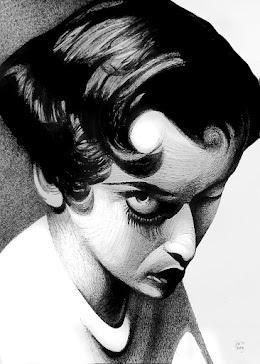
PUBLISHER
Julie Amparano García
Editor-in-Chief
Jared Rusnak
Design Director
Sharon Enck
Co-Managing Editors
Bailey Blundell Whitney Whitlock
Production Manager
Kristina Rasmussen
Editors at Large
Brandon Blue
Mark Enriquez
Emily Lopez
Kody Misinco
Annie Schwab
William Webb
Staff Editors
Matthew Chester
Laura Matala-Tala
Madelyn Mathews
Nyssa Meija
Cera Monson
Jada Smith
Shyla Tanquary
Avery Woodward
Maya Young
Front Cover image: Camouflaged by Red Twenty
Back Cover image: Deceiving Eye by Red Twenty
CANYON VOICES is a student-driven online literary magazine, featuring the work of emerging and established writers and artists. The magazine is supported by the students and faculty of the School of Humanities, Arts, & Cultural Studies at Arizona State University’s New College of Interdisciplinary Arts & Sciences. Click here for submission guidelines.
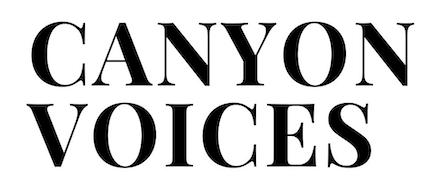
CANYON VOICES | SPRING 2023
Upon publishing a literary magazine in this information age, one is obliged to ask the question: “Why?” Why publish a literary magazine? For that matter, why read one? While the publication of literary magazines is a dying practice, I think it would be naive to assume such death is an inevitable effect of the development of new information technologies, as is often speculated. No, the death of literary magazines comes just as much from a disinterest in encountering the unfamiliar.
I think this is evident from the kinds of questions people ask regarding the ‘why’ of publishing a magazine. They ask, “If by using the internet, bookstores, and Amazon I can access whatever kind of art and literature whenever I want it, what's the point of a magazine if I have to wait for a new publication every year that's not guaranteed to give me what I already know I like?” The point is to wait a year for something you might not like. The purpose of a literary magazine, and particularly one like Canyon Voices, is not merely to give you the kind of art you would like; instead, it is to give you the art that you did not know you liked, the art you did not know existed, and, frankly, the art you still cannot bring yourself to like. While an endless series of algorithms and advertisements can continue to give you exactly what you like, to publish and read a literary magazine is to jump into the unknown for the purposes of new understanding and new appreciation.

Sure, you can explore the internet, your local bookstore, or Amazon for something new. But it often becomes difficult to discern what's worth trying, your attention is pulled to this and then to that with 5-star reviews, comments, bestsellers lists, and new release sections. So much buffets you around that by the time you get to trying something new you find that you’ve actually picked up something familiar instead. The literary magazine, on the other hand, is curated. Even if you subscribe to a literary magazine specifically because they often publish what you are familiar with, there is no guarantee it will remain that way, because you are not making any choices. No, the only choice you made was to commit. You commit to receiving a magazine and encountering whatever may be inside, no matter how unfamiliar. In that commitment you may read or view something you wish you hadn’t, but you may also read or view something that you couldn’t imagine being without. The 19th-century American Philosopher Ralph Waldo Emerson writes in his essay, “The Poet,” that “we know that the secret of the world is profound, but who or what shall be our interpreter, we know not. A mountain ramble, a new style of face, a new person, may put the key into our hands.” To publish a literary magazine, to read a literary magazine, is to willfully encounter the unfamiliar for the possibility of having that key placed into our hands by an unlikely source.
For those who wish to encounter the unfamiliar, Canyon Voices, and particularly this issue, may be of special interest to you. Canyon Voices prides itself on publishing a variety of artists from around the world and various levels of accomplishment, all in service of providing a symphony of diverse and unfamiliar voices. Moreover, this issue of Canyon Voices has removed sections from the magazine, electing to place pieces beside one another based on how well they converse with each other and the reader, regardless of genre. This way, the reader is not only encountering the unfamiliar in what they read, but in how they read it as well.
Hence why I am so excited to publish this issue of Canyon Voices. I believe it has been curated in such a way that encourages the reader to encounter something new, and I believe these pieces have the possibility of putting that key into our readers’ hands. I hope that you enjoy our magazine and discover something new. Thank you.
I hope that you enjoy our magazine and discover something new.

From the Editor CANYON VOICES | SPRING 2023
Our Editor in Ljubljana,Slovenia
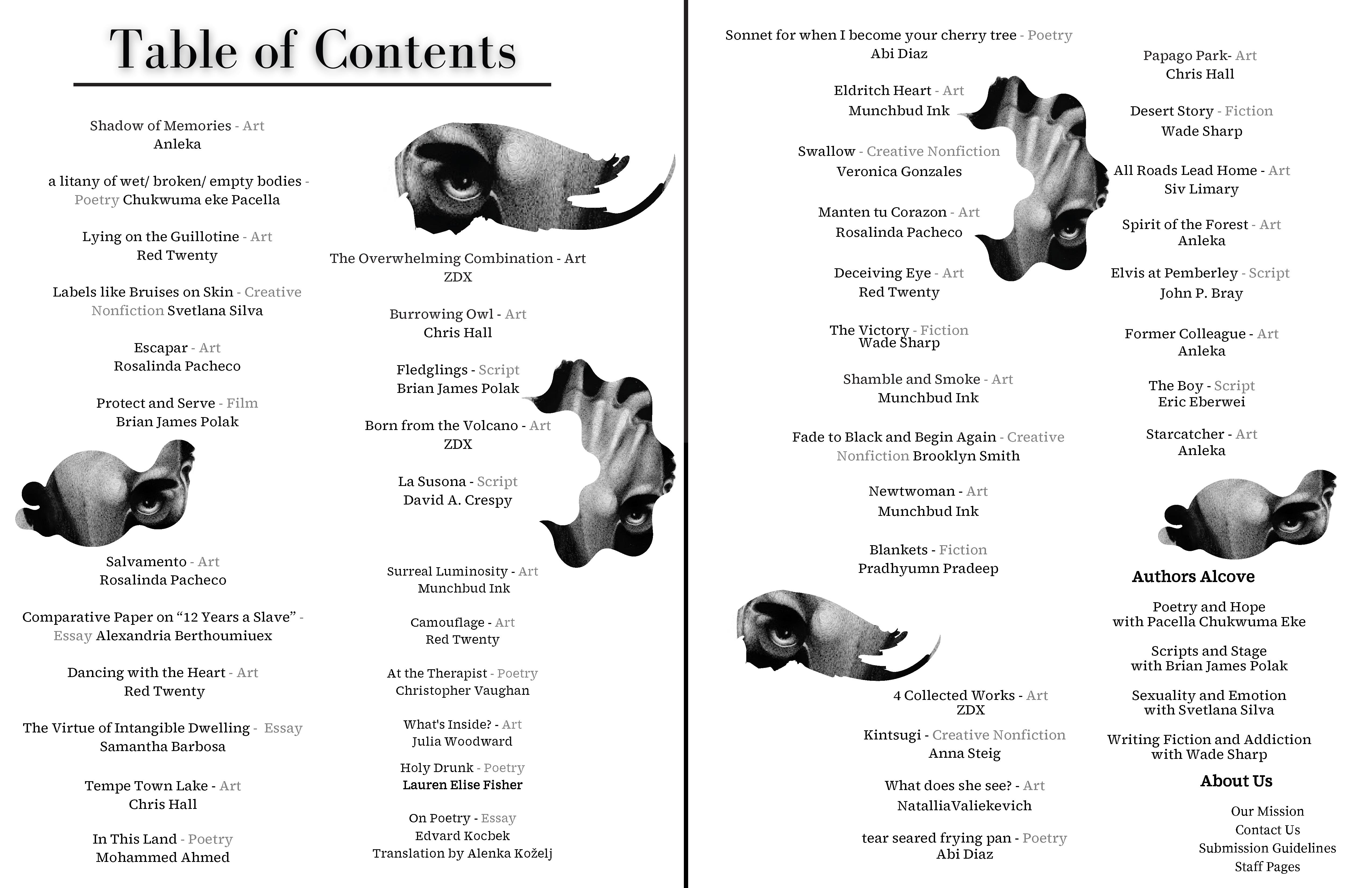
Sonnet for when I become your cherry tree-Poetry
Abi Diaz
Eldritch Heart- Art
Munchbud Ink
Swallow- Creative Nonfiction
Veronica Gonzales
Manten tu Corazon-Art
RosalindaPacheco
Deceiving Eye-Art Red Twenty
The Victory- Fiction Wade Sharp
Shamble andSmoke-Art Munchbud Ink
Fade to Black and Begin Again-Creative Nonfiction BrooklynSmith
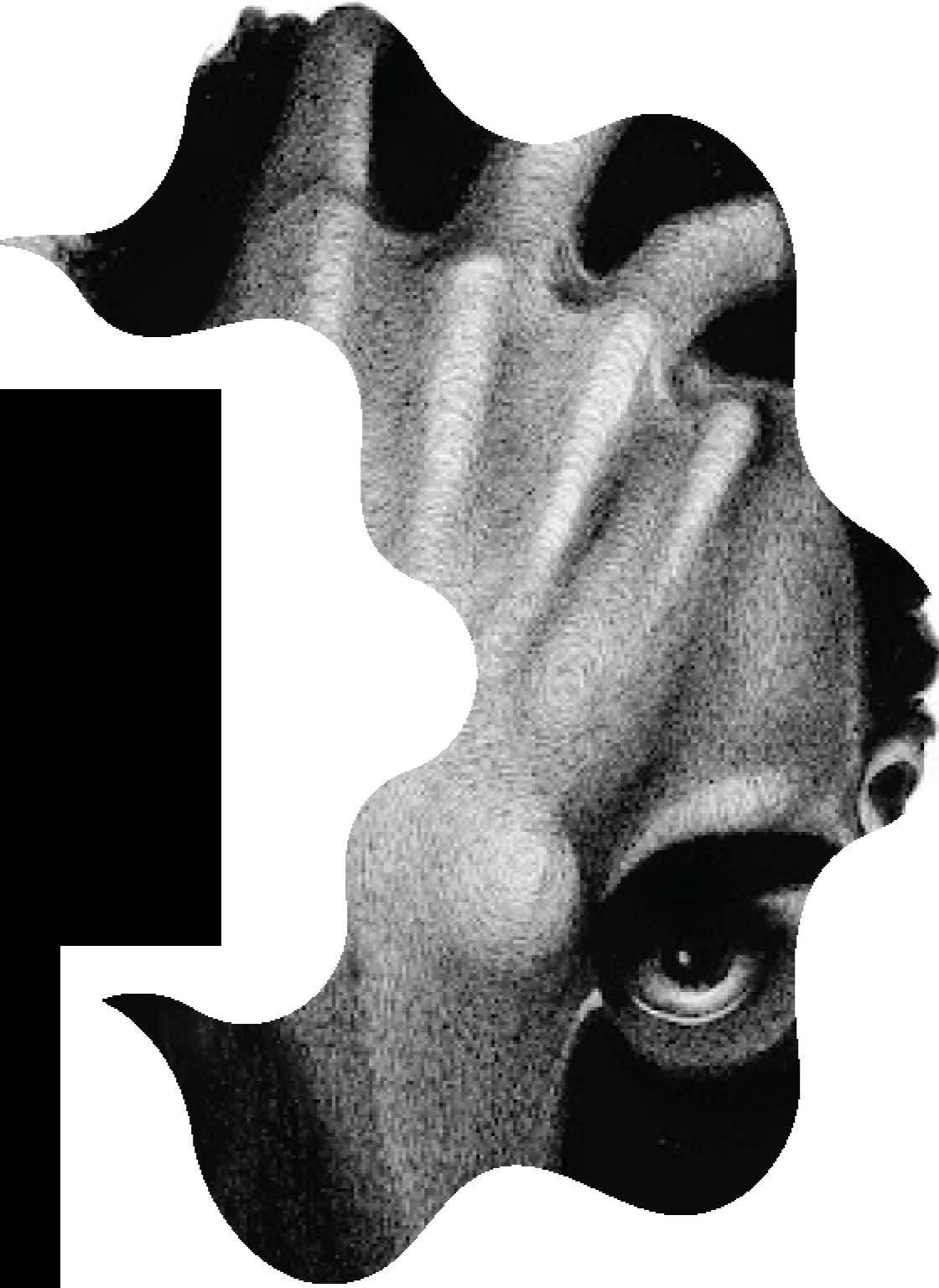
Newtwoman- Art Munchbud Ink
Blankets- Fiction
PradhyumnPradeep
PapagoPark- Art Chris Hall
DesertStory- Fiction
WadeSharp
All Roads Lead Home- Art
Siv Limary
Spirit of the Forest-Art Anleka
Elvis atPemberley-Script JohnP. Bray
Former Colleague- Art Anleka
The Boy-Script Eric Eberwei
4 Collected Works- Art ZDX
Kintsugi- Creative Nonfiction
AnnaSteig
What does she see?- Art
NatalliaValiekevich
tear seared frying pan-Poetry
Abi Diaz
AuthorsAlcove
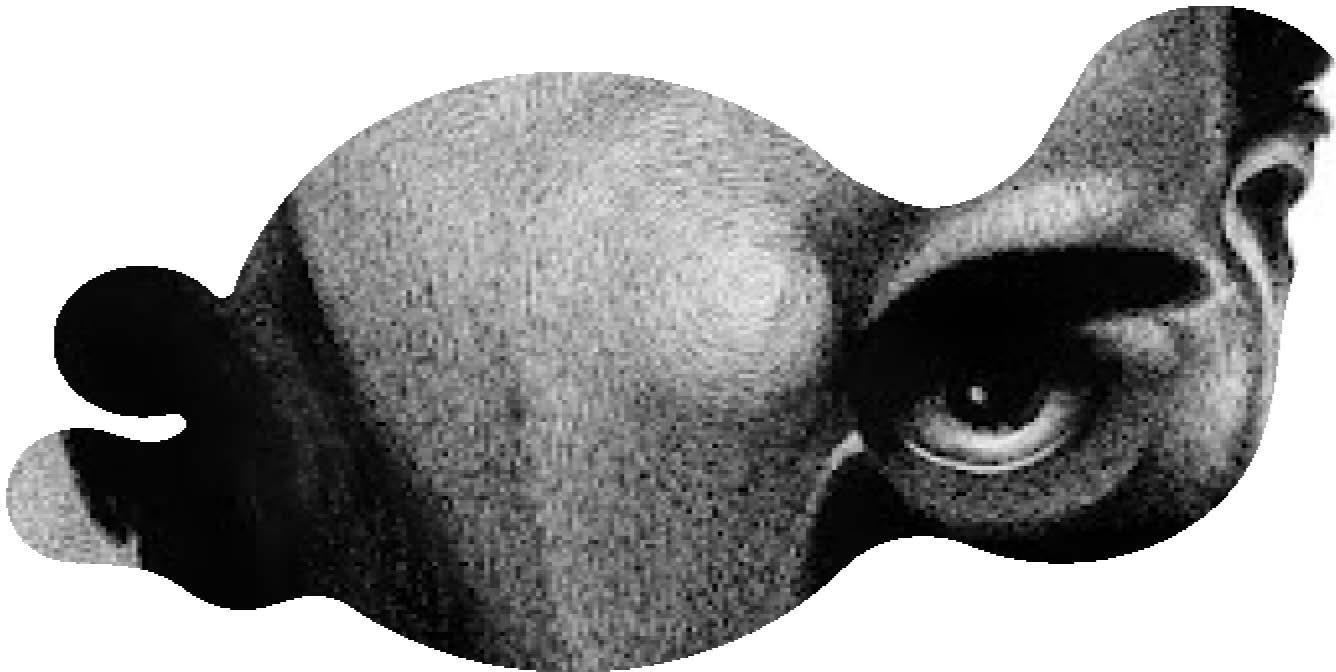


Starcatcher- Art Anleka C
Poetry and Hope withPacella Chukwuma Eke
Seripts andStage with Brian JamesPolak
Sexuality and Emotion withSvetlanaSilva
Writing Fiction and Addiction with WadeSharp
ontributors
os
Bi
Us
Mission ContactUs SubmissionGuidelines
Pages
About
Our
Staff
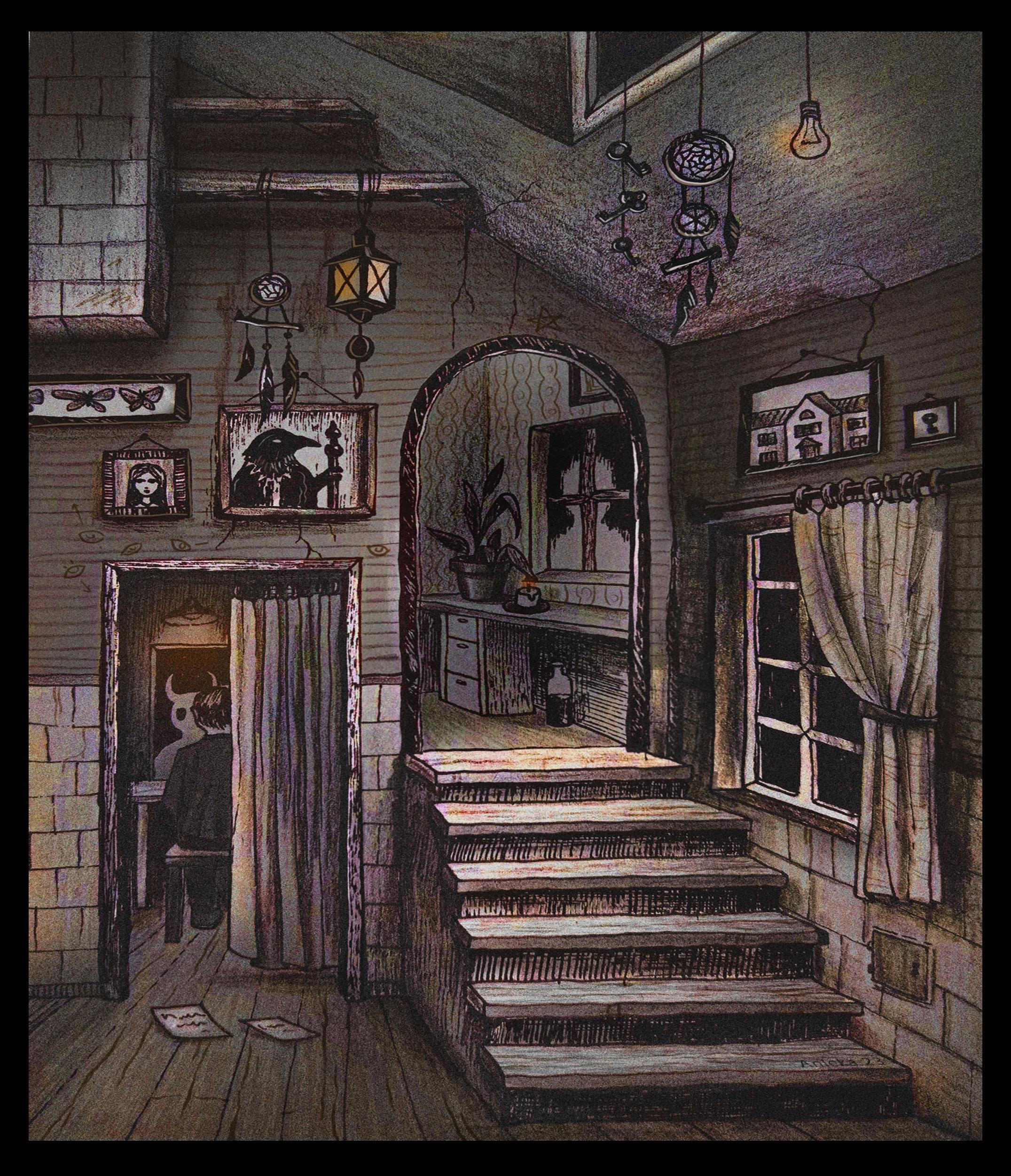
ARTWORK
CANYON VOICES | SPRING 2023
Anleka
Shadow of Memories | Ink & Photoshop
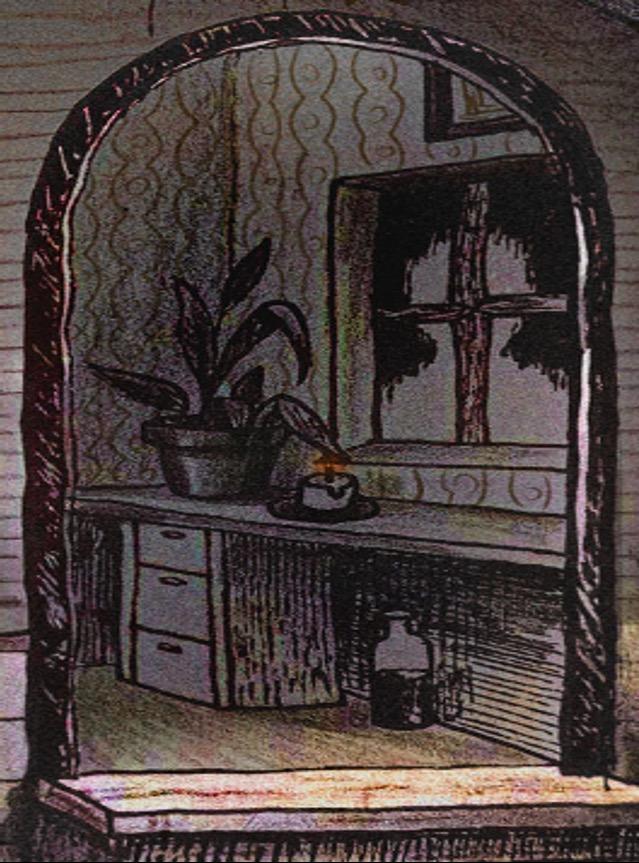
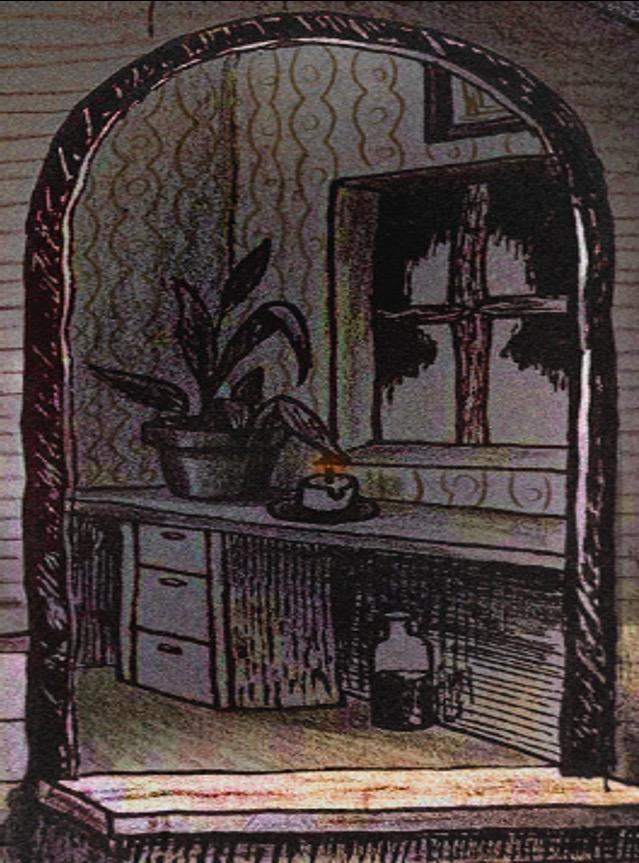
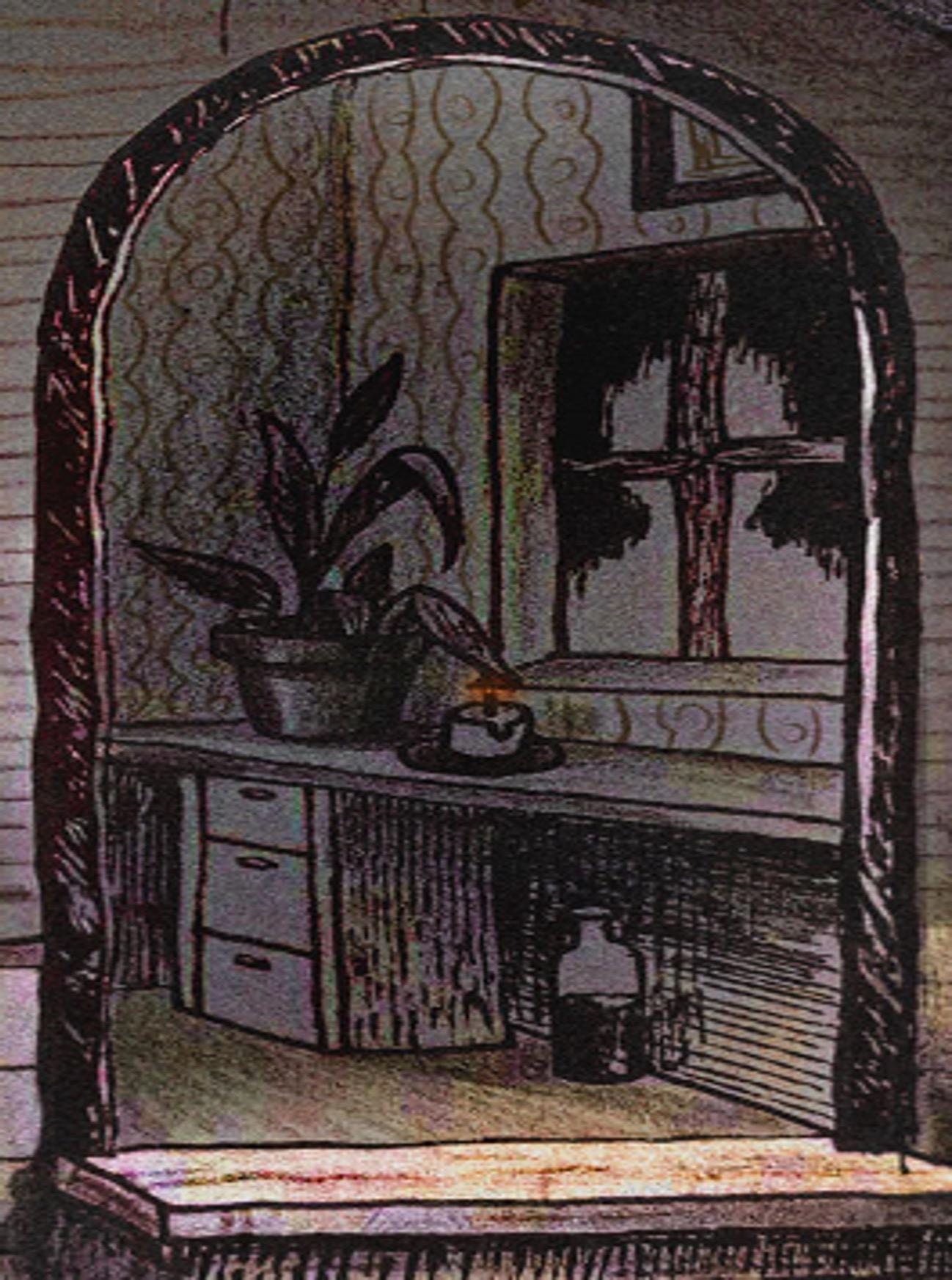
Enter
a litany of wet/broken/empty bodies
By Pacella Chukwuma-Eke
perhaps the gods decreed i make a toast with a bullet or a noose before the world calls me a bleeding hamlet
forgive me
this is the only way i unveil the scars on my chest without being tagged a specimen for the anatomy of cracked bodies
the only way i serve the remains of my voice to the ears of a people and not worry if their lens would bore hate into my skin
this body reeks only of hope
cast out my tongue from my lips steal away the gayness in me
this body cooks vexation
because freedom has become weary of being tossed upside down whenever it tries to define me with the pieces of my broken lungs to father
a boy teaches a desert the definition of loneliness in human language here he says
i seek permission from my pedigree to shapeshift to sea
it is criminal to say you watched a boy become water because only the feminine framework is structured to perform lacrimation
this body yearns salvation
what then do you call this haven you’ve got emptiness? an oasis lays midway through your heart my kind have learnt to be trapped in solid masculinity
forgive me
this body reeks only of hope gayness
this body cooks vexation with the pieces of my broken lungs here i seek permission from my pedigree to shapeshift to sea this body yearns salvation emptiness?
me this body sea amen
For more information on author Pacella ChukwumaEke, please visit our Contributors Page.
POETRY | PACELLA CHUKWUMA-EKE
nn n
CANYON VOICES
SPRING 2023
|
Red Twenty
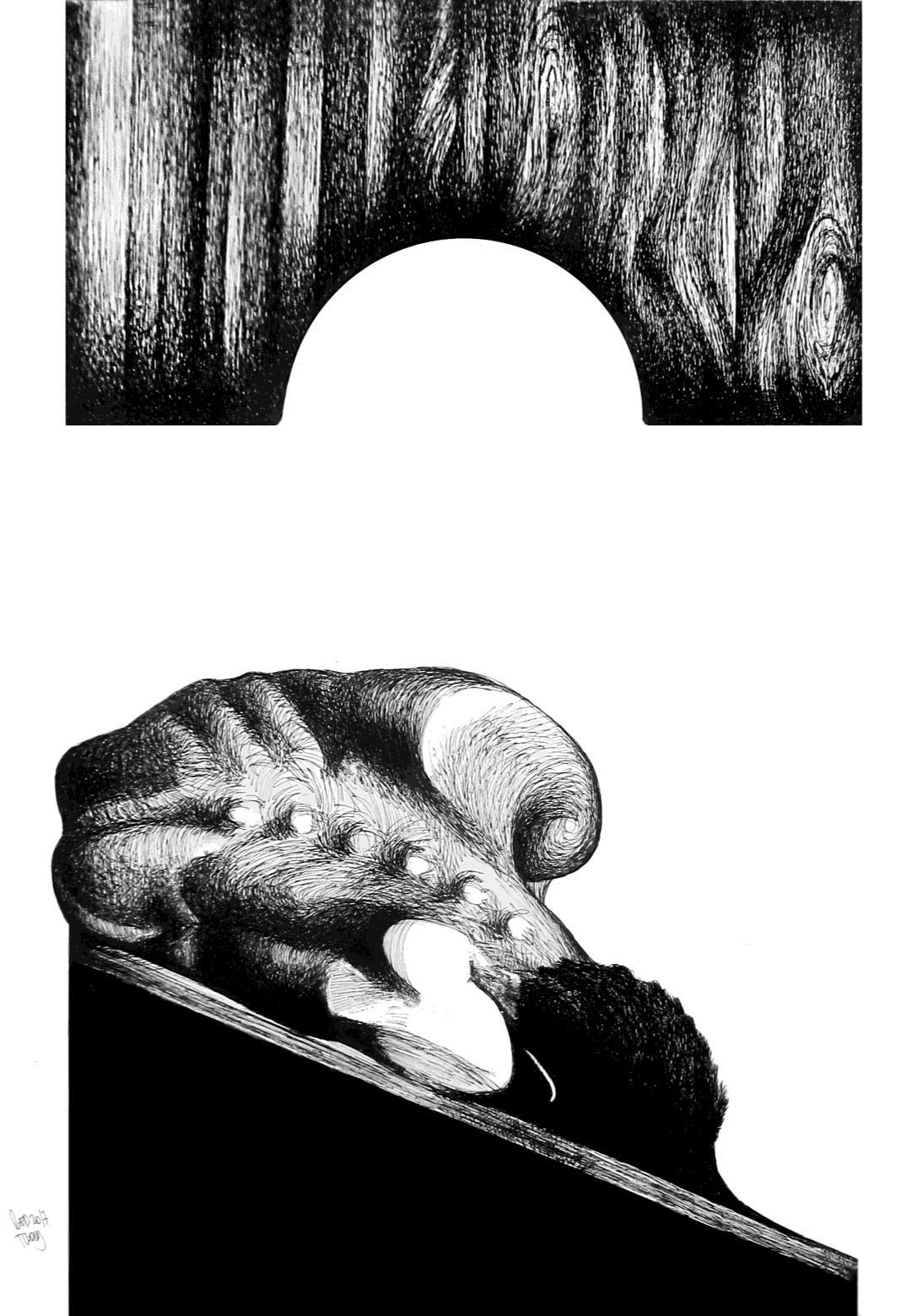
ARTWORK
CANYON VOICES | SPRING 2023
Lying on the Guillotine | Ink on Paper
Labels Like Bruises on Skin
By Svetlana Silva
You’re ace, aren’t you?” My friend’s voice attempted to sway me out of my stupor. Julian’s voice didn’t suit his appearance. He was short only a few inches taller than me but his voice was reminiscent of an autumn evening; it was cool and crisp. Much deeper than expected. It reverberated in the empty hallway of the engineering library’s second floor.
All I said was, “Hm?” as I slaved away at the website I was designing for my required digital design class. After two years, I’d become accustomed to Julian’s sudden, slightly-uncomfortable questions.

“Ace?” Julian tried again, his voice lifting in pitch only slightly. He leaned back in his black swivel chair and intertwined his arms; his prominent veins flowed over his muscles like vines. “Asexual?” His left brow rose slightly, like he couldn’t believe he had to spell it out for me. A drawn out sigh escaped his lips and his shoulders slumped slightly. For a moment, the only sounds in the empty hallway were the clicking of my mouse and the blizzard winds rattling the enormous glass windows along one of the walls. It was the nineteenth of November, the Saturday before Thanksgiving break. Which meant all of us students were ready to leave campus and head home.
“It means, like…” he thought for a moment, his gaze briefly flickering with annoyance at his
Japanese homework spilling across his screen. “Like, you’re not sexually attracted to anyone.”
I furiously clicked away on my website design. Julian’s voice was scarcely more than a low drone, muffled like a vacuum heard from another room, so I mistakenly assumed one of my witty, sarcastic comments would be an appropriate response. Finally tearing my eyes away from my computer screen, I made a face and said, “Do they have to be real people?”
The world outside the engineering library was pure white; I could feel the cold seeping in from the windows. Julian rolled his eyes. They were like hot chocolate bombs floating in pools of cold milk. Sometimes, in the right lighting, I’d notice inklings of evergreen in his irises. But all I saw then were hints of impatience and exasperation. His eyes were downturned with exhaustion, but he still focused them on mine. The hallway’s chilling silence pressed in on me like my mother’s frigid hands on my cheeks when she’d come inside after smoking a cigarette in the snow.
Julian remained slumped in his chair, used his black Doc Martens to drag himself closer to his screen, and said, “I’m serious.” I bit the inside of my left cheek; I didn’t know what to say. A sharp sting of pain sparked on my right thumb’s cuticle as I picked at it. Then, not even able to meet my eyes anymore, “It just seems kind of problematic.”
My shoulders fell like ripe pears from the tree
CANYON VOICES | SPRING 2023 CREATIVE NONFICTION | SVETLANA SILVA
“
behind my grandmother’s house. Julian had smashed those six words into a cannon ball and launched it through my chest. I was hollow and he couldn’t look at me. Julian had already fixed his gaze back onto his Japanese homework. Slowly, I swiveled back and turned toward my screen, the small wheels on my chair rolling over the flat carpeting with ease. The room was heavy, pressing in on all sides. Julian’s presence was a deep blot, and his words had soaked into my skin, staining it with dark bruises. I peeked over my screen and saw his caramel afro glaring back at me; his curls were like snickering snakes. Was I problematic? My gaze dropped down to my balled-up fists in my lap. I was frustrated and hurt and dizzy and I felt like throwing up and laying down in the snow and withering away and my vision blurred with salty tears that singed my eyes my eyes, sometimes brown and sometimes green but I’ve never known the right label for them.
My phone flashed to life. Instinctively, my gaze flickered over to its screen. There was one new notification from Akasha.
“IK you’re probs busy with your website thing, but I just wanted to say I’m really excited to see you for winter break next month.”
It wasn’t even Thanksgiving break yet, but I found myself giddy at her message. Her excitement to see me ignited my excitement to see her, but it brought the soreness of loneliness with it; I wouldn’t see her for another month. My eyelids slid closed to keep the world from spiraling. I propped my elbows on the table to hold my head in my hands. Inhaling a long breath, I forgot about my website design, and Julian, and the cold, and I reminisced about last winter break.
When she’d first pulled my body close to
her’s, I was shocked; I’d never been accustomed to physical affection. But my anxiousness melted away as I realized our bodies fit together like puzzle pieces, and I acknowledged how she was the only person in my life who I felt comfortable enough to be that close to. It was silent except for the blizzard winds pushing against her bedroom window. Akasha and I lay together in the fort we’d built, curled up underneath the crimson string lights that cast a dim glow across the blankets. I could feel all the grooves along her spine, her body rising and falling with each breath against my chest. Her black mullet was like raven feathers, and the edges were ignited beneath the lights zig-zagging above our heads; her hair smelled like cedarwood and pear, but there was always the briefest hints of sweet vanilla. I felt so warm and light in that moment; if Akasha hadn’t been there to hold onto, I may have floated away. I’d never felt more loved in my life, and I loved her, too. But not in a romantic way, but in a way that hovered in the liminal space between friend and partner, a way that didn’t need a label.
A sharp sting of pain spiraled up my shin. I blinked my eyes open and lifted my head from my hands, shaking the brown curls away from my face. Julian was looking at me, one of his thick eyebrows slightly lifted. I had a feeling he’d called my name a few times, then kicked me to get my attention when I didn’t respond.
“My bad,” he said, his eyes flickering away for a moment. I wasn’t sure what he was apologizing for; he got my attention this way all the time. “This homework is just really annoying.” He scratched the side of his neck
CREATIVE NONFICTION | SVETLANA SILVA CANYON VOICES | SPRING 2023
and then leaned down to rummage through his backpack, lifting out a small bag of baked barbeque chips. “You wanna do homework for a bit longer and then head over to my room? I gotta do laundry and we can play Cuphead.” He pulled open the small bag of baked chips, the material crinkling as he did so.
“Oh, you mean the game that makes you even madder than your Japanese homework?” I grinned. My computer screen had gone black since it’d been idle so long. I leaned back against the swivel chair.
“That’s the one,” He nodded with a smirk, then reached into the bag of barbeque chips and pulled out two; he offered one to me, and I
graciously accepted. I couldn’t remember the last time I had a barbeque chip.
I smiled, “Sure,” and popped the chip into my mouth. I instantly grimaced. “They’re still as bad as I remember.”
“No taste,” Julian shook his head, but he was laughing. We continued slaving away at our homework: Julian, complaining about every unknown Japanese word which was nearly every word on his homework; me, complaining about every failed operation on my website. I still longed for the time I’d spend with Akasha next month, but I took a long breath, and smiled at my friend who was there with me at that moment.
For more information on author Svetlana Silva, please visit our Contributors Page.
CREATIVE NONFICTION | SVETLANA SILVA CANYON VOICES | SPRING 2023
n n n
Rosalinda Pacheco
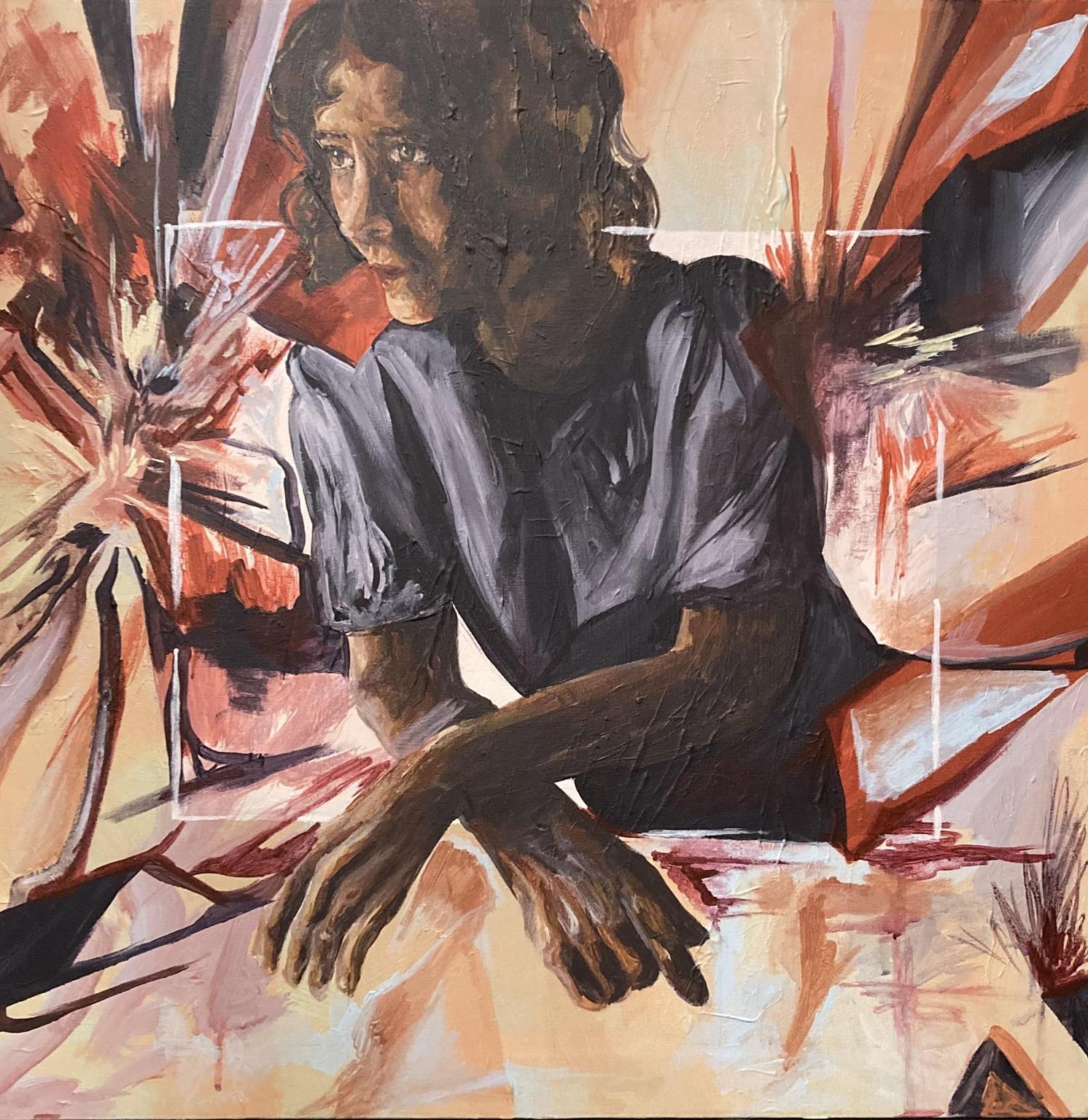
ARTWORK
CANYON VOICES | SPRING 2023
Escapar | acrylic on canvas
Protect and Serve
By Brian James Polak
For more information on author Brian James Polak, please visit our Contributors Page.
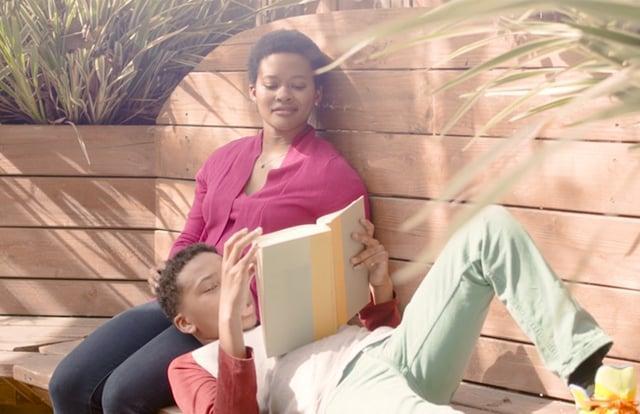
FILM| BRIANJAMESPOLAK
CANYON VOICES | SPRING 2023
Rosalinda Pacheco

ARTWORK
CANYON VOICES | SPRING 2023
Salvamento| acrylic on canvas
Comparative Paper: “12 Years a Slave”
By Alexandria Berthoumiuex
Solomon Northup’s memoir, 12 Years A Slave, focuses on his experience as a free man kidnapped into slavery and taken away from his children and wife. Solomon becomes a witness to the unjust treatment of enslaved people in Louisiana and a victim of the daily brutalities. Throughout his journey as a slave, he remains resilient under his enslavers but finds a solution to the injustice by writing letters in hopes that freedom will find him again. The movie adaption of 12 Years A Slave, directed by Steve McQueen, encapsulates the powerful scenes from Northup’s memoir by meticulously experimenting with camera angles and focusing the camera on characters’ facial expressions. The film was able to portray themes of separating families, the pushing system, and persistent abuse. Although the film was able to convey the importance of Northup’s experience to the audience, it altered vital scenes to communicate a different message to the audience.
The first scenes of the movie depict the emotions of fear and confusion that Solomon feels as he is captured. He is poisoned and wakes up in chains. The filmmakers execute this portion perfectly by focusing less on the details of the criminals who committed the crime. It cuts to Solomon trying to recall recent events, but only the scenes of Solomon feeling sick and resting in bed are shown. This allows the viewer to piece together what occurred. The audience feels confused because they are experiencing this situation from Solomon’s point of view. At this point, Solomon has been torn away from his family without being able to communicate with them. In both the book and the movie, black people being separated from their families is shown in an unbelievable, yet realistic manner. This theme is not only explored through Solomon but also through other enslaved members on the plantation.
During the auction scene of the movie, Eliza is separated from her children. The raw emotion of this scene from the book was brought to life in the film. Eliza’s children screaming and crying for her was unsettling. As the scene ends, the camera focuses on the facial expression of Mr. Ford rather than Eliza and her children. The filmmakers’ decision to do this altered the theme of separating families. Eliza and her children become white noise. This flaw in the film conveys the idea that the enslaver empathized with the people he bought as property. In the book, this moment is not about the enslaver, it is about a black mother being forced to leave her children without knowing if they will survive. The film recreated these emotional scenes of separation, but it fell short in respecting Eliza’s last moments with her children.
On the other hand, one of the most important separations in the book and movie was flawless. Before Solomon is about to get in the carriage to be reunited with his family, he hugs Patsey. The scene in the book contains a conversation between Patsey and Solomon. Whereas in the movie, Patsey and Solomon
CANYON VOICES | SPRING 2023 ESSAY | ALEXANDRIA BERTHOUMIUEX
do not exchange any words. The hug on film spoke volumes and dialogue was not necessary. This decision shows how Patsey and Solomon became family through their shared experiences on the plantation. Lastly, Patsey collapses and sobs in the blurred background as the camera focus on Solomon’s expression of numbness. The moment they shared shows the true meaning of the theme because Patsey is left with no hope whereas Solomon is on his journey to freedom. These tones display how the bonds that were formed between enslaved people kept them alive for longer. Enslaved groups relied on each other for comfort, aid, and love. As Solomon leaves, Patsey’s support system is severed which exhibits the emotional toll that separation had on black individuals in slave societies. In the early 19th century, enslavers on cotton plantations enforced a pushing system. Each enslaved person had to reach his or her quota; otherwise, there were punishments. Overseers whipped anyone who seemed to be idle in the cotton field. The pushing system was implemented to maximize profits at the expense of extensive labor from black people. If an enslaved person picked more pounds of cotton than the previous day, that was the new quota for that person. Hundreds of lashes were given to enslaved people if they did not reach their quota. The pushing system illustrates the abuse and exploitation that all black women and men endured by enslavers.
Patsey was known to be skilled in the process of cotton picking. “Such lightning-like motion was in her fingers as no other fingers ever possessed, and therefore it was, that in cotton picking time, Patsey was queen of the field.”1 She was able to pick over 500 pounds of cotton daily which made her enslaver avaricious in nature. It is essential to recognize that black women were skilled in cotton picking compared to black men. The movie emphasizes this fact with scenes of black women collecting cotton with agility. Solomon admits that his ability to pick cotton was subpar in the book. The film expresses the pushing system with accuracy for the audience to understand how brutal cotton picking was.
The prominent theme of abuse by enslavers and mistresses within the book and film is disturbing. Instances of whippings, rape, and verbal abuse were extreme throughout the chapters and movie. One of the most heartbreaking moments occurs when Patsey returns to the plantation with a piece of soap. Her enslaver accuses her of lying and attempting to run away. Stripped of her clothing, she is severely flogged in front of everyone. Although the scene is difficult to watch, it is a pivotal moment. Before her whipping, Patsey stands up for herself by explaining how she picks over 500 pounds of cotton. She feels as though using a bar of soap to clean herself is the least she has earned for her free labor. In the book, however, Patsey does not state this fact while speaking with Edwin Epps. This addition to the film allows Patsey to rightfully use her voice considering how much torture she experiences day-to-day. Not only is Patsey impacted by this flogging, but Solomon finds himself carrying out the action because Epps orders him to do so. Northup believes, “If ever there was a broken heart one crushed and blighted by the rude grasp of suffering and misfortune it was Patsey’s.”2 Patsey is physically and mentally scarred, and Solomon is emotionally scarred. When the whipping is over, the camera captures the soap falling from Patsey’s hand. This is included to remind the viewer that the abuse under slavery
ESSAY | ALEXANDRIA BERTHOUMIUEX CANYON VOICES | SPRING 2023
1 Solomon Northup, 12 Years A Slave, (Los Angeles & New York: Graymalkin Media, 2014), 134.
2 Northup, 12 Years a Slave, 188.
was unjustifiable by all means. In addition, this is the first time the viewer sees Solomon cry as he watches Patsey receive treatment for her lacerated back.
The one factor that might be misinterpreted is Solomon Northup’s retaliation. Without reading the book, the audience might assume that Solomon was defeated by the pangs of slavery. As a result, Solomon’s character might be overlooked within the film. Northup tells the reader, “But I would not be silent, and denounced the authors of my imprisonment, whoever they might be, as unmitigated villains.”3 as his oppressor tried to deny him his freedom. Each time Solomon said his true name, physically fought back, or wrote letters, he retaliated. Solomon never allowed his oppressors to gain satisfaction from his emotions which was one of the greatest forms of resistance in slave societies.
The film was able to present the daily realities of slavery from Northup’s memoir. The transition of slavery from the book to the movie was intense and emotional. Each theme was acknowledged and portrayed meticulously. The elements of violence, separation, and arduous labor within the film, shape our public understanding of slave societies because enslavers tried to ensure blacks remained inferior. Northup’s experience as an enslaved person represents how black people continued to defy acts of injustice. Overall, the film and memoir allowed Northup to tell his story of survival, retaliation, and his return to freedom.
For more information on author Alexandria Berthoumiuex, please visit our Contributors Page.
ESSAY | ALEXANDRIA BERTHOUMIUEX CANYON VOICES | SPRING 2023
3
■ ■ ■
Northup, 12 Years a Slave, 21.
Red Twenty
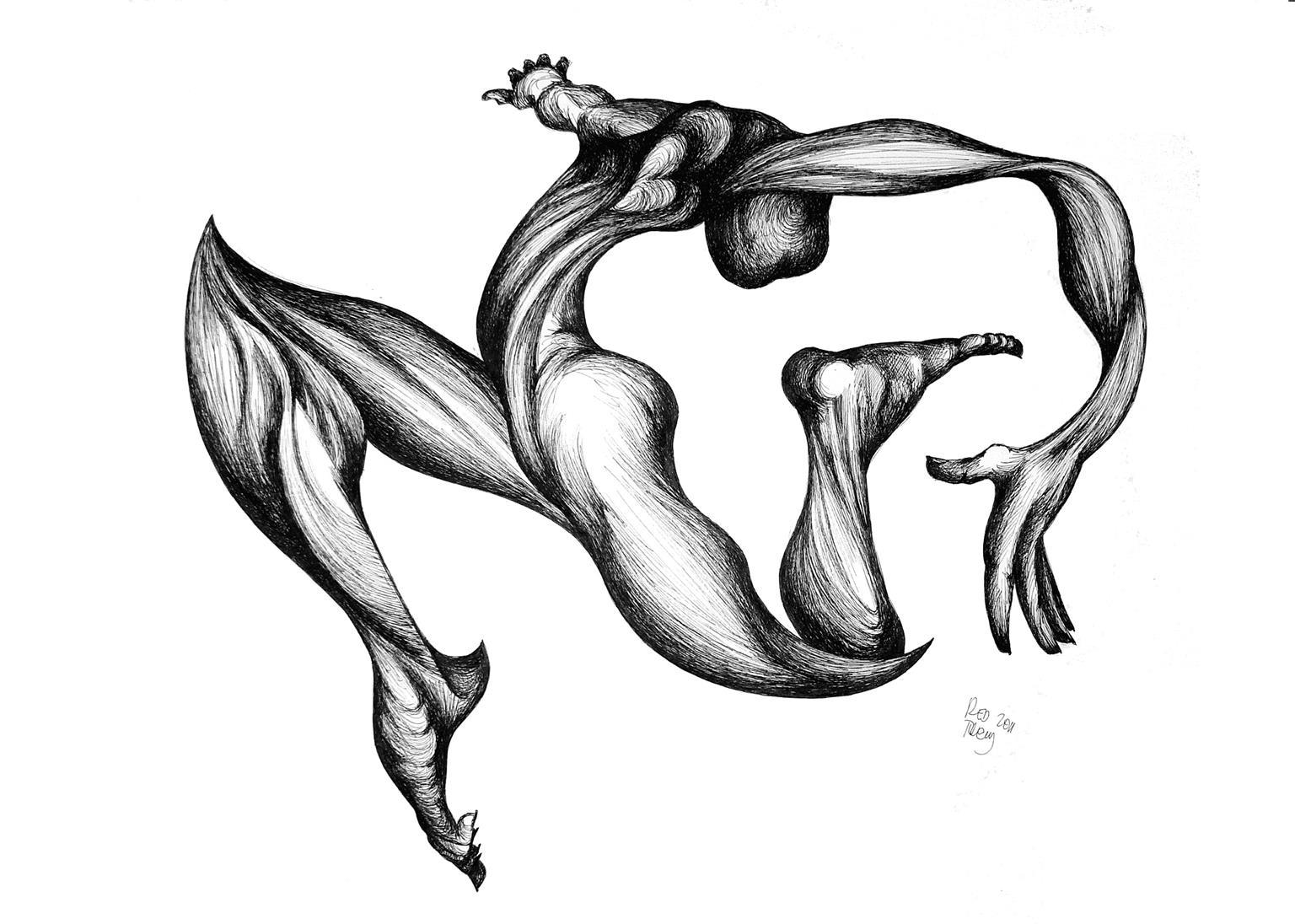
ARTWORK
CANYON VOICES | SPRING 2023
Dancing with the Heart | Ink on Paper
The Virtue of Intangible Dwelling: Cultivating a Culture of Care
By Samantha Barbosa
Introduction
In this essay1 we will be investigating the plight of dwelling as discussed by Heidegger in his essay “Building, Dwelling, Thinking,” to investigate how our ontological dwelling must be addressed to inform our approaches to systematic issues in society like the housing crisis. We will be considering the nature of building as cultivation in relation to our mortal duty of dwelling and being in the world with others. The language of cultivation and dwelling will be used in reference to Martin Heidegger’s piece “Building, Dwelling, Thinking.” Building upon Heideggerian language, we will argue that there is a type of intangible building necessary in order to care for the collective of being. We will establish that there is a culture of thought we must bring forth if we are to question the root causes of unbelonging and its manifestations in our society. Cultivating a culture of care will thus be concerned with our innate responsibility to care for the other and how it is pivotal that we alter our thinking around building and dwelling in order to recognize such responsibility.
Cultivating a Culture of Care
Through Heidegger’s writing, we are guided out of convention and into a conversation with the origins of language. We are shown how widely accepted notions of building have caused us to stray from a type of building that understands and remains conscious of what it means to dwell. Heidegger writes that by understanding the language surrounding dwelling and investigating the history of those words we will find that,
1 This essay was written in response to the prompt given for the International Institute of Hermeneutics Summer Conference “Hermeneutics of Space: Dwelling in the Horizon of Finitude.”
CANYON VOICES | SPRING 2023 ESSAY| SAMANTHA BARBOSA
The way in which you are and I am, the manner in which we humans are on the earth, is Buan, dwelling. To be a human being means to be on earth as a mortal. It means to dwell. The old word bauen… says that man is insofar as he dwells… 2
As mortals, we dwell and thus we build.3 Although we build insofar as we dwell, Heidegger’s piece warns us that not all building is done for the sake of dwelling. Nonetheless, his work tells us that “the nature of building is letting dwell.”4 Yet, the modern age has seen a sort of building and creating done with the intent of destruction that threatens the ability of others to dwell. Building that does not let dwell has become a normalized aspect of our being with one another as many feel comfortable deciding who is unworthy of dwelling. It is a result of a broader culture of thought that does not seek to care for the other nor contribute to the other’s ability to dwell. Thus, Heidegger’s work reminds us of the importance of thinking and its relation to building. It is how we think towards one another that influences how we then interact and treat our neighbor. Building with the intention of letting dwell takes on a collective responsibility for the other and is primarily influenced by care. Although it can be physically expressed, to build collective care within a culture is something intangible that demands we bring it forth if we are to let dwell.
Exploring the language in which the concept of building originated, Heidegger takes us to the word “bauen” which signifies not only to dwell but “to cherish and protect, to preserve and care for, specifically to till the soil, to cultivate the vine…”5 From this language, we can begin to recognize a certain nature associated with this form of building. Heidegger’s language equates cultivation with the words cherish, protect, preserve and care–all of which assume an inherent mindfulness of the other–a positive mindfulness. In the context of the vine which Heidegger referred to, it could be that cultivation means to dwell not only for oneself but for the sake of the entire vine. Furthermore, we have been made aware that the true nature of building is to let dwell. Since it is mortals who dwell, cultivating in the respect of letting dwell pertains to how we interact with one another in our shared world. We are all part of the same vine and therefore have an inevitable connectedness to one other. Thus, cultivating the vine as a form of building means tending to one another’s ability to dwell. This building assumes a
2 Martin Heidegger, “Building, Dwelling, Thinking,” in Poetry, Language, Thought, (New York: Harper Collins, 1971), 147.
3 Heidegger, “Building, Dwelling, Thinking,” 146.
4 Heidegger, “Building, Dwelling, Thinking,” 160.
5 Heidegger, “Building, Dwelling, Thinking,” 147.
ESSAY| SAMANTHA BARBOSA CANYON VOICES | SPRING 2023
collective responsibility between all elements of the fourfold, especially from one mortal to another. It is this sense of responsibility that needs to be brought forth if we are to build with the intention of letting dwell.
To further grasp the nature of cultivation as a form of building, Heidegger also clarifies, “Building in the sense of preserving and nurturing is not making anything.”6 How do we understand that this type of building does not actually create anything? This may be because the act of cultivating is a tending to and a bringing forth rather than a creating. Building is assumed to be a means to an end and thus the common understanding of building is the making of a thing. It is also our tendency to assume this means a physical, tangible thing. Yet, we can be challenged to imagine that there is a sort of intangible building that may be just as important to letting dwell. What is it that inspires one to tend to the other’s ability to dwell? As previously mentioned, cultivation assumes a mindfulness for the other and assumes responsibility for the other. Not only is cultivation a tending to, it is a caring for. Care itself is no tangible thing. It can be expressed in gestures which can be seen and felt, but the feeling of care is not restricted to the senses. We cultivate the vine because we feel care for the other. This intangibility already exists within us and is something all are capable of acting on. It is also something which the act of cultivation essentially brings forth. As Heidegger pointed out, this sort of building then does not intend to make anything but rather tends to and brings forth what already is.
We may then consider what Heidegger called the “real plight of dwelling” in the context of care and cultivation. For instance, he explained that homelessness is something to give more thought to. While a lack in physical housing is seen as the central conflict, Heidegger has asked us to think about what it really means to be at home.7 Furthermore, it’s important to also think about what home means in relation to our being with one another. Homelessness is made possible by a social acceptance that allows one to feel as though they do not have a home or that they do not belong. But what if we had a culture of thought that was instead founded upon a fundamental caring for the other? Being part of the same vine means that we share our home with one another. Cultivating the vine here would not deprive one of their home or belonging.
This consideration in no way intends to oversimplify the complex issues in relation to homelessness and its pervasiveness in our society. Material solutions and resource
ESSAY| SAMANTHA BARBOSA CANYON VOICES | SPRING 2023
6 Heidegger, “Building, Dwelling, Thinking,” 147.
7 Heidegger, “Building, Dwelling, Thinking,” 161.
distribution is of utmost importance when addressing such issues. This relation to Heidegger’s concept of the “real plight” is an attempt to further understand how our proposed solutions are a direct product of our culture of thought around an issue like homelessness. Therefore, these intangible qualities of care, home and belonging may all inform how we approach the root causes of homelessness. If together we passively accept that one can be deprived of their home, then we are lacking care for the other and consequently building a hierarchy of belonging.
Conclusion
The culture of thought that we develop as a collective truly informs how and why we build. It is then important that we do not lose sight of bringing forth the intangible that drives us to cultivate the vine. Through ourselves and through our relation to the other, we may cultivate a culture of care that all are capable of bringing forth. Perhaps in building the intangible which seeks to take care, our physical world will truly reflect what it is to build and let dwell.
For more information on author Samantha Barbosa, please visit our Contributors Page.
ESSAY| SAMANTHA BARBOSA CANYON VOICES | SPRING 2023
n
n n
Chris Hall

ARTWORK
CANYON VOICES | SPRING 2023
Tempe Town Lake | photography
In This Land
By Mohammed Ahmed
Here, Bullets blaze on a tiny strip of land
Children doze off confused to rockets vibrating yellow sand
Children fall asleep with little notes clutched in their hands
Here, lies another and another just a number
funerals left unplanned, Freedom echoed through lavish Cyprus trees
Here, is rage in the mist is chiseled skin, black abyss, silver smoke petroleum blanket on hand Long black eyelashes rest on dusty porcelain cheeks As their mothers sink into the sand
n n n
For more information on author Mohammed Ahmed, please visit our Contributors Page.

POETRY | MOHAMMED AHMED CANYON VOICES |SPRING 2023
ZDX


Chris Hall
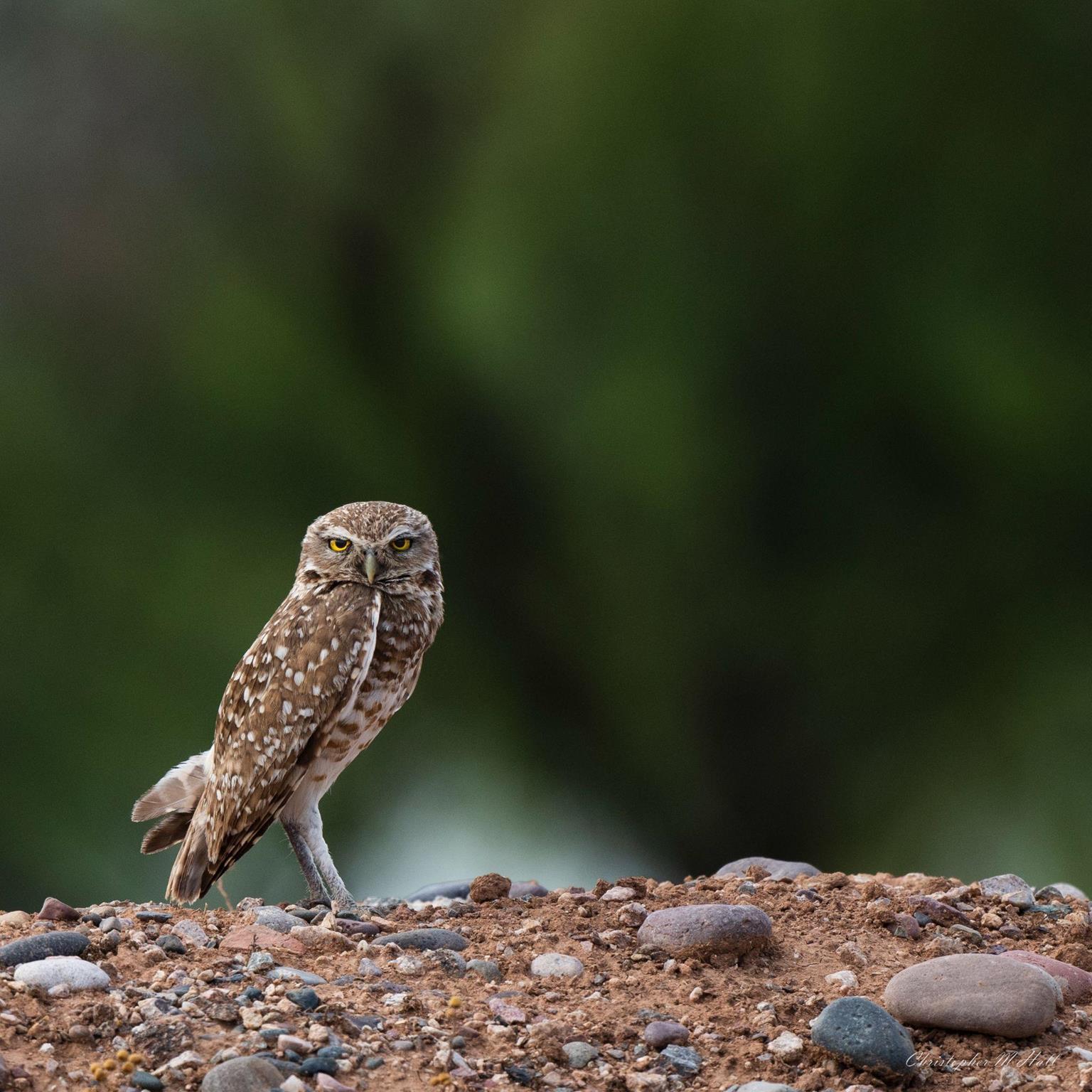
ARTWORK CANYON VOICES | SPRING 2023
Burrowing Owl | photography
Fledglings
By Brian James Polak
Characters:
DANTE (he/him) Now an adult, is referring back to the moment in his life when he felt he found his voice.
The character could be anywhere from late 20s to late 40s. Perhaps even older. The story, like the time/place as mentioned below, will change based on the age you place on the character. This is by choice. I prefer fluidity in these things.
Time/Place: Not specified. There are many contexts in which this would work. Be mindful how your choice of time/place impacts the story.
DANTE:
One summer when I was 12 years old my mother sent me up north to stay with my aunt and uncle.
Old Man of the Mountain territory. Where The Granite State earns its name. It was wicked peaceful up there.
The type of forest where, like, survivalists live. And Sasquatches.
It’s where you wanna be when the world ends because the end of the world won’t even be able to find it. It’s actually where we should be RIGHT NOW.
But it does get old fast. It’ll make you nutty up there. I thought it was boring here. But you’d love it.
Up there is like here except take away the fields of houses, and Dunkins, and Taco Bells… and replace it with nothing but trees and fucking birds… it’s awesome, but hard to take after a while.
The silence and my fucking insane uncle would drive me bananas.
So this is what I’d do… I’d take one of his .22s and head out into the woods. Imagine this. Here I am, a little kid, standing in the woods with a gun.
SCRIPT | BRIAN JAMES POLAK CANYON VOICES | SPRING 2023
I roam around as if I own the place. Checking on the squirrels over here, the birch trees over there…and setting up a shooting range with tin cans.
This one time, after spending a while wasting bullets on nothing, I head down to the pond. There’s this one patch of sand that makes it look kinda like a beach.
But the pond is more like a swamp.
I sit down at the edge of the water, bored out of my fucking mind…
and then I notice something…
One tree is perched, all alone, on the edge of the water.
Like it had been there a million years.
Like it found a comfortable little place to plant roots, call home, and just live. But the water was moving in. Lapping up against the foot of the tree.
How much longer until that water was up to the tree’s knees, its waist, its neck? How much longer can this water continue to creep before the defenseless tree simply drowns? And this tree is powerless. It can’t fight back.
But I’m not powerless. Not with a .22 in my hands.
I can save that tree by putting it out of its misery.
I pull my gun up off the sand, and aim the sights towards it, pull the trigger and BLAMMO hit it right in the trunk.
A small piece of bark tears away revealing the. Like. Flesh underneath.
I pump my gun and shoot again, and again, and again.
Over and over I shoot into the trunk of that tree, tearing away more and more bark. And all that flesh is exposed. Looked like. Like Thanksgiving turkey meat. Then I aim the gun up into the branches and leaves and pump a bunch of shots… …until something catches me by surprise.
Get this.
All at once, hundreds of birds fly out from the branches over my head, and into the woods.
I’m like, damn, I didn’t even know they were there.
SCRIPT | BRIAN JAMES POLAK CANYON VOICES | SPRING 2023
I mean, you hear the birds calling all day long out in the woods, but after a while. All that noise. You don’t even notice.
It’s just part of the silence.
So. As they fly away one bird shits. It sails down like a bomb.
Lands right on my shoulder.
I feel the nasty wet goo soaking through my jean jacket.
Why would they do that to me?
I call out…
I was a kid.
And I thought I was becoming one with nature.
I’m doing a good thing by putting this poor tree out of its misery only to be attacked by one of these… birds.
So. I grab a handful of sand and rub it where the bird dropping lands and sit there for a minute staring out into the horizon. The sun’s going to set soon.
And I’m thinking about what my uncle says to do when somebody disrespects you.
I get up and walk along the edge of the pond and that’s when I hear it…
The chirp. Chirp. Chirp. Coming from a small, enclosed boat garage built right onto the pond. That’s where those birds went to hide.
I climb inside a broken window and open the door so the sun can get in.
I see dusty life preservers hung on the wall and old-school fishing poles standing in the corner. It’s as if this place hasn’t been used in years.
At least not by people, because I can hear the CHIRP CHIRP CHIRPS louder now. Up in the rafters I see the birds.
The same birds from the tree I shot. The same birds who shit on me.
Three nests are built on the middle rafter. It’s like a private gated bird community.
SCRIPT | BRIAN JAMES POLAK CANYON VOICES | SPRING 2023
W H Y W O U L D Y O U D O T H A T T O M E ?
You know what they call baby birds? They’re fledglings.
I watch the mothers tend to their fledglings.
They fly in and out of the building with twigs for the nest and food for the babies. These fucking birds completely ignore me and go about their business.
I bring my gun up to my shoulder, aim at one of the nests and I pull the trigger. Because this is New Hampshire. And you gotta live free or die.
One shot brings it down into the water.
I see three featherless fledglings flapping their little arms, trying to stay afloat. The mother bird swoops down. Hovering above the water. Calling out for her babies.
Wanna know something else?
They can’t swim. Fledglings. The water swallows them whole.
The baby birds… sink to the bottom.
The mother flies back up to the rafters where the nest sat a minute ago as if she thinks she must have hallucinated.
She can’t comprehend what just happened.
So she sits on the perch where her nest once rested.
I stand there unsure what to do with myself. I see the little ones under the water. I did that. Me. And I think. If. If I can do… that… maybe there’s nothing I can’t do.
Know what I mean?
END
SCRIPT | BRIAN JAMES POLAK CANYON VOICES
2023
| SPRING
ZDX
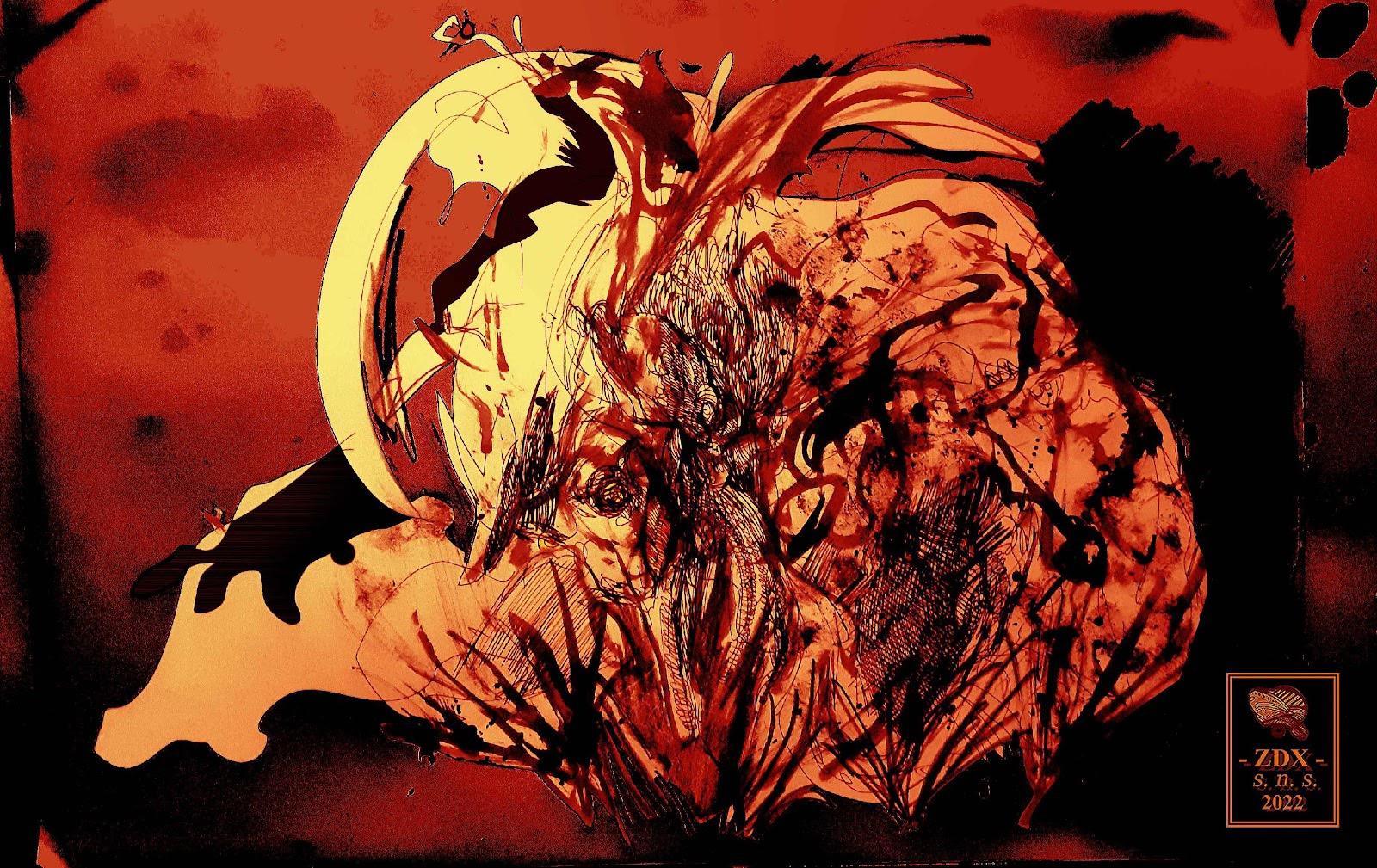
ARTWORK | ZDX
CANYON VOICES | SPRING 2023
Born from the Volcano | mixed media
La Susona
By David A. Crespy
Characters:
Susana ben Susón (Susona): A beautiful young Spanish Converso woman, haunted, veiled with a Spanish Mantilla, plays all female roles.
Diego Susón: Her father, a Spanish Converso, still very much engaged with his Jewish faith, a protector of his community, plays all male roles.
Synopsis: La Susona is based upon the legend of Susan ben Susón, Jewish Converso in 15th century Seville, Spain of an uncanny beauty who, while trying to protect her Christian noble lover, betrayed her father, and thereby sealed her horrific fate.
Setting: Calle de la Muerte, Barrio de Santa Cruz (La Judería), Sevilla, España, 1480.
(A young woman, SUSONA, and a young man, DIEGO stand in a simple light)
SUSONA: This is a story of old Spain. And it is a tale of horror.
DIEGO: Near the sad demise of La Convivencia, the period of ‘living together.’
SUSONA: When, starting in the 7th century AD, Jews, Christians, and Muslims lived together in peace in Spain.
DIEGO: It was a remarkable time, but by the time we are speaking of, it is the beginning of the end. In Sevilla, in El Barrio de Santa Cruz…
SUSONA: The time is 1378, and it is the time of Ferrand Martinez…
In DIEGO: The fiery confessor of the queen mother of Aragón, Spanish cleric and archdeacon of Écija, who, in a moment of rage and frenzy…
SUSONA : began a series of relentlessly antisemitic sermons against the Jews of Sevilla which resulted attacks and murder of its community…
SCRIPTS | DAVID A. CRESPY CANYON VOICES | SPRING 2023
DIEGO: The King of Spain, Juan I, commanded that the mad priest cease his troublemaking, because he relied upon the Jews’ skills in the financing of his armies.
SUSONA: But Ferrand Martinez, driven by a fervor that could only be explained as supernatural, ignored the royal decree, as well as the demands from Pedro Cardinal Gómez Barroso, Archbishop of Sevilla, the primate of Spain.
DIEGO: And continued his relentless demands that the Jews of Sevilla be removed or punished for their sins of host desecration,
SUSONA: A typical antisemitic lie of the time…
DIEGO : and of course, for their murder of Christ himself.
SUSONA: And so countless synagogues were destroyed, many Jews were killed, and even after the passing of Juan I and Archbishop of Sevillas, and the rise of Enrique III, Juan’s son, who also decreed that Martinez stop his rabble-rousing, the maddened cleric continued, until in 1391, the frenzy of hatred against the Jews led the beginning of the horror.
DIEGO: The first anti-Jewish riots began in Seville in March of that year.
SUSONA: And it was on 6 June of that year that the first great massacre occurred.
DIEGO: Four thousand Jews were murdered, and many were forced to accept baptism.
SUSONA: As the year progressed, massive pogroms continued which decimated not just the Jews of Sevilla, but also Jews of every city and small town in Spain.
DIEGO: These events inaugurated the beginning of the mass conversions, as fear gripped the Jewish communities of Spain.
SUSONA: And by 1415 over half the Jews of Spain had converted to Catholicism. These were the New Christians…
DIEGO: Conversos…
SUSONA: Or as the still fanatical Catholic clerics of Spain, who doubted these New Christians’ allegiance to their faith, called them…
DIEGO: Marranos…
SCRIPTS | DAVID A. CRESPY CANYON VOICES | SPRING 2023
SUSONA & DIEGO: Pigs.
SUSONA: The lives of these Conversos, always tenuous, became particularly bad after the introduction in 1478 by the Catholic Church, of a new form of religious persecution, under the Grand Inquisitor, Tomas de Torquemada.
SUSONA & DIEGO: The Inquisition.
DIEGO: It was the beginning of the end for the Jews of Spain.
SUSONA: A way to root out all those who perhaps secretly practiced their faith.
DIEGO: Lit candles at Shabbat…
SUSONA: Refused to eat pork…
DIEGO: And who continued to secretly meet, to continue their religious beliefs in private, but also to support and protect those who remained Jews, who could not or would not convert.
SUSONA: So, the violence continued, and these Conversos…
DIEGO: even though they had actually converted and were practicing Catholics…
SUSONA: Were now watched closely, subject to investigations into the purity of their faith, the purity of their belief, and
DIEGO: the purity of their blood.
SUSONA: The worst fear is that these alleged New Christians would dare to mix their tainted blood with those of the Old Christian nobility.
DIEGO: And so, the violence against the Jews continued and worsened.
(SUSONA begins to transform to the beautiful traje de flamenco, the traditional Spanish flamenco dress, with a mantón de Manila (shawl), and a fan)
SUSONA: But the orange trees blossom in the old Mudejar courtyards of El Barrio de Santa Cruz, and their fragrance fills the air with a sense of Spring. And as we all know…
SUSONA and DIEGO: Spring alters the blood!
SCRIPTS | DAVID A. CRESPY CANYON VOICES | SPRING 2023
(DIEGO begins to transform to Flamenco bailaor, or male dancer, with short vest, frilled shirt, scarf, and form-fitted pants)
DIEGO: There was born into this community of Conversos and practicing Jews, an unnaturally beautiful young woman…
(SUSONA continues to transform…)
SUSONA: Susana ben Susón, daughter of
DIEGO: Diego Susón, a leader in the community of the Conversos.
(And fully transformed, with a riff of Spanish guitar playing, an old Ladino song Avre tu puerta cerrada, the two actors begin to circle and dance the powerful foot hammering, clapping dance of the Flamenco. Then they stop abruptly, and sing.)
DIEGO & SUSONA:
Avre tu puerta cerrada
Qu'en tu balcon luz no hay
El amor a ti te vela
Partemos roza, partemos roza de aqui..
Demandi por la tu hermozura
Como te la dio el Dio..
La hermozura tuya es pura
La meresco solo yo..
[Open your closed gate
When on your balcony there is no light
SCRIPTS | DAVID A. CRESPY CANYON VOICES | SPRING 2023
The love is watching you
We say goodbye Rose, we say goodbye Rose to here
Wanted for your beauty
Which was given to you by God
Your beauty is pure
It’s deserved only by me.]
DIEGO: Did I mention how beautiful Susana ben Susona was?
(SUSONA begins a Flamenco solo)
Her beauty was legendary – she could stop your breath with an arch of her eyebrow. Her eyes were dark, rich, warm, and her hair, also dark, was lustrous and when released, seemed to go on forever, though she kept it tight and braided as a snake ready to pounce. She was known as…
DIEGO AND SUSONA: La Hermosa Hembra – The Greatest Beauty of All!!
DIEGO: With her devastating, and perhaps…unnatural beauty, one turn of her head was enough to set a man on fire…
(SUSONA stops abruptly, and begins clapping furiously, and DIEGO begins his rapid Flamenco solo)
SUSONA: and that man was Christian, a Spanish noble of pure Catholic faith, who fell desperately in love with La Hermosa Hembra, Susana ben Susón.
(DIEGO stops abruptly, and both clap rapidly)
DIEGO: But their love…was doomed.
SUSONA: And knowing this, her father disapproved.
(DIEGO takes the role of the father, dons a dark hat)
SCRIPTS | DAVID A. CRESPY CANYON VOICES | SPRING 2023
DIEGO: This love between a converso and a Spanish noble of the purest blood.
SUSONA: Impossible!
DIEGO: Illegal!
SUSONA: Ecstatic!!!
(and now SUSONA continues into a Flamenco solo)
DIEGO: If my daughter continues in this, we will all face the wrath of the merciless Inquisition!
(SUSONA stops abruptly, and DIEGO dances)
SUSONA: And so SUSONA’s father, in a rage and fury, caught her arm before she left to greet her lover one night.
(DIEGO stops abruptly, and grabs SUSONA’s arm)
DIEGO: I know where you go each night. And it must end. You endanger not just yourself and our family, but our entire Jewish community.
SUSONA: We are no longer Jews, father. I am Católica ahora!
DIEGO: You are fooling yourself, you will not have this young Noble. I will stop you.
SUSONA: You are fooling yourself, padre. We all know of your meeting tonight to stop the Inquisition and assist los musulmanes.
(SUSONA pulls aways, and circles DIEGO in a Flamenco dance)
I will tell Christian, and he will put an end to all this.
DIEGO: And this Diego knew was true. The Inquisition was going to start in the city and the most important converts had planned to gather that night in the parish of El Salvador, to hatch a plot to attack the inquisitors, and to help the Muslim rulers of nearby Granada to defeat the Christians. Diego hurried away to warn them that his own daughter might betray them.
SCRIPTS | DAVID A. CRESPY CANYON VOICES | SPRING 2023
(And DIEGO circles SUSONA, who stops abruptly, in a Flamenco dance)
SUSONA: SUSONA rushed away to her lover, to Christian, the beautiful young man who she loved above all things, her faith, her community, and…
DIEGO: Do not worry, my darling, I will stop your father, and we’ll end all this. Surely our great mayor of Seville, don Diego de Merlo, will intercede and put a peaceful end to this.
SUSONA: And with that he gave her a long, lingering kiss to shatter all records of love, passion, and romantic fervor…
(And DIEGO embraces SUSONA, getting agonizingly close to a kiss, and then instantly break away into another circling, extremely aggressive Flamenco dance.)
(DIEGO and SUSONA abruptly stop, staring intently at each other)
DIEGO: And Christian went quickly to Don de Merlo and told him of the secret meeting of the Conversos, and the Mayor, horrified that this would set off even worse violence, immediately rode with soldiers to the parish of El Salvador, and immediate arrested all the Converso conspirators, including Susana’s father, Diego Susón, and took them to the prison of the Alcazar.
SUSONA: The next day her young lover, Christian, abandoned her, telling her…
DIEGO: because your father was caught attempting to end the Inquisition and assist los mosulmanes, I cannot remain with you, my Susana.
(turning straight front, SUSONA whips out castanets and starts to click them rapidly)
SUSONA: The next day, Susona discovered all the conspirators were transferred to the fields of Tablada, where they received death sentences and all, including her father, Diego Susón, were executed.
(DIEGO turning straight front, claps rapidly)
DIEGO: Their corpses remained exposed for a year, as was done with the most heinous criminals.
SUSONA: Susona, now perhaps the most shamed Converso in the Judería, raced to her priest, Reginaldo Rubino, bishop of Tiberias…
SCRIPTS | DAVID A. CRESPY CANYON VOICES | SPRING 2023
(Donning the habit and headdress of a Spanish nun.)
DIEGO: who arranged for her to become a nun, but she disappeared from the convent before professing.
SUSONA: Susana ben Susón, daughter of a wealthy converso, hid in her home at number 10, Calle de la Muerte, and when the moment was right…
DIEGO: as the fragrance of the orange blossoms of Sevilla wafted through the courtyards of El Barrio de Santa Cruz, the Judería…
(SUSONA whips out a tremendous knife, and theatrically“cuts” her own throat, a ribbon of blood appears)
SUSONA: Susana cut her own throat, in a moment of great despair over the betrayal of her father, and her community.
DIEGO: Her priest found her body the next day with this note:
SUSONA: ‘And so that it may serve as an example to the young women and in testimony of my misfortune, I command that when I am dead, you separate my head from my body, and place it fastened to a nail on the door of my house, and there to remain forever and ever. ’
DIEGO: But as time went by, the head of Susana ben Susón began to decay, and the flesh and hair fell away, in time leaving only a skull to remain.
(And with that, DIEGO places a skull mask over the face of SUSONA, and dances around her, with her staring straight out)
SUSONA: And from that time, the good citizens of Seville, remember the uncanny beautiful of Susana ben Susón…
DIEGO: La Hermosa Hembra.
SUSONA: As nothing more…
DIEGO: than a figure of derision and..
SUSONA: horror. And thus ends this sad and unnatural story of Old Spain…
SCRIPTS | DAVID A. CRESPY CANYON VOICES | SPRING 2023
DIEGO and SUSONA: LA SUSONA!
(SUSONA removes her skull, and with that, both sing the Ladino song, Avre tu Puerta Cerrada, and slowly dance Flamenco in a circle)
DIEGO & SUSONA:
Avre tu puerta cerrada
Qu'en tu balcon luz no hay
El amor a ti te vela
Partemos roza, partemos roza de aqui..
Demandi por la tu hermozura
Como te la dio el Dio..
La hermozura tuya es pura
La meresco solo yo..
(Blackout.)
End of play
For more information on author David A. Crespy, please visit our Contributors Page.
SCRIPTS | DAVID A. CRESPY CANYON VOICES | SPRING 2023
n n n

ARTWORK
CANYON VOICES | SPRING 2023 Surreal Luminosity | digital
Munchbud Ink
Red Twenty

ARTWORK
CANYON VOICES | SPRING 2023
Camouflaged | Ink on Paper
Camouflaged is featured on the cover of Canyon Voices.
At the Therapist
By Christopher Vaughan
Tell me about your mask The fabric design the loops Did you choose them
yourself Tell me a little about the pattern Tell me over the last fourteen days where you have masked I see it fogs your glasses have you considered contacts Does your breath leave the threads damp Do you sweat inside I mean inside the mask where fabric meets skin How much do you pay to wear a mask
In the last fourteen days how often did you mask when maybe you didn’t need to Do you keep a large supply on your person In your home In your childhood home On a scale of no mask to fully masked
how would you say you mask on a typical day Is there a typical day
What would your wife say Remove it for a moment Inspect it inside outside along the seams Is your masking an addiction I mean
affliction Do you keep more like it in your past In the past fourteen days how often have you wanted for masks
In the past fourteen days how often have you let down the mask around others How often has your masking let others down How often is your mask an escape hatch How often in the last fourteen days did you look back at your life wishing it was more masked unmasked or have you been asked that already
For more information on author Christopher Vaughan, please visit our Contributors Page.
POETRY | CHRISTOPHER VAUGHAN CANYON VOICES
| SPRING 2023
n n n
Julia Woodward
What’s Inside? | Digital art in Procreate

ARTWORK
CANYON
VOICES | SPRING 2023
Holy Drunk
By Lauren Elise Fisher
You have a shrine to red wine embedded in your mind (it's everything you’ve been trying to find) You worship the drops as you keep taking shots drowning your mind away.
I have no idea what wound you’re soothing either way, I learn to tolerate and accommodate: I’m the altar boy for your nightly boozing and another subject to dominate.
I tuck another prayer in my heart because I don’t know where else to start. I carry incantations throughout the day and learn there’s no difference in the divine or mind.
You’re baptized in rum, kissed by the sun to sanctify the mind and make it holy again.
Body: Be Kind. These things take time.
For more information on author Lauren Elise Fisher, please visit our Contributors Page.
POETRY | LAUREN ELISE FISHER CANYON VOICES |SPRING 2023
nn n
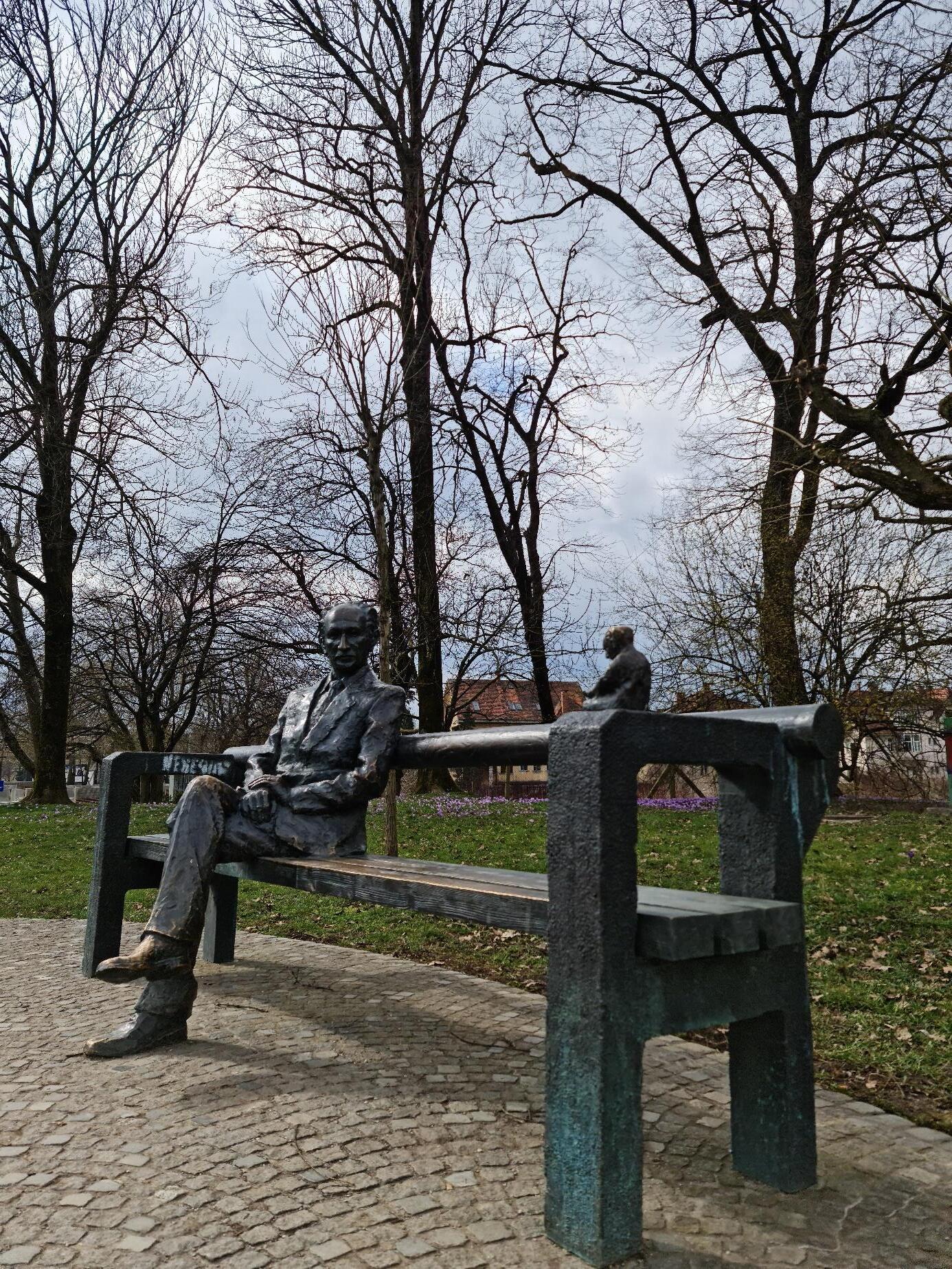
CANYON VOICES | SPRING 2023
ESSAYS | EDVARD KOCBEK Translation: ALENKA KOŽELJ
Statue of Edvard Kocbek in the Tivoli Park in Ljubljana
(Photography by Andrej Božič)
Translation: ALENKA KOŽELJ
On Poetry
By Edvard Kocbek
Translation: Alenka Koželj
One has two ways of enhancing the value of one’s own life: the first consists in the rational study of reality, i.e., in the systematic and practical organizing of knowledge about it, while the second consists in the experiencing of reality as spontaneous and self-liberating comprehending of its sensefulness. We call the first activity science, and the second art.
The task of science is to discover and classify knowledge regarding material laws with the help of various disciplines, and to therethrough solidify the conditions of man’s precarious life. Science progresses from one relative insight to the next and can never achieve global encompassment. The position of science is agnostic, spiritually neutral; it strives towards the safest and the most objective identification of the subject matter within attained insights. It must set aside all questions concerning ethical and final sense, for scientific insights are only partial with regard to man’s wholeness and man’s total inquisitiveness, whose character is metaphysical. This capability is bestowed upon man’s other inquisitiveness, whose strength does not lie in the causal logic and stringently connected evidence. It is bestowed upon art.
We can call art poeticity, for the poetic is the essence of painting as well as music, and, above all, of verbal expression.1 Poeticity is the comprehensive, generous, and redemptive experiencing of everything there is. Poeticity is, therefore, alogical and noncausal, yet total and ecstatic encompassing of reality as the releasement of being and the liberation of spirit. Poeticity bears witness to the evidence that, despite all the achievements of science and the triumphs of technology, we live in a world of unpredictable and incalculable future, i.e., in the world of fatefulness as well as mysteriousness, and, above all, in the awareness of ceaseless inadequacy. If science is the drive toward identification, poeticity is the desire for authentication. To be authentic means to feel oneself be the center of universe and to express from within it integrality of experience. If science is the systematic classification of exact laws pertaining to the lifeless and the living matter, then poeticity is the irrepressible and joyfully self-releasing play of imagination with richly diverse elements of fatefulness, from which it composes visions of wholeness.
Within the natural circumstances of life, there cannot and should not exist such a divergence between the scientific and the artistic truth wherethrough the value of one would suppress the
1 Although Kocbek in the essay often uses the terms “poezija [poetry]” and “poetičnost [poeticity; also: the poetic or poeticality]” synonymously, it is clear from the context that “poeticity” circumscribes an attribute, which can in its broadest sense be ascribed to all art(s) as such, whereas “poetry” refers to what we habitually connect with the expression: (freely) versified works fixated in writing. All annotations and interpolations in the text are authored by the translator.
ESSAYS | EDVARD KOCBEK
CANYON VOICES | SPRING 2023
value of the other truth. On the contrary, it would seem that both of them albeit each in its own manner tend toward an original process of transcending themselves, the first one with mind, the other with imagination. This transcending is called creation. We are mostly interested in artistic creation. Within it, we would like to disclose the predominant motivation of poetic activity.
Since time immemorial, man has been aware of the capability of qualitization. Man is endowed with the innate tendency to transcend present reality with imaginative propensity. The most interesting in this playful process is the fact that it fills us with a solid sensation of supplementing the actual to true reality only by its imaginative contribution. Simultaneously, one is overwhelmed by the sensation that this inventive approach fulfills our need for the wholeness of things or phenomena. Man is namely born with the intuition that everything given is for us solely given in an imperfect fashion compelling us to supplement each imperfectly given thing with the ecstatic propensity of our spirit. The imaginative capability seems to be unreal; however, by its spontaneous emergence within man’s inner life, it is a necessary and real phenomenon, without which one cannot conceive of the qualitizations that are the essence of creation. We shall see that creation is precisely within poetry a category of a very pure, intensive, and integral effort.
Humanity has always related the birth of poetry to the myth of lost wholeness. This is an ancient narrative of humanity, for it is common to various explanations of the loss of human freedom. The myth claims that the ancient man was expelled from the paradise of happy unity due to a fatal offense. The expulsion ravaged the ancient man, he became nothing but a part of the whole, upon which thence onwards he ponders with nostalgia and testifies to its reality by yearning for it. This expulsion represents the beginning of an imaginative exertion for wholeness and unity of the human being. Thus, poetry is the longing for lost harmony. With a fine ear, the poet never ceases to intercept, within the cosmic and fateful atmosphere, the scattered particles of the lost harmony: sounds, words, sentences, melodies, and, with them, meter, rhythm, verses, rhymes. This poetic play endures within all the peoples and within all the times, whilst only the content of its nostalgia always originally changes. That is why, from time to time, a poet arises from the people who, awestricken by an incredible desire for sovereignty amidst the sullen instants of emptiness, estrangement, and despair, enlightens us with the divine force of wholeness and community to the extent that we can sense the moments of immortality. Every true artist becomes, despite death, despite our most fateful desolation, such a master over the plays of fatefulness that he can stare into death’s eyes courageously, like [Franz] Kafka who said: “[T]he best things I have written have their basis in this capacity of mine to meet death with contentment.”2 Whoever achieves sovereignty through poeticity, gains power even over death itself.
Poetry is the guardian of authenticity in music as well as in painting and dance. However, its most loyal medium is the word. Poetry is, for a poet, connected with speech, with the language,
2 English translation quoted according to: Franz Kafka, The Diaries of Franz Kafka 1914–1923 (New York: Schocken Books, 1965), 102.
ESSAYS | EDVARD KOCBEK
CANYON VOICES | SPRING 2023
Translation: ALENKA KOŽELJ
Translation: ALENKA KOŽELJ
through which the poet began to humanize, and through the words of which, as the bearers of sense, he started to discover the contact with disclosures and enigmas of the world, whilst living first in the embracing arms of his mother or playing with his first fellow human beings. The word is, therefore, always already given to the poet, it is present at man’s birth. That is why poetry is the most natural of all the arts. The poet [Francis] Ponge3 says that the play of words directs every man towards the wisdom of nature and the righteousness of things. Through words, which are the most common of means, poetry can inhabit every man as the linguist [Noam] Chomsky ascertains , for language is not restricted merely to the practical means of communication, but serves as the means of free thought and of original self-expression. And since human language is undoubtedly the most humanizing of man’s capabilities and a peak of human development, the peak of language is not a logical matrix, but a poem, as Ivan Sviták4 concludes, for the lyrical expression is the highest concentrate of humanity, the peak of human possibilities.
In man’s life, the poem cannot exist as a habit and cannot be subjugated to any order. It emerges in accordance with its own pure will, and reveals itself without announcement and preparation. Therefore, it is revelation and grace. Absolute coincidentality. Horrible disruption. Yet, it is nonetheless prepared in the depths by invisible forces of cohesion; it arises from the encounter of our ancient memory and our ancient premonition, and prepares to spring forth like a chaotic eruption. An experience can be silently on one’s mind night and day, one slowly grows aware of it, welcomes it in one’s arms, thinks of it, one falls asleep under this burden and one wakes up in its shadow, one suffers for some days and some nights, one becomes blind and deaf to the world, one drags oneself like a gravid beast before giving birth. One breathes with growing difficulty, one does nothing but hold onto the anchor in the immense depths of things, knows nothing of the world’s banality and of its vegetating, its laws and its codes, but suddenly one begins to sense relief, for, behold, you have caught sight of the word, on the tongue, there lies yet another, just as unknown as the first one, the third one awakens, abruptly the commencement of meaning reveals itself, the melody of the sentence is formed, and one plunges into something that comes as redemption, and there it is, a newborn corpuscle, one’s heart beats faster with joy, it is clearly outlined and well-rounded, a real body among bodies; now, there is nothing else to do, but to take care of its exterior, to purify, to test its voice. What ensues is only a feeling of gratitude, of giving thanks, with eyes closed, for the conception and for the birth at once. In the end, one senses solely a sort of melancholy, much like after any love contact with an entirely virginal being.
There are different definitions of poeticity. Let us enumerate some of them. Poetry is a call summoning man to relinquish his vegetative state and to step onto the path towards a level of higher knowledge. Poetry is a perception of reality revealing a vaster and deeper transparence than the one enabled by the evidence of rationality. Poetry is the one sovereignty of the human
ESSAYS | EDVARD KOCBEK
3 Francis Ponge (1899–1988), French poet and essayist. His most famous work of art is the book of prose poems Le Parti pris des choses (1942; translated into English as Taking the Side of Things or as The Nature of Things)
CANYON VOICES | SPRING 2023
4 Ivan Sviták (1925–1994), Czech philosopher, critic, poet, and politician. He was an important European proponent of Marxist humanism.
Translation: ALENKA KOŽELJ
spirit, which is not based on the rational, but on experiential transparencies. Poetry is a creative expression of cosmic and fateful wholeness. Poeticity is the ecstatic sensation of materiality as of an inexhaustibly rich fountain of meaningfulness. Poetry is a magical disclosure of man’s existential possibilities. Poetry is a means, through which man can be reconciled with the world, protected against it, and exert mystical influence upon it. Poeticity is a sensation of having the world at man’s free disposition. Poetry is an adventure of language opening up the unknown and the immense qualities of man and universe. Poetry is a prophetic foretelling of future at the boundaries between two worlds, the worlds of dreams and of reality. Poetry is a beseeching of the evil and a summoning of the good, the expulsion of the evil spirit and the conjuring of the good.
Let us take a closer look at the manner in which a poem expresses this paradoxical essence. Firstly, we ascertain that within the poetic usage words become multivalent. This means that in a poem the word relinquishes its solely valid meaning and becomes polysemic. Even the most worn-out words attain within a poetic context, multiple meanings. In the poetic usage, we are mostly dealing with two major conceptions, between which there is, especially nowadays, a large amount of friction: the semantic and the structural meaningfulness of the word. The first conception pertains to the abundant lexical richness of each language, whilst the second is founded upon the formal and functional determinations of logical syntax. The broadest wealth of meaning is born from the semantic syntax: its realm disposes so forcefully and freely with atmospheric changes that the words surrender to them and experience entire scales of meaning. There are three elements of experience, which influence the meaningfulness of the word with the greatest of force: vital ecstasy, tragedy of life, and cosmic eroticism.
However, when we look at the poem in its entirety, we are confronted with the provocative insight into the circumstance that precisely the poem as a whole signifies the biggest transfiguration of meaning. With regard to this experience, one is tempted to conclude that the poem has nothing to do with ordinary reality. This means a poetic text is not real in the same fashion as other everyday texts. For man, a leaflet, a text of a law, a scientific treatise, or a newspaper with its reports are real. None of these texts is poetic. This does not mean that a poetic text is actually worth less or that it expresses a higher reality; however, it does mean that it is conceived from within a qualitatively different stance as the so-called factual texts. The language of both sorts of texts is the same, the only difference pertains to the specifically sensitive and disciplined choice of words. In an artistically effective poem, every word has its place, not one is superfluous, not one is lacking. The essence of the poetically imaginative creation, thus, lies in the irreplaceability of words. What characterizes a poem, is, therefore, the tension between defiance and risk, between surrendering to loquaciousness and dissolution in silence, in sum, between content and form, between the sincerity of contents and formal perfection.
ESSAYS | EDVARD KOCBEK
CANYON VOICES | SPRING 2023
This tendency is so strong in some poets that they conceal more than they reveal. The poet Günter Eich5 says: »I perceive a kind of correspondence between a poem and a Chinese letter, within which sense is concentrated, for the Chinese do not express words alphabetically or vocally, but with an image, that is to say, with an ultimate ascertainment.” Thus, we can now address the so-called voids in poetic texts. The factual or a documentary text is always necessarily fraught with information, so that it can be verified in each passage at every moment; only as such it fulfills its purpose. However, a work of literary art does not entail a thus complete and tightly intertwined structure. The essential characteristic of a poem is that it often dismantles the confessional arch or that it takes leaps within its realm. We like to say that poetry knows the so-called voids or vacant spots. One could call this trait of the poet’s work artistic freedom. Yet, this cannot be considered only as the elimination of all the redundancies in a poem; it is rather the poet’s gesture, with the help of which he entices or forces the reader to fill for himself the textual information voids with his own imagination. In other words: a poem is, by its very nature, an invitation to the re-creation of the poetic text in its fateful narrative. Through vacancies, the poet directs the reader toward an unknown land, thus resembling a tourist guide: sooner or later, one perceives the harmony between directions on the map and actual paths in the strange environment. Even when a poem entails some traces of the documentary, it can conserve its fictitiousness only by meaning or simulating pseudodocumentary authenticity, for a work of art is, in its development, an imagined reality, albeit built from the fragments of actual reality. With every sentence we read, our image of the connoted reality becomes denser, but, surprisingly enough, at once also more lacunal. Whenever a work of literary art composes itself within the imagination of the reader, it is, each time anew, composed in merely one of its many possible versions.
Literary art is, therefore, not identical with reality. Poetry is nothing but a challenging of reality and a responding to its challenge, although it does not relate to any factual or directly urgent occurrences and although the author has no such intent, for a true work of art always by itself always entails a fresh historical power: its contents can at all times be understood as a response to the question posed at each instant anew. This enticing role of poetry has been successfully explained by one of the more recent German literary theoreticians, Dieter Wellershoff.6 When contemplating upon the relationship between life and poetry, he compared literature with simulation technique. He borrowed this term from modern aeronautics and astronautics, within which the preparation for new and unforeseen situations during flights takes place in a special exercise room. In such a facility, the astronauts adapt to the conditions of zero gravity, work with different piloting variants, and come to know in advance all the critical phases of their future flight. This exercise system is called simulation technique, and can, according to Wellershoff, serve as a conceptual analogy for the explanation of poetry. For him, poetry is namely a simulation space, adjusted to real-life experience, a playground for imaginative
5 Günter Eich (1907–1972), German writer, author of poetry, prose, and radio plays. He studied sinology and published several translations of Chinese classical poetry.
6 Dieter Wellershoff (1925–2018), German author who wrote prose and poetry as well as theoretic and autobiographical essays. He developed the understanding of literature as simulation technique in the essay Fiktion und Praxis (Fiction and Praxis; 1969).
ESSAYS | EDVARD KOCBEK
Translation: ALENKA KOŽELJ
CANYON VOICES | SPRING 2023
agency, wherethrough both the author as well as the reader can surpass the boundaries of their practical experience without actually taking any real risks.
The comparison seems plausible. Whilst literature is by no means neither a factual reality nor does it exert any proven influence upon the latter, it nonetheless offers us suggestions or examples for behavior within situations of life, which we have as yet not experienced, but may well occur in future. We cannot, indeed, adapt to such instances of life behavior within poetry in quite the same way an astronaut does in the simulation space, for his gestures are strictly defined, whilst the poet possesses more freedom. At this point, the analogy with an aviator in the simulation space comes to its end; the poet’s position incorporates broader and freer possibilities of agency. In other words: the goal of poetic playfulness is not an absolutely regulated behavior, but a ceaseless and unrestrainable testing of the play of human life. Precisely in such a boundlessly potential variation of the imaginative lies the sense of man’s creative wordplays. Through playfulness, the poet and the writer, of course, observe also quite factual images of man within society, within history, within nature as well as within himself; because of this, some of the games played become serious, for in their yearnings and in their thoughts about fortune and misfortune, about good and evil, they both often are compelled to take the same risks as the aviator upon leaving the simulation space. Yet, neither the poet not the writer can ever be granted the indulgence of using predetermined patterns for risking an orientation.
Both man and world are ruled by the sensual and the formative instincts. The sensual instinct expresses the need for sensuous experience with matter, whilst the formative instinct expresses the mental need for measures and abstractions. The living tension between the two often leads toward a dangerously antagonistic relationship between them. Such a danger can be prevented solely by a third instinct, the instinct of playfulness. This instinct is endowed with the capability of simultaneous mastery over both antagonistic forces within man and within his agency. In the realm of art, this is especially true, for its space is specifically determined for a playful sovereignization. There exists no other place within which man’s life would attain more freedom than within artistic creation. In contemplation upon poetry, this realization is of fundamental importance. Art is the play of a human player who gambles with everything, i.e., with freedom, without afflicting the freedom of the fellow man. Science and technology study and transform the world, extend human lives, improve our living standard, cure diseases, and eradicate poverty. All of this is necessary and indispensable. However, it means merely the creation of conditions, all these services are only a beginning. The most important and most indispensable is yet to follow. All of this is namely solely the creation of space for the redemptive play, which we call freedom. I can liberate myself and become free, when I wrestle with all the structures of instinctive and conceptual terror not only with regard to the legal and ethical situations, but also with regard to the loyalty to my imaginative playfulness, within which my decisions possess the greatest degree of sovereignty and within which I find myself in a perpetual state of superior order allowing me to ceaselessly commit myself to a new challenging and to a new winning. Within the authentic space of creation, I am most loyal to humanity. Within this space, responsibility is authentic, because it confronts greatness that is
ESSAYS | EDVARD KOCBEK
Translation: ALENKA KOŽELJ
CANYON VOICES | SPRING 2023
Translation: ALENKA KOŽELJ
more true than the legal or the moral one. Within poetic creation, I am free for something, and not from something. Within this space, my free decisions are a response to the entire reality of life.
Within this space, of guiding importance is the realization that man is more than man. Within this space, the notion that we live only for production, accumulation, manipulation, and progress begins to lose its power, whilst the insight that true humanization is based on ecstasy, on immeasurable wholeness, and on playful freedom takes wings. Man is not an object of regulation, but a subject of a conquering and of a transcending of one’s own self. This is the sovereign word of poetry.
A BIOGRAPHICAL NOTE ON THE AUTHOR
Edvard Kocbek, a renowned Slovenian poet and prosaist, essayist, philosopher, and politician, was born on September 27, 1904, in the village of Sveti Jurij ob Ščavnici. In 1925, he graduated from high school and undertook the study of theology, which he abandoned two years later. Thereupon, he decided to enroll in Romance studies in Ljubljana, the capital of Slovenia; he graduated in 1930. As a student, he already started to publish in various journals.
Kocbek’s professional career began in Croatia, where he worked from 1931 to 1936. A scholarship, which he obtained, enabled him to study also in France. In 1936, he was appointed as a teacher at a high school in Ljubljana. Christian faith profoundly influenced his political stance and worldview; he, however, considered himself to be a Christian Socialist, and in a famous essay entitled “Premišljevanje o Španiji [Deliberation on Spain]” (1937) criticized the Catholic Church for taking the side of the right-wing leader Francisco Franco in the Spanish Civil War (1936–1939). In 1941, the Second World War engulfed Yugoslavia, of which at the time Slovenia was a part, and the country was occupied first by Italians, then by Germans.
Kocbek and other adherents of Christian Socialism joined the Liberation Front of the Slovenian Nation (Osvobodilna fronta or OF) working towards the deliverance of Slovenia from the oppression of occupying forces. He joined the underground partisan struggle and held several important positions within the organization. Yugoslavia was, under the leadership of the Communist Party, liberated in 1945. After the war, Kocbek assumed many high-ranking political and governmental positions. In 1951, he published a daring collection of novellas Strah in pogum (Fear and Courage), wherein he unearthed some of the less acknowledged aspects of the partisan resistance movement. The publication of the book was politically abused as an excuse to completely exclude Kocbek for the next ten years from public life; he was ostracized and isolated, for the rest of his life constantly under the surveillance by secret police. In 1975, an interview with Kocbek was published, within which he condemned the deplorable summary slayings of Slovenian collaborators after the end of the war. Again, the authorities launched a defamation campaign against him. He died on November 3, 1981, in Ljubljana. Kocbek’s life and work are a testimony to the chaotic and cataclysmic tumultuousness of the 20th century; he is one of the central personalities of the Slovenian and Yugoslav cultural, intellectual, and political life.
ESSAYS | EDVARD KOCBEK
CANYON VOICES | SPRING 2023
ESSAYS | EDVARD KOCBEK
Translation: ALENKA KOŽELJ
Among Kocbek’s publications deserve mention (at least): the books of poetry Zemlja (Earth; 1934) and Groza (Dread; 1963), the testimonial prose based on the author’s war journals and edited by himself, which appeared in the volumes Tovarišija (The Comradeship; 1949) and Listina (The Document; 1967), as well as books of essays Svoboda in nujnost (Freedom and Necessity; 1974) and Sodobni misleci (Contemporary Thinkers; 1981).
There exist several English translations of Kocbek’s poetry, of which perhaps the most exhaustive and representative is the book translated by Michael Scammell and Veno Taufer, and prefaced by Charles Simic Nothing Is Lost. Selected Poems (Princeton and Oxford: Princeton University Press, 2004).
Translated by Alenka Koželj
* Translated from: Edvard Kocbek, Svoboda in nujnost. Pričevanja [Freedom and Necessity. Testimonies] (Celje: Mohorjeva družba, 21989), 246–253. The text “On Poetry [O poeziji]” remained unpublished at the time of its formulation; it was published for the first time in the first edition of the author’s book of essays Freedom and Necessity (1974); the expanded second edition was revised by Kocbek’s close colleague and translator Janez Gradišnik
For more information on translator Alenka Koželj, please visit our Contributors Page.
CANYON VOICES | SPRING 2023
◼ ◼ ◼
Sonnet for when I become your cherry tree
By Abi Diaz
Scar along your spine predates even me I’ll trace its pale parapet with kisses. your lips adorn my striped hip cherry tree in mouths search for each other’s pit. Misses we’ve already swallowed it. Silent pleas Transform to timber knots in our stomachs. our unspoken words become bumblebees Fear kamikaze stings yet we covet their buzz. I’ve often wished my tree trunk could make up for all the ways you’ve been misloved. Yearn for you to seek my refuge you’ve hugged my bark’s curves, eaten every cherry, wood waiting for your expert axe but this time please let your cruel misgivings not be mine. n
For more information on author Abi Diaz, please visit our Contributors Page.
POETRY | ABI DIAZ CANYON VOICES | SPRING 2023
n n
Munchbud Ink

ARTWORK
CANYON VOICES | SPRING 2023
Eldritch Heart | digital
Swallow
By Veronica Gonzales
Ican tell she’s angry by the way she’s going 60 on a residential street with a speed limit of 40. We’re on our way to the grocery store, and she wants me to go to law school. I’m trying not to cry because she hates it when I cry, and there are so many things I’ve been wanting to say, needing to say. I want to tell her she’s my best friend, but there are times that I don’t want to listen to her because going to law school or going to a Thunder from Down Under show with her in Las Vegas isn’t something I’m particularly interested in. I love her more than anything and anyone in this world, but cutting her toenails once a week makes me sick. I want to tell her that I love her to the moon and back, across the Milky Way, through thousands of light years, and I can’t sleep without hearing her say it back, without her kissing my hand no matter how tired she is. I want to ask her if she knows that love and hate are not mutually exclusive, especially in mothers and daughters. I want to tell her that she’s my best friend, that there’s no one else I would rather gossip with while we’re eating fast food burgers and soggy fries in the car, parked under a tree in the grocery store parking lot. I want to tell her that she’s become my worst enemy, that I hate her with exactly two-thirds of my being, and I hate myself for hating her. I want to tell her I resent her because sometimes I wake up with her hand on my throat, suffocating me without even knowing. Maybe if I told her, I’d be able to breathe a bit better, but I know if she lessened her hold on me, she wouldn’t be able to breathe herself. I want to tell her that I liked it when I was alone across
the country for a week’s trip, where the air was cleaner, where my clock was three hours ahead, where I was waking up by myself with the sun shining through the windows of my hotel room on the sixth floor, instead of waking up next to her at one in the afternoon in a stuffy bedroom that she smoked in all last night with blackout curtains in a one-story home. I want to tell her that I thought I was going to cry on the plane ride there, on my way to the hotel, as I slept alone, but I didn’t, and I didn’t miss her, and I feel so guilty for it. I don’t know why I didn’t miss her, but I know exactly why. I want to tell her that guilt tripping me works every time because I can’t stand it when she’s angry at me, but I hate it when she’s asking why she even bothers anymore, why she’s still here in this life, when she’s talking as if she’s already dead, when she’s telling God to just take her right here, right now. I want to tell her I hate it when says things like that because I don’t want her to leave me just yet, I don’t want to be abandoned again. I think we’re both too afraid to admit that my dad leaving scarred me way worse than we both thought it would, and I don’t think I can ever swear in front of her, that I can count the times I’ve cried in front of her in my twenty-one years with just my two hands. And there are times when I want to cry, and I just want her to hold me without saying anything, without turning it into a lecture, without her saying she’s a bad mother, even when it has nothing to do with her. I want her to let me cry just to cry. I want to tell her I keep my seatbelt on even though we’re parked because I just want something to hold me. I’m tired of being strong
CANYON VOICES | SPRING 2023 CREATIVE NONFICTION | VERONICA GONZALES
and brave, and I want her to stop yelling at me, whether I’m right or not, to stop taking out her anger on me when I wasn’t even in the same room as the person who made her angry in the first place. I know she loves me, but I don’t feel loved sometimes. I cry in my car, sometimes for no reason, sometimes because of her, sometimes because it’s the only place I have to myself. I want to tell her that I’m too exhausted of myself, of her, of the world. I want to tell her I hate going to the casino because when I turned thirteen and had a birthday party at an amusement park with four of my friends for the first time in five years, I thought I was the cause of our eviction notice the next month. I want to tell her I know now that it was because she thought she could get lucky if she just put in another twenty into the machine, and now that I’m twenty-one, whenever we go to the casino, I panic and get scared that she’s just going to lose everything. I want to tell her I hate how I had to climb up a small ladder to the microwave to heat up a quesadilla made from cheap tortillas and processed cheese when I was five. I hate how independent I’ve always been, how when my boyfriend opens doors for me, holds my purse, sits there and just listens to me, I don’t know how to begin to let myself depend on someone else. I want to tell her about that time when we both believed that she could get rid of all of the cockroaches from our tiny motel room if she sprayed a whole bottle of cleaning spray around to keep them at bay, and it was so strong that even after I showered the next morning, my best friend didn’t want to sit next to me. I want to tell her that sometimes I don’t know what to do with myself when she has no place to scream, when she whispers the secrets to all of her pain, all of her anger, all of her hatred to me. I don’t know what to do with these secrets, where to hold them, where to hide them. I want to tell her that I go to therapy to
talk about her, that when my therapist told me to try and say that I love myself out loud, the words were so foreign, my tongue didn’t even know where to begin. I can only say “I love you” to her, our three dogs, and our two cats, that I only know how to love and how to receive love from a distance, that I only know how to love others. And I want to tell her that my boyfriend is telling me I’m pretty, but I don’t believe him because, one, we’re sitting in my car, under a dim street light, and two, I learned how to look at my body from the way she looks at hers. As she’s staring in the mirror, fresh out of the shower, she’s telling me that I don’t want a stomach like hers. As she’s rubbing her favorite Bath and Body Works lotion into her arms, she’s telling me that I don’t want to be as dark as she is. She’s looking at pictures of her twenty-year-old self when she was a size four, and she’s telling me to watch what I eat so I don’t end up like her. She’s telling me if she could go back in time, she would do sit-ups every day, at least ten in the morning, and she’s saying she hates wearing leggings because it won’t hide the fat. She’s pinching the roll on my stomach when I sit, tracing the stretchmarks on my thighs and my hips, hoping if she presses down hard enough, they will just disappear. I want to tell her to stop. I want to tell her that on bad days, I avoid making eye contact with my own reflection, and I get ready in the dark because I hate how my stomach folds when I bend over. I want to tell her I’ve been pulling out my hair, strand by strand, and I’m scared I’ll be completely bald any day now. And she’s telling me I look like my dad, and she hates that I do, and I hate that I do. I want to confess to her that I don’t really believe in God or myself anymore, that I don’t really know what it’s like to love life. It feels like my heart has only ever known how to be sad, and I think it runs in our blood. I’ve been tracing our family tree, trying
CREATIVE NONFICTION | VERONICA GONZALES CANYON VOICES | SPRING 2023
to figure out from whom I inherited this sorrow. I want to tell her that I love that I inherited the shape of her eyes, the shape of her lips, her shoulders, her thumbs, but I hate that I carry her tendency to be a hypochondriac, her ability to start something and never finish, her yearning to be something more than I am. I wonder how much of her is in me, how much of me is in her. I want to ask her when her story ends and when mine begins because it feels like she fed me her pain through the umbilical cord. She handed me the war that she was fighting, but I’m a pacifist, just like her. I want to tell her that it all feels like a game of survival of the fittest, and I think I’ve developed better defense mechanisms than her. I want to tell her that I’m a Richter scale in the flesh, feeling her movements as we lay in the same bed. I can detect the shaking of her body, and I know if her jolts are from nightmares or uncontrollable sobs. I want to teach her what I know, what I learned over the years; I want to show her how to sniffle without sound, how to listen to the vibrato of a shaky breath, how to ignore it, how to comfort someone else. This trauma has not evolved, and we might have, and this trauma is being passed down, but I’m afraid neither she nor I will be the generation that’s going to win. I want to tell her that I’ve gotten good at watching the world pass me by, and I’m about to surpass her record. I want to tell her about all the times I had to swallow myself whole, how many times I made myself smaller for other people, for her. And I’m such a people pleaser, I don’t know how not to be because she taught me to follow every command without question. I want to ask her if she can help me unflatten myself from being a doormat. I want to ask her if she knows which parts of my personality are truly mine and which are parts that I’ve stolen from others. I’m scared that I’m never going to be me, never going to be successful, happy,
content, never going to reach the heights she’s expecting me to reach, never going to be what she wants me to be. And I hate the way she looks at me, the way she thinks of me as the miracle child she had at 40, when her biological clock was up, the redemption child who will be what her firstborn couldn’t, what she herself could have been, should have been. I look in the mirror, and the right side of my face looks like her. When I was younger, I only ever wanted to be as beautiful as my mother, as strong, as brave, as smart, as resilient. When I was younger, I only ever wanted to be her, but I want to tell her that I look at her now, and becoming her is my biggest fear. I don’t want to be emotional, unstable, lazy, weak, harsh, cruel, manipulative. I want to tell her I only love the right side of my face, but I want to rip it off. I want to ask her if she ever looked at her own mother this way, if her mother looked at her mother this way. I want to ask her if we always end up like our mothers. I’m my mother’s daughter because I’m rubbing cheap perfume on my neck just to feel something, just to check that I’m still here breathing. I want her to know that I don’t mean any of this just to hurt her. I’m trying to undo my centrism and learn how even though she’s older, even though she’s my mom, she’s still learning how to live this life, how to be in this world. I’m trying to understand that she did everything she could with everything she had, that although she’s not the best parent, she tried her best. She’s trying her best. I want to tell her I’m always rooting for her, for her to heal from all the things that hurt her, all the things she doesn’t talk about. I want to tell her I want more for her too. I saw a picture of her when she was about eleven, and I’ve never seen her that young before, and I think of who she must have been, with all her hopes and all her dreams. I want to tell her I know what it’s like to eulogize who I was, who I
CREATIVE NONFICTION | VERONICA GONZALES CANYON VOICES | SPRING 2023
could have been, should have been. I know what it’s like to have home be a heavy impression, how it’s the one thing we’re always running from. I want to tell her that I know now that we are more alike than we are different, and I’ve buried this in my sternum, and there are earthquakes every time I breathe, fracturing the headstones, unearthing these old bones. I don’t know how to make it stable, how to put them to rest, and I think that’s why I resent her so much. I want to tell her that I’m sorry. At this moment, I want to tell her to slow down because she’s going twenty over the speed limit, her license is expiring next month, and we can’t really afford a ticket right now. I want to tell her on our way to the grocery store, where in the parking lot, she’ll hand me a list of twenty different items I need to get and then when I’m about to pay, she’ll call me with five more, and I want to tell her I’m sorry in advance because I’m too tired from spending last night watching the ceiling fan and listening to her snores, and I know that it’ll make me sound agitated on the phone. I want to tell her I’m sorry that I was too snappy when I got defensive when she said she’s never going to get her Louis Vuitton bag
now that I’ve changed my mind about law school. I want to tell her that I’m sorry because I know I won’t be happy in law school. I want to tell her that I’ve always wanted to get her everything she never had, everything she never could give me. I’m sorry because we’re making her feel policed when my sister tells her that she can’t just say whatever comes to her mind without thinking about how it will land, without thinking about how it might hurt us. I want to tell her that I’m closing my eyes in the passenger seat, trusting my seatbelt will keep me in place. I’m bracing for impact as she speeds down the road, for the moment she loses control of herself and the car and veers off into the brick fence of some house or the metal pole of the traffic lights, taking us both out of this miserable, miserable life. I want to tell her all of this. I need to. But I have never been the child who speaks up, the child with the backbone, the child who fights back. I’ve always been the child who was afraid of losing her mom too, so I swallow these words, exhale the breath that I’ve been holding, bite my tongue until there’s a sore, and we drive in silence.
n n n
For more information on author Veronica Gonzales, please visit our Contributors Page.
CREATIVE NONFICTION | VERONICA GONZALES CANYON VOICES | SPRING 2023
Rosalinda Pacheco

ARTWORK
CANYON VOICES FALL 2023
Manten tu Corazon |acrylic on canvas
Red Twenty
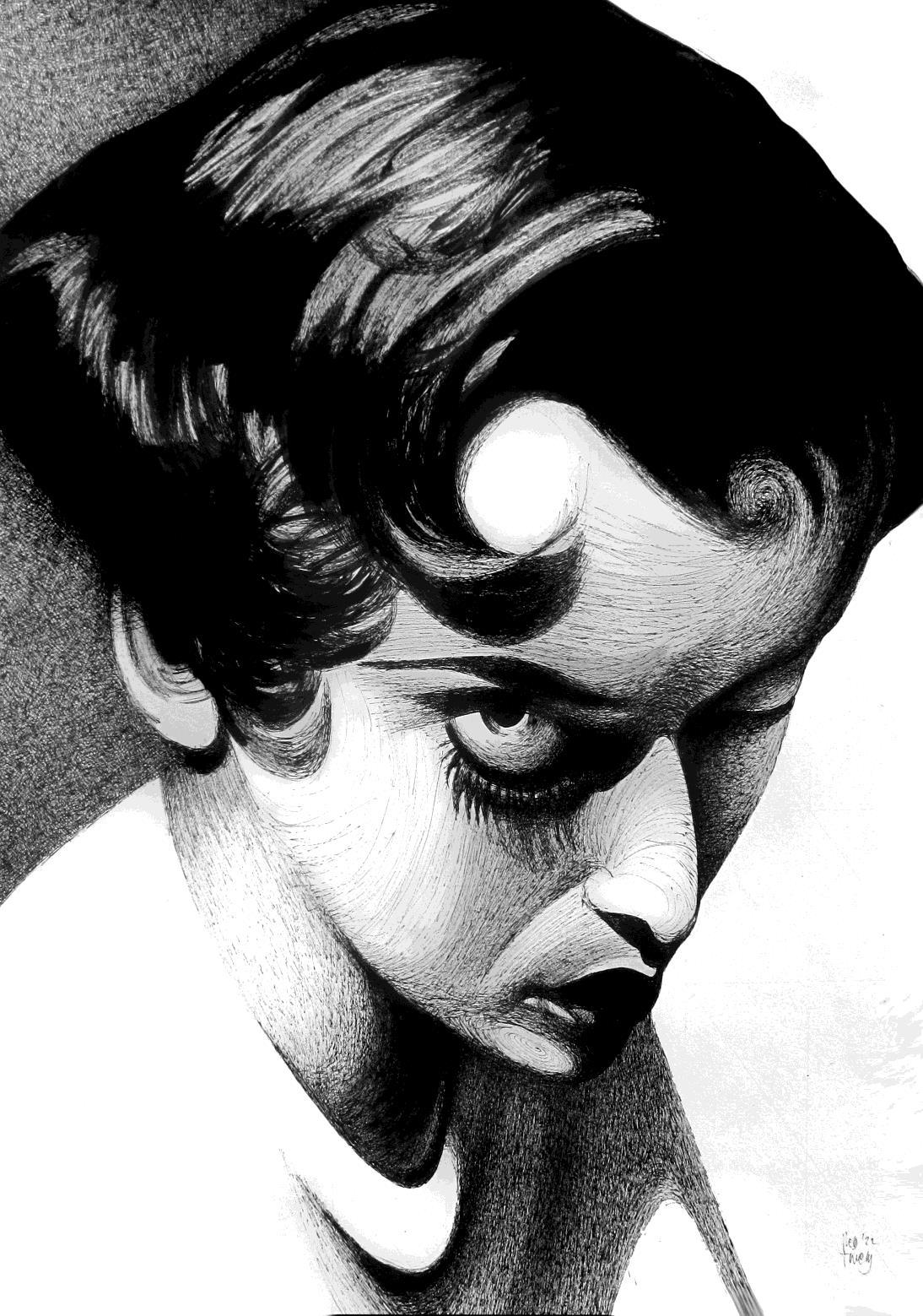
ARTWORK
CANYON VOICES | SPRING 2023
Deceiving Eye | Ink on Paper
The Victory
By Wade Sharp
The brass jingle of a shop bell rang above her as she stepped into the derelict lobby of the Victory Motel; the type of motel that should exchange Bibles in the top drawer for Narcan outfits; a quaint, ding a-ling, at the entrance just seemed like a lie. The lobby smelt of head shop oil and the lighting inside was unkind and clinical. Clutching fifty-five dollars in her right hand, Elizabeth could still feel the ick of twenty-three, inchoate, chromosomes drying to her smooth thigh. It was exactly the sixth time she’d tricked herself out in all the years she was homeless. Generally, she flies a sign. But today is Elizabeth’s fiftieth birthday. She spent her first lachrymose night on the street when she was thirty years old. For twenty years, Elizabeth has managed to keep her habit without overdosing, going to prison, or getting clean for more than ten hours. For a junkie, that’s a preternatural accomplishment that takes a salty kind of prowess and a natural aptitude for subterfuge. For her birthday, she’d resolved to gift herself a night at The Victory as a rare munificence for surviving so long when so many others around her died. She didn’t care how she had to procure the money. It was uncommon to let her desire for a fix fall short of something else, but she remained obdurate that she could figure out a way to get dope later. All she wanted was a room, where she could sleep under sheets, alone, and welcome herself into her pre-twilight with a sludgy fix. A place where she could fade away for a while without waking up to sirens on a bus bench that shattered her eyes open direct
to the miasmatic frenzy of a paradoxical world that thrives on killing itself.
The owner of The Victory, Sergey, sat at the front desk with his gaze staring deep into a section of the wall where the paint was peeling off. He was the precise human reincarnation of The Victory Motel. A dilapidated, malnourished, sunken-eyed man, who made a Faustian misstep in procuring his business, and now the weight of its ownership was a dark mass. A cancer spot on his heart that manifested through the permanently downturned corners of his mouth. His skin was jaundiced from the drinking and smoking he disposed himself to in dealing with the various traumas of owning a dumpy hotel. His hair was thin and greased back in sparse locks over the bald patch on the back of his head. Morning, noon, or night, Sergey never failed to stink of grape Mad Dog. He was so lost in his thoughts that he flinched when the brass bell rang as Elizabeth stepped inside.
“Sergey, Love, I need a room. And I don’t need you to give me any shit about it,” Elizabeth said.
“Do you hear that?” Sergey asked.
Sergey was four out of Elizabeth’s six tricks. One night, he found her flying a sign on the street corner and asked her if she needed a place to sleep. She allowed him to take her to the room he kept at The Victory and then he
FICTION | WADE SHARP CANYON VOICES | SPRING 2023
paid her to laugh and make jokes about his penis while he masturbated. That was his kink, and he loved it. Easiest forty bucks Elizabeth ever made. Only thing is it’s hard to keep coming up with fresh material about a small penis. Afterwards he would talk out loud for hours, and she allowed herself to listen, prolonging her time in shelter. After the fourth session, she felt she knew everything about him. He would go on to her volubly like she was his therapist. He told her that he had two daughters back in a small southern town, and she picked up a pusillanimity in the shaky timber of his voice that told her he was guilty of leaving them. He told her that he wouldn’t even dare to call them until he finally turned the hotel around, which Elizabeth knew was a futile exertion of hope. It was too far gone.
“I don’t hear anything. This place is driving you crazy.” Replied Elizabeth.
Sergey pointed one crooked finger towards the ceiling and said, “Drip. Drip. Drip. DRIP!
DRIP!”, In synch with the sound of a distant dripping to emphasize the noise for Elizabeth. “I’ve searched for this drip for four hours. I can’t find it. It feels like God is trying to waterboard my thoughts.”
Avoiding the conversation all together Elizabeth cheerily replied, “I brought you some business!”, and pridefully slapped fiftyfive dollars, damp from clammy hands, on the desk in front of Sergey.
“This isn’t enough…”
“There’s fifty-five bucks there!”
“I can count. I raised the rates. It costs eighty a night now.”
“What? Who the fuck do you think is going to pay eighty bucks a night for this shit hole? No offense.”
“I had too. At such a low rate, people like you, no offense, keep coming here and overdosing. I’ve walked into six dead bodies this month. It’s bad for my soul. I’m going to fix this place up. I already bought a Keurig for the lobby.” Sergey pointed his long yellow fingernail to a new coffee maker.
“Oh, Sergey come on! I’ll hustle up the rest tomorrow! Or how about this, if you let me get the room for fifty-five, I’ll help you find the leak?”
Elizabeth may have been older, and she may have been missing a few teeth, but she still had eyes that, in the right light, looked like sunshine refracting through green obsidian. They were big and lurid and innocent, and she could use them as a tool to lie. Where her soul was supposed to be seen was a black hole that served to identify desolation, and she found Sergey’s, and he could feel her sucking him in against his will, and just as he was about to give in, the brass bell jingled once again behind her.
Sergey broke her stare and said, “No. Liz. I raised the rates. I have to start sticking to my guns on things, or I’ll never turn this place around.” All the while he was watching a young man who’d stepped into the lobby dripping from the summer heat. When Elizabeth turned around, she found herself staggard by his natural, masculine, beauty. He couldn’t be any older than eighteen. He was long and thin, with a built angular jaw that flexed, muscular and chiseled as he set his heavy bag on the ground. His face was beat red from the sun, and he had green eyes like hers, but with a freshness, and
FICTION | WADE SHARP CANYON VOICES | SPRING 2023
she could immediately tell that he hadn’t been traumatized by anything on the street quite yet. But she had no doubt that he was a junkie too, and as strong as he came off, she could see that he was scared and new to being unsheltered.
He stepped in front of her and said, “I need a room” to Sergey as he lay his own fifty-five dollars gingerly down on the desk; some of it in quarters and dimes.
“That’s not enough.” Elizabeth said to him.
“The prices have been raised to eighty dollars a night.” Sergey added.
The young man’s eyes glassed over, his lips turned down, his jaw began to quiver, and Elizabeth saw that the young man was about to cry.
Out of avarice more than solicitude, Sergey suggested, “Why don’t you two go in together on a double bed?”, then he looked at River and said, “She has the same problem.”
Elizabeth interjected in her loftiest tone, “Nope. I don’t know this kid. I don’t need to wake up to somebody whacking it over me, breathing all heavy, in the middle of the night”, secretly hoping the young man might protest.
The young man looked down at her and whipped back, “Don’t flatter yourself lady. My penis would ejaculate tears if I tried to whack it to you.”
Being that this was only the second set of words Sergey and Elizabeth had heard him speak, they were caught off guard. He looked like such a sweet kid. Elizabeth’s lips slowly crooked
upwards into a semi-smile as she stared at him in mirthful amazement.
“I wasn’t expecting that.” She said to the young man as she pulled her sagging pants up over her emaciated waist only to let them fall right back down to where they were.
“What’s your name?” She asked.
“River.”
“My name is Lizzy. Do you want to split a room for a night, River?”
River thought that she posed no real threat. He had nothing she could steal from him. If anything, he could tell that she could get him drugs, and he needed those. He had just smoked his last bit, and his every heartbeat was the tick of a clock that was counting down to withdrawals, so he acquiesced, “Sure. Okay.”
“Alright. Double bed. Ninety with tax.” Sergey said in the spirit of a true capitalist. “Now it’s ninety?” Replied Elizabeth truculently.
“With tax. Yes.”
The brass bell jingled once more as River and Elizabeth heaved their bags from the lobby, through the hotel’s outdoor hallways, naked to the torrid Phoenix summer. Waves of heat refraction rose from the shimmering blacktop and bent the distance through which they could see other junkies pushing carts down the street, some setting up camp with cardboard boxes. It was a miserable day outside, and they simultaneously felt the reaffirmation that they had made the right choice to share the comfort of a hotel room. They even felt lucky to have met.
FICTION | WADE SHARP CANYON VOICES | SPRING 2023
Their room was upstairs, and they could look out over the railing and see over barbed wire topped walls that closed the area in making it look like a prison, but also protecting it from the growing influx of peripatetic vagrants who would try to hang out in the hotel’s stairwells. They could see their infernal ghetto, moving and breathing and flatulating, and their short hairs goosed at the distant sound of police sirens with the pesky flashing of red and blues, and Elizabeth called, “One time!” out of pure instinct, and they could see people screaming at one another, and the sound of gunfire clapping off in the distance, and in that moment they felt a safety that neither had felt in a long time.
Elizabeth looked at River and said, “Let’s try to enjoy this while we can, kid. Tomorrow its back to that.”
They opened the door to the hotel room, and the air conditioning blew through their sweat laden skin like an arctic squall. Elizabeth shivered, and instantly tucked herself under the covers, turned on the TV for the comforting white noise, and began sucking her thumb; something she has always done whenever she feels safe.
River sat down on his bed, and asked a query as old as junk itself, “You got any dope?”
“Nope. But I know where to get it. I have ten bucks left, not sure how much you got, but if you want to go in together, I know a guy who will drop it off.” Said Elizabeth.
“I only have ten too. Do you know somebody who will deliver a dub?”
somebody like you. That’s for sure.” “What do you mean?”
“Benny is going to love you. He will hook us up just to be able to hang around you.”
“Okay.” Said River not really knowing how to respond but satisfied enough with the idea of getting hooked up.
Then Elizabeth asked him a question she already knew the answer to: “Do you smoke it or bang it?”
“I smoke Percs.” Replied River.
Liz was an old school junkie. It felt to her like nobody banged heroin anymore. Most modern drug addicts are smoking Percs now, but for Elizabeth, the needle is romantic. She adores her ritualistic fix. Opening her meticulously organized kit, with her acacia-gold measurement spoon; her assorted Bic lighters; the vinegar smell of simmering junk settling into her nostrils like the steam from a warm homemade soup; gracefully pulling a cotton sliver from the butt of a cigarette with her front incisors, wading it up with saliva using her tongue and the roof of her mouth, and then gently spitting it into the spoon. She was given a glass syringe at the needle exchange; those were hard to come by. The tie, the flick, the slap, the poke, and then the push. She was almost more addicted to the sensuous measured sequence then to the dope itself.
“He only sells black, and G, and smoking a dime isn’t going to get you very far, is it?”
“Guess not. I don’t have a point though.” River replied.
“I know somebody who will deliver a dub to
FICTION | WADE SHARP CANYON VOICES | SPRING 2023
Elizabeth cocked her head to the side and said in a sweet, motherly, voice, “I do. Don’t worry sweetheart I’ll take care of you. Just go in half with me. He’ll hook it up and we’ll be set for the night.”
Addiction doesn’t give much wiggle room for choice, and River supposed it’s not like he had to keep shooting up. He could do it just this one time and go back to smoking.
Four hours later they were still waiting for a knock at the door, both getting sweaty and antsy. River had unfolded about twenty old trays and was trying to smoke the residue of old trails where he’d already smoked Percs on them before. His throat burned from sucking in butane and heat. Elizabeth pressed out her cottons, and managed to get a pretty good shot in, but it wasn’t enough to breach any kind of euphoria. When the knock finally came, Elizabeth got up excitedly and opened the door to a stubby little man, with thick puffy sags under dark, melanin, eyes. He had a pencil mustache under the shadow of a villainously pronounced aquiline nose. He sported a cul-desac bald spot, with thick black curly hair on the sides of his head that he brushed back behind his ears, and bushy black eyebrows that pointed to an angle at the top. The stubby little man epitomized the stranger that children’s classes learned to avoid. Elizabeth told him to come inside and made him feel right at home. As soon as he caught River’s eyes once, he held on to them with menacing intensity, and would get visibly upset if River ever looked away.
In a supremely confident, thick Castilian accent, he said, “Who is this beautiful young man?”
right though, he was obviously crazy about River. As a rule of thumb, no dope dealer will ever drop off a dub sack. If it had just been her, there was no way in hell he would make a trip to The Victory, but for a guy like River, he’d travel across town. A silent tension filled the room now after nobody gave the introduction Benny was looking for. It expanded so rapidly that Elizabeth felt that if she didn’t say something, it might push her right through the dry wall.
“That beautiful young man’s name is River.” Elizabeth said.
“And why does he not speak for himself?” Said Benny.
“I think you’re scaring the shit out of him.”
“Am I scaring you, River?” (Except when he said “River”, it didn’t sound like River, it sounded like “Reeber”). “My name is Benicio. Call me Benny.”
Benny had disregarded the business transaction that he’d arrived for entirely. Elizabeth was
River could feel that Benny wanted him, and he was overcome by the discordant cofunction of fear and flattery. He had been homeless for just under a year, and there wasn’t a pair of eyes that passed him on the street whose look didn’t let him know he was nothing more than a piece of dried gum sitting under a piece of dog shit. River was beautiful. He knew he was beautiful. His whole life he felt the feathery weight of his beauty shrouding him, sugary and warm, and it was a painful contrast knowing that people looked down on him now that he was a homeless junkie. It was an old rusty knife stuck into the ribcage of his vanity. A part of him welcomed the familiar feeling, one he hadn’t felt in a long time, the feeling of being wanted. On the other hand, Benny was likely the creepiest person he had ever met. His eyes were beady,
FICTION | WADE SHARP CANYON VOICES | SPRING 2023
and he had scarring on his face from acne and the incessant skin picking a meth addict is prone to. He was a hideous man, who carried with him this massive cloud of turpitude that could leave his path stained.
“You must beat the ladies off with a stick, River.” Said Benny.
“It’s been a while.” River replied.
Benny pruriently placed his fat little hand on River’s upper thigh and squeezed, making him shiver in disgust and said, “That’s madness. I’ll pay you fifty dollars right now just to let me suck your dick. All you do is sit back and relax.” He said this with the same pragmatism with which most men talk about taxes or the Super Bowl. Elizabeth’s green eyes illuminated like glowing electrons in radioactive decay at the proposition. “Easy money…” She couldn’t help but think.
“I don’t think so.” Said River apprehensively.
Benny took a square piece of tin foil out of his pocket, unfolded it to show a thick black smudge, lit it from the bottom, smoked it, and all but blew the smoke into River’s face as a wordless rejoinder. River did all he could not to salivate as he watched the smudge slide down the tray the way a piece of butter melts across a flapjack leaving a greasy trail in its wake.
“Can I hit that?” asked River.
“That’s up to you.” Replied Benny.
“What?” River asked, not knowing any other way to navigate the situation then to just play dumb.
Benny looked down his bird beak nose at River and said, “Don’t be coy with me.”
Realizing she’d been forgotten entirely, Elizabeth pulled the money they’d called Benny over to spend, and found a small interstice in their awkward interaction to say, “Here’s the twenty… Can we start there before we negotiate something else? Might lubricate the deal a little bit? Ha.”
“Maybe I don’t sell you drugs. Maybe I’ll just leave and go someplace else. Leave you sick.” Benny said as he folded up his tray and stood up slowly to walk out the door.
Typical dope dealer with a God-complex. In real life, he’s a dishwasher at Lolita’s Burritas. Selling dope is a side hustle, but the feeling of power he associated with his reign over the junkie miscreant population is more addictive than any physical substance he could think of.
“River, can I talk to you in the bathroom please?” Said Elizabeth.
“Okay.” Replied River.
Benny’s gaze never left River even as he got up and followed Elizabeth into the cramped ensuite bathroom. Elizabeth closed the door gently, looked into River’s eyes and spoke to him in a soft, sweet, whisper, “I knew he would like you.”
Feeling utterly objectified, River whispered back, “You said he would just hook us up for being around me, you didn’t say he was going to give me an ultimatum. You’re trying to pimp me out.”
FICTION | WADE SHARP CANYON VOICES | SPRING 2023
“I’m not. I didn’t plan this, but maybe you should consider it. You have the option to make the easiest money a guy like you could possibly ever make out here. It’s just a hustle.”
“I’m not a fucking street treat.” Replied River, obviously having been named that specific epithet before.
“Nobody is calling you a street treat! It’s just a hustle. But he’s about to give you fifty bucks for putting in zero effort, not to mention zero risk of getting arrested! Take one for the team dude!”
“Listen, I’m not, not, okay with it. I’m comfortable enough with my sexuality to know it’s just a hustle. Maybe if he was prettier. He’s just so… ugly, and creepy. He touched my thigh through my jeans and I wanted to rip my hair out.”
“Welp, when you’re lying in that bed, sick as a dog, and Sergey is pounding on the door to tell us to get out tomorrow morning, I’ll open the blinds, the hot sun shining through, and I’ll say, ‘Come on kiddo! It’s back to the street with nothing to get you well!’ and I guarantee you’ll wish for money this easy.”
River couldn’t believe he was considering letting Benny go down on him. He also couldn’t believe somebody was going to pay him to suck his dick. He figured Elizabeth was right, it was easy money. His dope sickness always started as a soreness in his thighs, and he could feel them tenderizing as he stood there. He began to feel claustrophobic in the tiny bathroom.
I’ve never seen him look at anybody the way he looks at you.”
“Oh, lucky me.” Said River sarcastically.
River wanted to mutilate himself for even considering it, “If we do this, I want more than fifty bucks.”
“Then try to negotiate more.” Said Liz.
River smirked a guileful little smirk before he finally came out and said, “We should rob him.”
“Really? I think he’s kind of dangerous.” Protesting slightly, but also surprised she hadn’t thought of the concept herself.
“Does he have a gun on him?” Asked River.
“Always.”
“And I bet he has cash on him?”
Elizabeth continued, “I know he’s rather frightening, but when you think about it, you have the upper hand here. He wants you, bad.
Elizabeth was surprised by River’s fearlessness. In a small epiphanic millisecond she realized that she was wrong about River’s looking scared when she first laid eyes on him in the lobby of The Victory Hotel. She realized he wasn’t scared so much as he had something to prove. The whole thing made her heartbeat fast and she smirked her own greedy little smile as if the feeling was contagious, and she even shivered a little bit from the excitement. Elizabeth had known Benny for a long time, and she knew he wasn’t cartel affiliated. He worked in a dish-pit all day scrubbing spatulas, but that didn’t necessarily mean he wasn’t dangerous. She wondered, “How dangerous could he be?” River must have outweighed Benny by thirty pounds, and he was at least three feet taller than him.
FICTION | WADE SHARP CANYON VOICES | SPRING 2023
“Alright. You let him suck your dick for a few minutes, then I’ll sneak out, snag his gun, and turn it on him while you run his pockets.”
“Yes. That would make me feel a lot better about the whole, my penis being in his mouth thing.”
It was settled. They would rob Benny. River took a deep breath and opened the door. There was Benny’s gaze again, waiting for him. Elizabeth was surprised to find herself with a tinge of jealousy as she stood there waiting in the bathroom. Twenty years ago, that would have been her out there, but with her mouth around some creep and his hands on the back of her head, and then she suddenly felt at ease with her position in the scenario. It only took a few seconds before she could hear the rustling of clothing coming off, and then she could hear Benny spitting and choking. She slowly opened the door and peaked her head out to find River clinching his eyes shut, grinding his teeth, and clutching his fists so hard he could crush the tips of his own fingers. She motioned to River to grab Benny’s head, like he was really into it, so he could control him better.
The way Benny was on his knees, she could see the gun tucked into the back of his pants and she could see his fat wallet protruding. River couldn’t stop thinking about how badly he wanted to rip his skin off and set it on fire. Elizabeth was surprised to see her own hand shaking involuntarily as it slowly rose toward Benny’s gun, and to feel her stomach turning, and her heart thumping and feeding back a sharp white noise that sliced through her eardrums as she slowly stretched her hand further out towards the pistol. She saw River’s eyes were on her, and she saw him mouth the words, “Hurry up”.
When River looked back down at Benny, he saw that absent, dead, gaze staring back at him, and then he suddenly felt Benny biting down as he whipped his face around to see what was going on behind him. River squealed the loud, highpitched screech, of swine being tackled to the ground and slaughtered.
“He bit my dick!” River yelled. He checked his area, and everything was still attached, but there was more blood than any reproductive being would like to see coming from that specific organ.
Elizabeth was struggling with stubby little Benny on the ground. She had two hands on the gun, and he had two hands on the gun, and River watched Elizabeth flex her toned muscles and wrestle with an oddly poised aplomb, like she’d done this a thousand times before. She overpowered Benny with ease, and before he could get up, she was mounting him on the ground like a grade school bully. River figured her muscularity must have been from years of carrying around heavy bags all day in the hot sun, and he was glad it was good for something. Shirt on, pants off, still bloody, River rushed over to the two of them, the center of his entire body throbbing in pain, and they overpowered him completely, forcing him to drop the gun to the floor. River picked it up and his first thought was to shoot Benny in the dick, but Benny left his attached, so it wasn’t necessary, and besides that, there’s no way he could be that cold. He did, however, let Benny feel the icy barrel of his own gun on the skin of his right temple, freezing his actions so quickly it made River feel like he had the power to stop time.
“You beautiful snake! Fuck you!” Benny hollered from a place of deeply wounded pride.
FICTION | WADE SHARP CANYON VOICES | SPRING 2023
Elizabeth ran her hands through each of his pockets. When she was finished, River said, “Get the fuck out of here” With his voice and heart coated in a toxic, evil, pride he had never felt before.
Benny shuddered as he found himself literally running away from the Victory Hotel.
“I can’t believe we just did that.” Elizabeth said as she walked back into the room with a bucket of ice for River’s junk.
“Do you think that’s going to come back to bite us in the ass?” River asked her anxiously.
“This neighborhood is small. It almost always does. But for now, hooray!” Elizabeth threw her hands in the air like she was on a roller coaster ride.
River cracked the first smile Elizabeth has ever seen him make and said, “I’ve never done anything like that before.”
“Did feel kind of good though, didn’t it?” Said Elizabeth.
River’s smile grew wider as he said, “Yes. Yes, it did.”
Elizabeth took inventory of their take by laying it out meticulously on her bed. She counted one pistol, three grams of black, five grams of meth, and a wallet with one driver’s license featuring a disturbing smile from Benny, an EBT card, and $335. River shed a happy tear after not having possession of anything valuable in what felt like a very long time, and Elizabeth gave him a warm hug which made him feel like caramel was running through his veins and he melted in her arms, and together they looked
like a mutated Rockwell painting.
“Now, I want my birthday shot. Let’s get high.” said Elizabeth.
“Today is your birthday?” Replied River.
River loaded a tray, took one hit, and then watched the beautiful succession of Elizabeth’s routine. He watched her open her kit and lay out her favorite glass needle. He saw her caked up, acacia-gold measurement spoon, and how she pulled the cotton from a cigarette, and he too smelt the vinegar of simmering junk, and it all just looked delicious to him.
“I want to do a shot.” Said River.
Elizabeth felt a small flitter of something like fire in her heart as his request passed through her. A glimmer of humanity maybe. She forgot she’d tried to convince him to do a shot before and wished now that she hadn’t.
“I don’t think you should.” She said, “It’s a whole new ballgame, kid.”
“I can do whatever I want. I’m not, like, your fucking son.”
“Whatever. I just don’t want you dying on me.”
“Well, I want to try it.”
Elizabeth could visibly see how what they had just done to Benny changed River’s demeanor instantly. She could tell he felt more advanced, or like he had breached manhood, and he wore it on his sleeve like it was something he never wanted to forget. Then it occurred to her how young he really was, and how lost he was. If he was lost, then Elizabeth wondered how lost she
FICTION | WADE SHARP CANYON VOICES | SPRING 2023
was. She wondered if River thought graduating to the needle was the next logical step, only she knew it was a step backward, or the first step into the ground. And then she found herself disgusted to care so much about what happened to River. She didn’t want to care.
She acquiesced, “Okay, A small one.”
Elizabeth put his shot together, tied her tourniquet around his left bicep, rested his heavy forearm on her inner thigh, close enough to her crotch that he could feel her body heat, and she gently brushed her fingers down his forearms from where his elbow bent at the top down to the center to feel for a good vein. He had so many to choose from, but she liked how it made her feel to touch him so intimately. River liked it too. Her delicate fingers brushing over him made the short hairs on his arms stand straight up. Somewhere from the back of his mind came the memory of how his mother used to tickle him to sleep.
After she chose one, she told him, “Don’t flinch. If you’re gonna flinch, turn your head away.” He turned his head away and shut his eyes. With ease, Elizabeth caught a vein with her needle, and watched his blood bloom into the cartridge, and then she pushed slowly. She felt him go slack.
“Holy shit, mommy.” Said River, as he rested his whole body on the headboard.
Elizabeth mixed her own shot with some meth, so when she hit, she could be awake in her euphoria. She slipped her shoe off, then her sock, and found a vein in her foot. After she fixed, she immediately put her thumb in her mouth, as she always did. Then she picked up her kit and opened the top drawer of the nightstand to put it inside. She tucked it into the very back and found hidden a folded piece of paper. A note.
To whom it may concern,
I want no more from this life than for the promise that death brings to all of us to come to me early. If you are staying at The Victory, then it stands to reason that your life is shit. I truly hope your life gets better. I hope that you quit whatever you are using this room to shelter you from. I hope that you read this, and it brings you a moment of clarity. If nobody else in this world loves you, then I want you to know that I love you.
Goodbye.
“Holy shit. River, read this. I found a suicide note!” But River didn’t respond. When she looked over at him, his eyes were closed, his face blue, and his lips white. It was obvious that he had overdosed.
“Fuck!” She said as she grabbed the phone to dial 911. When the operator picked up, in a lazy monotone voice, he said, “911, what’s your emergency?”
Elizabeth responded with a string of three small words that were frustratingly vague as they could have meant anything to a 9-11 operator, but the way they felt as they left Elizabeth’s brain was admonishing, both nebulous and specific, heavy, and repressed. She said, “I need help.”
When she hung up the phone, River looked calm and pale. The ambulance was on its way. Elizabeth threw herself back into the soft bed, stuck her thumb in her mouth and felt as light as a feather.
For more information on author Wade Sharp, please visit our Contributors Page.
FICTION | WADE SHARP CANYON VOICES | SPRING 2023
n
n
n
Munchbud Ink
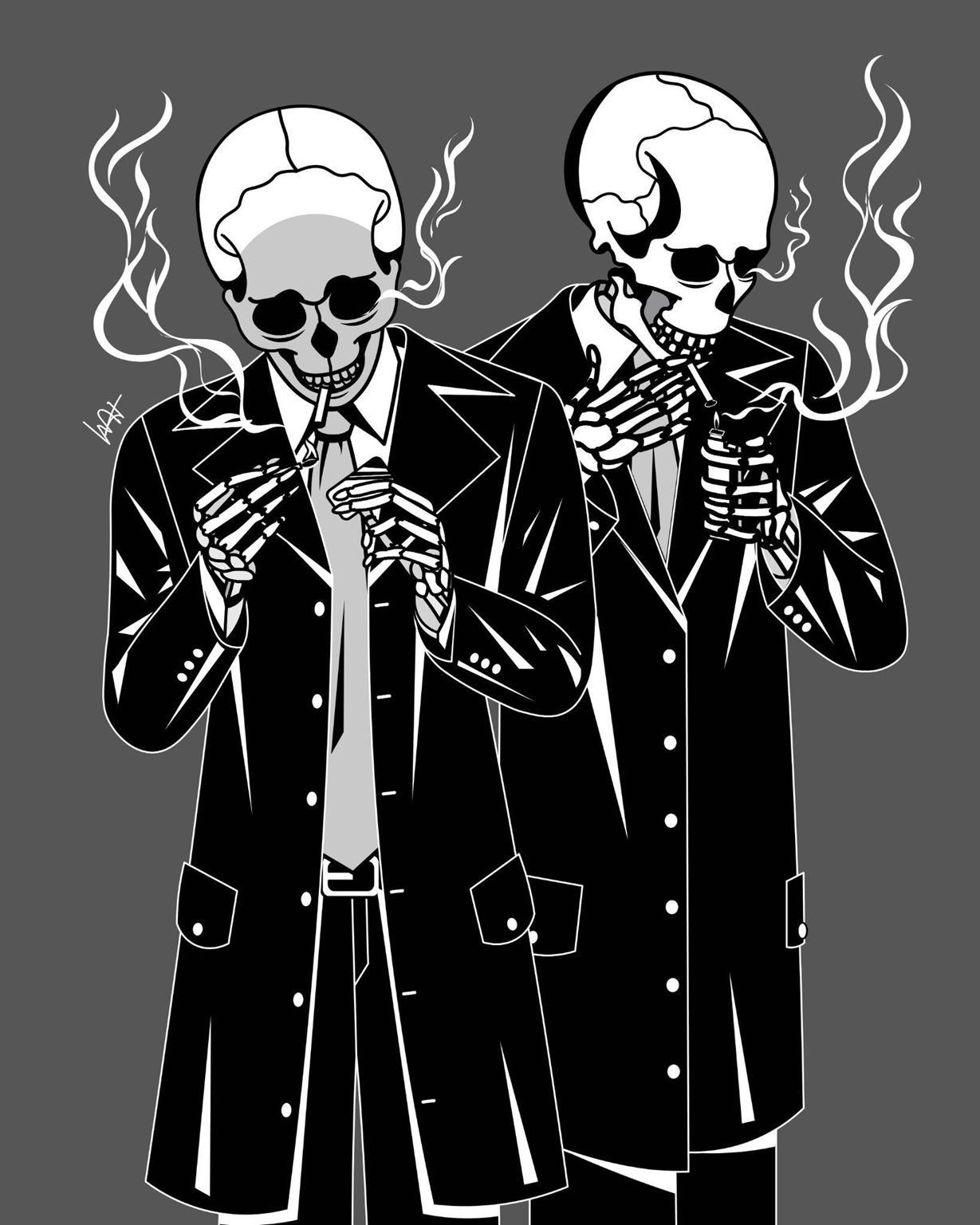
ARTWORK
CANYON VOICES | SPRING 2023
| d
Shamble and Smoke
igital
Fade to Black and Begin Again
By Brooklyn Smith
The people shuffle around the house, eyes hollow, faces worried, puffed out, red, so red, but they won’t admit why. They don’t need to say anything. They all know it. They all know it, and it hurts them, a knife to the heart, twisting, twisting deeper, every time they think. They try not to.
It’s time. She is old. She is suffering. We’ll go tomorrow, as a family. As a ... family. And the girl, the smallest one, she sits at the dinner table and looks into space because she can’t do anything else, can’t think to do anything else, can’t make her body move or else she will cry. She knows she will cry. Her mother sits, looking, worrying, thinking about her daughter and thinking about her dog. Because the dog isn’t the mother’s dog, or the father’s, or the brother’s, or the older sister’s, or the youngest one’s either. The dog is all of theirs, and the dog is dying. Right in front of their eyes.
Are you okay? A hand is placed on top of hers, and she falls apart, the young girl who suddenly remembers everything. Walking the dog in the desert, cuddling the dog during thunderstorms, petting the dog after a long day, feeding the dog, and seeing her eyes light up at the same old thing. And she remembers her father laying on the couch with the dog, her brother naming the dog, her mother sleeping next to the dog, her sister sneaking treats to the dog. We love the dog more than we know how to love ourselves. The dog is ours. All of ours.
Tomorrow, we go. Tomorrow, we say goodbye. Tomorrow, we cry and we hold each other and
we wonder, wonder what life would be like if we didn’t have to. They glance at each other and look down again. They let their tears fall without a sound. Tomorrow, we go. But today, we still have today. The youngest girl, she looks up, hands clasped tight, folded finger over finger, held to her chest - God oh God please give us one more night. I don’t ask you for anything. I don’t pray like I used to. I don’t believe like I used to. But God oh God, a night is all I want. A night, and I’ll know you’re out there. I’ll know you’re listening. It feels like she is begging at the knees of nothingness.
You build a home in something fragile that doesn’t feel fragile at all. It feels strong, sturdy. You build a home in something that is unwavering, in something that doesn’t know anything but love and joy. You build a home in something that is paper thin, something that drops off like a cliff and you don’t know, you don’t know but you know something is wrong, and Dad, something is wrong, Mom, something is wrong, Sister, Brother, something, something, SOMETHING IS WRONG. You build a home in something broken that can’t ever be fixed.
There is a rise and fall, a shudder, in and out, in but never out again because it is over for the dog, the suffering is done and it is allowed to let go, but for the family, the suffering has just begun. The mother and the son, they bear witness to the moment, the moment when the light goes out and all they see is the dog but the dog is in darkness and the dog isn’t breathing anymore. All they can do is look at each other
CREATIVE NONFICTION | BROOKLYN SMITH CANYON VOICES | SPRING 2023
and not know what to think, if it is a blessing to be with the dog in that last moment or to be haunted forever, haunted by the memory of watching something so beautiful, something so perfect, something that you love with everything in you and you don’t know how to live without its presence, to watch it end. Call for your sister and your father, call for the youngest one. It will hurt. They know it will hurt. But ignorance can’t be bliss when the grim reaper is in your house, wiping your tears with a scythe. Call for them. Tell them with your broken words and your broken voice and your broken heart what has happened. Watch them never be the same again.
Outside, it is dark. The stars are up above, twinkling on a cool night, so rare and beautiful that the neighbors must gather outside and sit around and laugh about nothing and everything. Miles away, the Lyrid meteors rain down, and a young couple hold hands in a distant field and let themselves fall to the grass, savoring the stillness, entranced in light and remarkable brilliance. The constellations Hercules and Lyra wink at each other, wrapped in a blanket of stardust and the soundless void of space. Jupiter and Saturn and Mars and Venus shed their light through the family’s
grand window. But even such a night, such a peaceful quiet, could not end their pain. Loud sobs are all the youngest knows, through the evening, through the morning. Please, she whispers into her pillow. Make it stop. She shuts out the stars and the planets and the beauty that she loves, that surrounds her. You, she says. You took her away from me. I asked you, I asked you even though I never ask for anything, and you took her away from me. But you didn’t just take her from me. You took her from everyone. She watches her life fade to black. No purpose. No point.
She stays angry, spiteful, for many days. A broken heart is an open wound, leaking out all of the desire and the joy, all of the smiles and the laughter, tainting all of the memories until you’re not sure of anything anymore. She must stay angry for many days, months even, before she is ready to let herself heal. But, when she is ready, the youngest girl lays herself back onto the earth and stares at the sky and another dog comes and sits on her lap and looks up at her. What comes next isn’t hard. She knows what decision to make, that some pains are worth enduring. And she loves the dog with the same intense devotion as the last.
For more information on author Brooklyn Smith, please visit our Contributors Page.
CREATIVE NONFICTION | BROOKLYN SMITH CANYON VOICES | SPRING 2023
n n n
Munchbud Ink

ARTWORK
CANYON VOICES | SPRING 2023 Newtwoman | digital
Blankets
By Pradhyumn Pradeep
The dingy smell of the dusty apartment heater and the dry sweaty blanket returns as I slowly come back to life. The comforter is all pilled; I’m not sure how to fix it, its dryness scraping against me and irritating my skin. The mattress is a perfect rectangular brick; it hosts me every night and keeps me asleep. It’s enough. My singular green blanket, though uninviting, keeps me warm. A small window illuminates the whole room. The color of this chamber is ... odd, to say the least. Is it gray or white? Possibly both? The sight I first see is the dim popcorn ceiling illuminated by faint gray light. I have only a solitary floor lamp (the bulb doesn’t work anymore ... might have to replace it soon). I can hear the air condenser units drone from outside; my nose is all dry now (too much heat overnight). I don’t want to lift my head and look at that lonely window sitting at the south wall. The vertical blinds make their ritual slip-tap-sssslip-tap sound as the air from the heater gently sways them. Young rays of light try pushing through the occasional gaps in the panels. They fail to vivify my prison. Ah, not prison. After busy work days and long hours of restless labor, I find myself somehow excited to return to this hell I call home. To return to my brick on the carpet, to retreat back underneath the green shell.
So I want a new bed. My mattress is so firm and hardy; it was only made to last. There is nothing organic about it; there’s no love at all. It keeps me comfortable at night and allows my body to rest perfectly. Carefully made part by part by all sorts of different machines, not one single human finger was ever laid on the mattress
during its creation. The bed serves its purpose, of course; it holds my weary bones in place the way I left them, it keeps the bugs on the carpet below from crawling up to my resting body, and it traps the heat I gather by using my blanket. But it smells like its factory, its birthplace. Everything it does is correct. It was sold as the quintessential mattress for the average occupied single man: amazing to keep a healthy body free of pain, effective at maintaining and regulating body temperature, and perfect for adolescents and their late-night lust. I am convinced that it has served its purposes well. Just not satisfied by its boring character.
I also want a new blanket. It’s green and cardboard-like now, ruined to the point of unsettlement. Giving credit where it’s due, it generously offers the gift of warmth at night, though uncomfortably so. But it, like the mattress reeks of the machine it was made in. It suffocates me more than the smell of static heater-warmth in the room. It drowns me in its laziness.
The lethargy that flows through my blood leads my monkey mind to stray away to dreamland. I let my sleepy thoughts dissolve and run loose in my veins; they intoxicate me like a downer. I lie still and sink into the brick as I travel back to India
Well, I can’t sleep any longer – Grandma and Aunt and Mom are in the kitchen banging pots and pans against metal stoves. Grandpa is nearby, shredding coconuts on that little stool with the blade sticking out of it. These sounds
CREATIVE NONFICTION | PRADHYUUMN PRADEEP CANYON VOICES | SPRING 2023
are unmistakable. Crows cawing outside. Scooters and motorcycles making whirring noises as they traverse the dirt street below our house. Violent gangs of stray dogs are fighting as always, barking at each other ruthlessly. Must be fighting over roadside garbage again, they don’t fight over anything but what they need. These dogs are like men.
My bedroom’s thin pink curtains are wide open to let in light (as if they ever blocked out light in the first place, completely useless: solely for oriental purposes). Warm rays of sunshine rush in like water and gently kiss my milk skin. Its golden flourishes are like gifts from God. I look out the window with those intricate round bar patterns (Muslim architectural influence; probably why it’s so pretty).
So many trees out the open window... look how the dark green leaves sway gently in the breeze. There’s so many telephone cables twisting through them, spiraling amongst themselves, all tangled up and messy. There could be a hundred of them- can’t count correctly. Crows often get caught in the webs and get electrocuted. They fall to the ground, dead, and serve as a stray cat’s lunch. Kids climb all the nearby trees to find and eat the crow’s eggs.
What’s that smell? It’s unique to India. The smell of smog and dust- pollution? Or the unnamed smell which appears after rain?
Smells of ghosts and ugetsu? Incense from the prayer room (or maybe a nearby temple)? I’ve never smelled that smell in any other country- it is the smell of home.
The walls are a bland color of yellow. It complements the salmon tiles and dark brown shelves. Everything looks so... elderly. The artistic flair of the antiquated room feels authoritative but inviting. Grandpa built this
house when he was younger; he built it with Grandma after their marriage. Ages ago. Why does the room just feel like it has responsibility? The Great Wall holds no competition with these brick, inexpensive walls. “Any wall is great if the roof doesn’t fall.” But these walls are like living things. They stand there and shift around us inhabitants, like a warm hug.
However, they only exist to hold us in a place that we can call home. All the plentiful windows here are open (for light) and let in bugs that buzz about everywhere in the air bearing the business of a philosopher. Where are they all going so hurriedly? What kind of work do they have?
Warmth. I am having a love affair with this warmth. The mattress I lay on is hard and uneven, but it supports me. I might as well sleep on wood- wouldn’t be much of a difference. But it’s a loving cushion and is just... warm. It’s like this home, a gentle adobe in the middle of a crowded and busy world. Rests here the product of likely a hundred or more workers’ sweat and toil. Thousands of foreign fingerprints have been laid on these uncomfortable fibers and springs. So, what if the mattress isn’t comfortable? An aura of love sways about it. It lives beneath me, and embraces me.
I don’t want a new blanket, even though this one is too small. My feet poke out the other side, and it has the texture of an old newspaper. It was likely made artisanally by some old grandma on the roadside, selling her blankets for cheaper than ever in the 80’s when my own grandma was young and buying furniture for the house she and her husband built. This dusty blanket engulfs me with its warm passion. I love it too much, and I don’t want to let it go.
CREATIVE NONFICTION | PRADHYUUMN PRADEEP CANYON VOICES | SPRING 2023
I want these hazy memories to cling on to me like that unique smell of my true home.
All dreams end. With a blink of an eye, my morning hallucinations fade like a sedative dies off into nothingness. Once again, I am found in the center of my lonely holm, surrounded by a smug lake of memoirs of distant asylum and electronic heat. I have woken up in a perfect world; dogs aren’t shouting outside, the sounds of big vehicles are all hidden away in the distance, and my blanket is soft and perfect. Everything here is accurately measured and formulated; every angle and corner of this bedroom has been carefully calculated by its engineers, the heat given by the AC was meticulously premeasured, and the walls have been constructed carefully to mute all sounds of the outside world. My mind dances not with joy; on the contrary, he squirms around drowsily with no interest in waking up. Dreams are exciting, so he’d rather sleep than stay awake.
A warm connoisseur of grief sweeps across my sordid faces. Another one follows from the other eye. The loneliness here has seared my skin of its joy; in its place, it has injected the drug of nostalgia within me. These drugs are
poison ruining my blood, but as much as I try to, I cannot high the sense away; it leeches me from the inside like a parasite, feeding away at my life and happiness. I want that small blanket from the grandma sewing away by the roadside. I want to hear the dogs argue again. I want to hear my grandpa shredding coconuts in the kitchen. The memories are just drugs now, so all I can do is feel the high for as long as possible. It becomes less effective over time.
It seems that I seriously want to go back to that perfectly imperfect bedroom from my distant youth. I was too careless back then; I should have savored the uncomfortable comfort while I experienced it. My dreams cling on to me like a spirit that possesses the soul without its knowledge. I shake off the deadly slumber, but my heart still throbs with longing, beating that odd and painful rhythm that I have now gotten accustomed to.
Well, no more staying in bed. I’ll get up and take a shower and go start another day. Go start another one of thousands of days like these yet to come. Time to live (gotta put away my blanket). Tsk, it’s already 7:32. n n n
For more information on author Pradhyumn Pradeep, please visit our Contributors Page.
CREATIVE NONFICTION | PRADHYUUMN PRADEEP CANYON VOICES | SPRING 2023
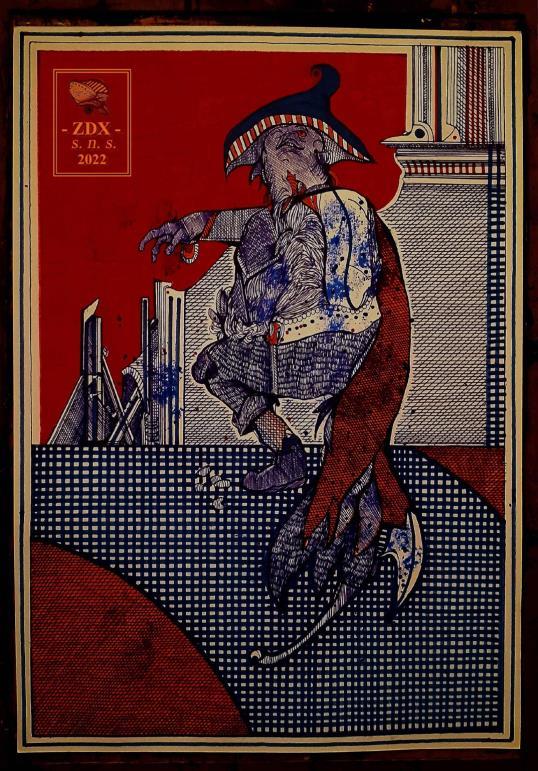
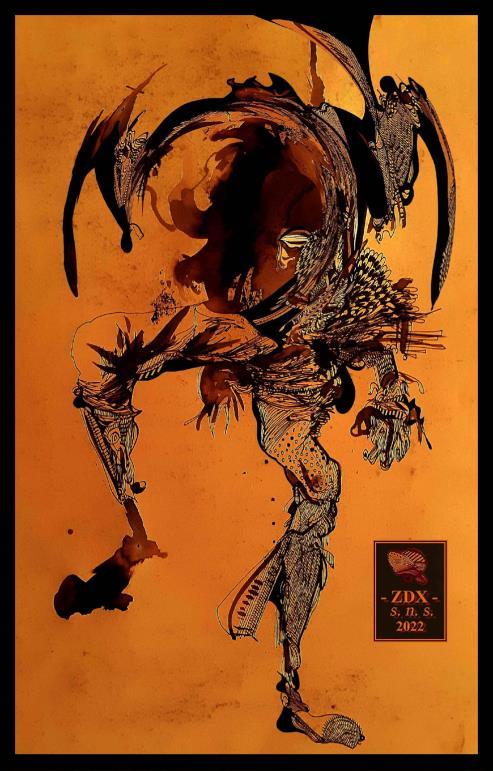


ARTWORK
CANYON VOICES | SPRING 2023
ZDX
Al Dominado | Mixed media
Indirect Skeleton | Mixed media Out Of That School! | Mixed media
News – A New Street | Mixed media
Kintsugi
By Anna Steig
Most people understand seasonal depression to primarily be a winter disease: the creeping, hollow sinking of a settling emptiness in the chest and a tenacious wheeze that weaves its way inside the lungs, worsening when the sun begins to fade, when the leaves have wilted off the oaks, when the faint dusting of snow is enough to cripple the skittering life of a forest. When the tulips in the garden finally shed their crusty petals and shrivel back down into the mulch and when the winter frocks are unearthed from the abyssal depth of the closet. That is the start of seasonal depression and we can thank the Lord and all things holy that it has an end.
But why can’t I stop weeping even when the sun finally rears its beaming head?
Why does the sudden change in temperature, ranging from mild fifties to borderline sweltering mid Atlantic seventies, force me into the shadows? Moments before I had been lying face up amid the snow drifts and was giggling at the icy chills which had gone tingling down my spine. That is my wonderland; that is my paradise. So while others strip into coconut bikinis and drag out their hibernating happiness, it feels as though a rain cloud is cast overtop my ever shortening shadow and, suddenly, there is no escape.
Even from the insulated safety of my bedroom, all turquoise lace, vinyl records, and stained stuffed animals, the sun
infiltrates like a creeping ivy vine. It crawls up my walls, surrounds the property, and cannot be tamed. Blackout curtains could not save me: even through their ultra thick fabric, the white heat seeps in through my decrepit window frame and slowly poisons the covers under which I hide. If I retreat into the basement, I’ll be assailed by memories. Once upon a time I used to make love down there, bouncing on the dust coated couch sending cobwebs up in the air, ignoring the odor of the kittens’ litter box positioned not even ten feet away. Sometimes, it was magical.
As I sit now cross legged upon my slouching mattress, idly sifting through the wrinkled pages of a well-loved book and, listening to the ambience of my mother digging through the Tupperware drawer downstairs, I am reminded vividly of a scene from my childhood. It was a moment which I consider to be the turning point for my belief in the beauty of summer, a true moment which would live with me forever, though my younger self could not comprehend such an event.
On that stage of memory, set circa seven years inside the past, the backdrop has been painted especially poorly: none of the stagehands or the visiting artists cared much at all for the material, so the pallets were left mostly unfinished, except for haphazard splotches of umber, yellow, gray, and purple. The burnt sepia haze of summer drifts throughout the air, washing the setting in the
CREATIVE NONFICTION | ANNA STEIG CANYON VOICES | SPRING 2023
vibrant nostalgia of a younger suburb, an idyl of a place. Trudging into the dazzling yellow glow of the spotlight is a young girl with haystack hair and forearms infested with eczema - it sizzles her skin to a crispy texture not unlike sandpaper, and looks like a disease. But the rest of her body is milky as the moon stays impervious to even the slightest of June tans. She wears paint splattered Bermuda shorts and a graphic tee reminiscent of a 2008 tween show that nobody can ever remember the name of, even as hard as they might try.
The young lead’s face is scrunched up, her smile is fake as she tries again and again to make it look real, and the heat of the evening is settling underneath her flaring skin. She has just entered from another scene in which she had been sweeping the loose piles of verdant grass from a freshly mowed lawn off of the concrete patio; the audience can actually smell the inimitable aroma of green leaf volatiles wafting through the hazy world. The girl had not actually wanted to leave the comfort of her bedroom and bare the outdoors just to do some menial chore, it's not as if her parents would have forced her, either way, she has already adopted an intrinsic sense of guilt from somewhere shallow and unknown. Deep, laid, guilt, guilt not for being an aimless child but for just existing. She lay on the bed devouring fanfiction online while the outside world ran amok and frolicked in the shimmering sun, the girl would let herself be terrorized with invasive thoughts. She would sit there, astonished, and wonder “Why aren’t I out there having fun?”. She began to ask herself “Will I have any happy memories to look back
on when I’m older, am I spoiling my childhood?”.
To be so painfully self-aware at such a young age can be nothing but a curse. What child spends her time feeling sorry for her future self? While the other children flew kites and dreamed of outer space and envisioned stadiums of cheering fans, she, no, I, sat alone, hating myself for my own despicably unremarkable existence.
And so it began, a young girl’s eternal quest to give her life some substance. To enjoy a moment without longing for another; to breathe the air and appreciate it for purely what it is: a life force, underwhelmed. Serpentine was her journey, marked by constant failures within infinite categories. Years passed as she tried fruitlessly to bond with her father, a man who made similar attempts until ultimately giving up, and so she spent countless summers laboring inside the sweltering garage. She learned to weld, change oil, tinker with transmissions, change tires, break invaluable bolts off vintage cars, and curse out loud. She spent the milder evenings walking in an infinity loop around the neighborhood, trudging up the hills and searching for friends that would never come out to play; she sped recklessly on her bike and did not watch the driveways, did not notice when her tire began to hiss air, because she was too busy manifesting dreams of something else, something unknown. It was something that was vaguely intangible, yet it felt recognizable, like a place that was naturally a feeling. But with whom? And
CREATIVE NONFICTION | ANNA STEIG CANYON VOICES | SPRING 2023
where? Most importantly, when? These were the questions to which no one could answer; paradise was never going to meet that little girl where she stood, and the distance between her and supposed happiness felt immeasurable. Summer was never going to swell, the tiger lilies were never going to bloom, and the warmth of the sun was never going to mean anything but pain. Until, of course, it didn’t.
broken once again. My hopes had been lifted, crushed, and lifted once again with friends who had ebbed and flowed, few with notable loyalty, far more without. One of the only constants in my young life then had been my faithful longing for more. Belief that this “more” existed, yet it wavered, yes, but my desire for it did not. Other people talked about it all the time, an inhuman sensation, lying in wait just beyond the horizon, a taste you could not comprehend until it touched your tongue.
Five years later, and the world had turned. The seasons had ebbed and flowed in all their typical anticlimactic beauty, and I, that miserable little blondie, had yet to embrace the cycle, and had yet to long for anything but the safety of the cold.
Summer died a slow death in 2019, but once again the sun was slipping beneath the impenetrable cloud cover, the leaves were wilting off their branches, the early October chill was permeating the atmosphere. Undeniably, autumn was descending over the Appalachian foothills of Western Maryland. I felt it that year before anyone else, one harsh breath of ice inside my lungs, a trickle of goosebumps at the zenith of the day, a fresh swath of glittering dew on the morning grass before school. Autumn, while not being the exact respite I sought, was still exhilarating, because it was relatively close to winter, the steady march of the months drags on, and I sit here and wonder.
The years which had elapsed were standard by the expectations of a teenage girl and my fragile heart had been broken, mended, and
What I had been searching for, of course, was happiness, unadulterated. High school had absolutely not raised this brand of happiness and I cannot imagine it does that for anyone. A potent combination of toxic relationships and contagious ennui, high school was little more than a four year illness. But, like the girl sweeping blades of grass off the patio to the hum of cicadas, gazing up to the sky and squinting against the harshness of the sun, I was making an effort.
Joining the marching band was easy because it was a lasting habit from middle school. Each year come autumn I would don my scratchy red uniform, ingrain pages upon pages of swimming black music notes, take all the bullshit with a tight lipped grin, and yet, I still managed to keep my head up even when the crowd at every single football game talked over our show.
Marching band was the one thing I was truly good at, probably because of the unfailing discipline I practiced. I loved to put on shows. Nothing was more gratifying than donning a veneer of confidence, of talent, of raw passion, when in truth all I had was just a
CREATIVE NONFICTION | ANNA STEIG CANYON VOICES | SPRING 2023
sliver of it all. Still, it got me most everything I wanted. But when that facade soon diminished from years of exercising it, I suppose, it turned into a glimmering reality, I seized the opportunity, and as my junior year approached I auditioned for the highest position of student leadership in the band, drum major.
Obviously, I got the role.
I would rehearse day and night, and I never passed a mirror without pausing to study my conducting patterns, never stopped obsessing over scores and dot sheets and making sure I had five times the amount of supplies one person would need for band camp so that it would be impossible for anyone to go without. This became my reason to wake up in the morning. And god damn, did it feel good.
Eventually, the weather churned and turned sour, slate clouds overwhelmed the sky and burst over the stadium field, blowing away all the mushy leaves, and bringing in biting winds that could threaten snow but would, ultimately, never deliver. The complete culmination of autumn just so happened to land that year on a perfect day: the Showcase of Bands.
The Showcase of Bands was an annual county tradition, always falling on a Tuesday, always hosted by the school across town due to its larger parking lot, which could easily welcome in the seven small bands of the county. The performances were mostly catered to ecstatic parents and smug alumni, the latter of which would be reminiscing on their own golden days the entire night.
Leading up to our performance I realized that we were the second to last group scheduled to take the field. The entire band, a crimson swarming sea, was buzzing with anxiety with underclassmen fidgeting with sizzling nerves, and the upperclassmen simultaneously lamented and celebrated this beginning of the end.
Meanwhile, rushing around trying desperately to get everything in order, I felt something start to stir. It began as a simmer, jumping down the steep steps of the school bus and feeling the cruel asphalt slap against the soles of my Dinkles. I whipped around like a tiny blonde tornado, fiddling with shako straps and checking black, glittering plumes, oiling an instrument key when suddenly there was that feeling again, not quite describable, yet totally tangible. It began to boil inside, the bubbles rising in my chest, and swell up like the tides. Marching in pin straight lines and gate turn curves as the sun dipped below the honey saturated skyline of low rise apartments in the distance, glowing in the haze of parking lot fluorescence and the milky moon, I felt a firecracker light and spark in the hollow of my throat as I led the Hub band toward the field, eyes with pride, unfaltering. Not everyone who marched behind me then could say that they were happy for me or for what I had accomplished, or even that they knew what it meant, but the only thoughts that mattered under the gaze of a two hundred strong crowd, my first ever packed stadium, were my own. The sensation that something had shattered, that something had burst and miraculously fell into all the right places, it was harmonious inside my heart. And yes, it is true that that wasn’t the work of
CREATIVE NONFICTION | ANNA STEIG CANYON VOICES | SPRING 2023
just one moment, rather the labor of years, but that night atop the podium, wielding the power of myself like never before, that felt like the culmination of a lifetime of waiting. All the patience, courage, practice and perseverance, from the bedroom to the patio to the halls of endless schools and finally to that green field, that gray podium under an onyx sky, that was the making of something great.
To experience that inimitable exhilaration floating around in the October air, listening to distant shouts of support and pride, that was the final healing of something deeply broken. The scattered shards of glass that lingered inside that yellow haired girl’s empty chest had suddenly been rearranged, only to be
pasted back together in a bond that was stronger than ever before. Maybe this one would last.
And it occurred to me as I marched off the field that night, glancing back once more at the early harvest moon, that this was the same sky I had looked at six years prior, the same earth, the same seasons, and the same girl, but this time, what had once been gray had then turned golden.
Author Note: Kintsugi is the Japanese art of repairing broken pottery using gold lacquer, producing an object more beautiful than it had been before.
For more information on author Anna Steig please visit our Contributors Page.
CREATIVE NONFICTION | ANNA STEIG CANYON VOICES | SPRING 2023
n
n n
Natallia Valiekevich
What does she see? | watercolor
| SPRING 2023
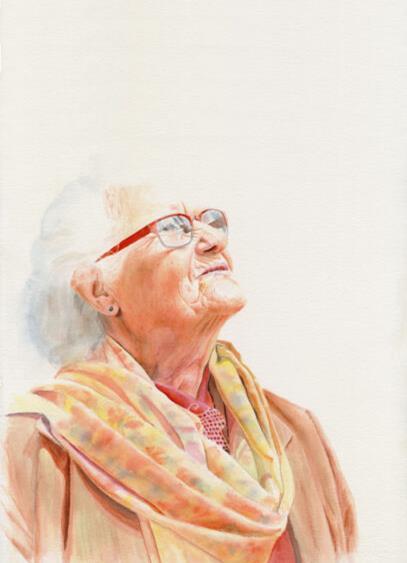
ARTWORK
CANYON VOICES
tear seared frying pan for Maria
By Abi Diaz
I’m gonna cook foods that remind me of my abuela the echoes of her laughter a sizzle of plantains hitting oil
the sound of her hum
a knife’s satisfying chop
I’m gonna spice cauliflower
(a vegetarian’s replacement for pork) and rice with bright orange achiote seed oil and briny green olives with red centers and green chiles and tawny gandules
skin chartreuse tomatillos and soak black beans
add their blue black softened bodies to seared onions and garlic
stir season to taste
flatten golden twice fried tostones
salt them
As she once did take a spoon, taste her love only onion fume tears, I swear cool smooth salsa verde cut into the orange dyed cauliflower turn off the arroz con gandules’ burner
I’ll cover your plate with the rainbow foods of my abuela’s ghost
For more information on author Abi Diaz, please visit our Contributors Page.
POETRY | ABI DIAZ CANYON VOICES |SPRING 2023
n n n
Chris Hall

ARTWORK
CANYON VOICES | SPRING 2023
Papago Park | photography
Desert Story
By Wade Sharp
There was always fire around to play with. Zippos, Bic lighters, blow torches, a propane tank that cranked the jimmyrigged heat lamp, the deafening internal combustion of the enormous diesel generator that powered our little kingdom. Whenever I think about that place I think about fire. Fire and garbage. The place was surrounded by a four-foot-high moat of detritus. The toilet didn’t flush so we would shit outside, right on the perimeter of the property, wipe our ass, and throw the used toilet paper at the desiccated ground. The flies were abounded. The smell of dirt and miasma rose to form an invisible noxious cloud of third world pestilence that hung over us, and we took pride in our cloud.
The nucleus of everything was a dilapidated old house, the family’s joy. They had earned the dwelling by tactfully squatting in it for two years. Parked around it were three R. V’s, two tiny campers from the 50’s or 60’s that were filled with antique junk, and one fifth wheel which is where my girlfriend, her parents, and I all stayed together.
We were situated in the sticks of a vast desert plane on the outskirts of Surprise, AZ. We were tweaked out of our minds in the absolute darkness, surrounded by shit and flies, constantly playing with fire.
At night, when we didn’t have any diesel to crank up the generator, it would get so dark that you could see the lights on the edge of Wittman.
I would sit there on the fold-step of the fifth wheel and watch them, and when I was really tweaked, it looked like the distant glowing dots were slowly creeping towards us from all sides, like a gang of post-apocalyptic marauders coming to siege our little piece of wasteland.
There were shadow people too.
If it was good G, I would hit a shot and cough the taste of ether. A week would go by in an hour, foodless, and sleepless. If I didn’t have any black, I’d have to strain to shut my eyelids, then I would shake my head to Etch-a-sketch the shadow people out of my mind. Just when I’d finally force my eyes shut, just when the shadow people finally let me be, my girl would prod me awake and say, “Dad’s going on a mission. You gotta’ go help.” And I’d say, “Fire up the bongwater.”
We’d smoke meth through the same bongwater for days because when we would inexorably run out of dope, we could light the blow torch and boil the thick meth-infused water down to a resin, the way you caramelize sugar, and then we could smoke on that to conjure up sufficient stimulation to go hit a lick. My girl would perform this task for me while I dawned my all black larping suit. It was like her way of packing me lunch before I went off to work.
Her dad, whose real name was Greg, liked to go by the moniker, Peacekeeper. He told us all kinds of stories about how he got the nickname. He told us that he used to own a
FICTION | WADE SHARP CANYON VOICES | SPRING 2023
biker bar in Wickenburg, and that he’d “earned” the name by keeping the peace between Red and White and The Hells Angels. But this story would change little by little, skewed by more grandiosity each time. He had this scar on the bridge of his big, bumpy, swollen nose, which reminded me of a Dill pickle, and at first, he said the scar was from when somebody bashed him in the face with a full bottle of Jack Daniels, then he said it was a bullet graze, and then it was from the forward thrust of a machete. It was all bullshit. One day he’d decided, “I think I want people to call me, Peacekeeper.” He’d given himself the nickname. Simple as that. However, he was 6’2 with a boulder-like skull that could strike nails into a four-by-four, and, he had the long, powerful, arms of an Orangutang, with a balled-up fist that was the size of a thirty pound kettle bell, so I placated him. If any peacekeeping really did happen, then it was between the human that was him and the psychosis in his brain that was slowly infiltrating him at a molecular level and transmogrifying him into something of a shadow himself.
We’d leave the tweaker kingdom on a Polaris Sportsman XP. Peacekeeper hijacked it from God knows where. We’d romp through desert trails at high speed, me riding bitch, no headlights in pitch black midnight. Every now
and then he would cock his head to the right so I could hear his voice and shout, “Hold on, Butter-boy!”, which is what he called me because I was apparently somewhat soft in his opinion. Then he would take his hands off the handlebars and throw two middle-fingers up to the moon and howl like a wild animal. We crashed many times in the desert this way, but he never stopped doing it.
Peacekeeper had the route so well memorized he could ride it with his eyes closed. I’d keep my head on a swivel to make sure we weren’t being followed, but it wasn’t much use to him because I was so paranoid that I always thought we were being followed. I’d look back and see the glowing dots of Wittman, think they were getting closer to us, make Greg stop and look, and he’d smack me on the back of the head for making him feel paranoid.
We would materialize from the desert underbelly and onto the main road, and then we’d make our way to the front gate of a construction site somewhere. The gate would be chained up with a thick master lock, but Peacekeeper could wield a hatchet like a Comanche Indian. In one earth shattering stroke he would strike the lock with the hatchet blade, sending white sparks into the air, and the chain would slither to the ground, defeated.
For more information on author Wade Sharp, please visit our Contributors Page.
FICTION | WADE SHARP CANYON VOICES | SPRING 2023
n n n
Siv Limary

ARTWORK
CANYON VOICES | SPRING 2023
All Roads Lead Home | Photography

ARTWORK
CANYON VOICES | SPRING 2023
Anleka
Spirit
of the Forest | digital
Elvis at Pemberley
By John P. Bray
Characters:
Brelvis (aka Brian James): 17, a young man with large sideburns. He resembles Elvis, if Elvis were awkward/a little odd. He’s more than likely wearing denim.
Erin Bonesteel: 17, a young woman who is wearing Brelvis’s jeans, which are torn at one knee; the tear is covered by a home-made patch of a flower which she has made.
Setting: Present/Brelvis’s backyard somewhere in Generic America (Generica?)
(At rise: we’re in a backyard. Brelvis is attempting to build a small bonfire–just a few logs and a couple of boards of wood he’s haphazardly trying to pile–. For the first moments of the play, the sad smolder is the single source of light on stage. Erin enters. LIGHTS UP.)
ERIN: Hey. Your mom said I’d find you back here.
BRELVIS: Thanks, mom. 'Don’t be cruel to a heart that’s true.'
ERIN: Yeah. I thought what you did at the bonfire tonight was really (trying to find a word that won’t hurt his feelings) brave. Not everyone can sing like Elvis. Not everyone has, like, those hips that, you know (tries to do the hips) like they’re not even attached to your body. It was pretty, you know, pretty, um...well, it was something.
BRELVIS: You know, I don’t even like Elvis. I grew the sideburns to look more Regency. Like, I was going for Colin Firth in Pride and Prejudice but overshot the mark by a few inches.
ERIN: Ah. (Chuckles.)
BRELVIS: I don’t think it’s funny.
ERIN: It’s…kinda funny.
SCRIPTS | JOHN P. BRAY CANYON VOICES | SPRING 2023
BRELVIS: So, when they started calling me Elvis at the start of this year, and then Brelvis – you know, Brian and Elvis – I just went with it. I liked standing out a little bit. But not like…I don’t know.
ERIN: Yeah. (Beat.) I don’t want there to be any weirdness between us...okay? But we need to talk about it. I just...can I help you with your wood or whatever you’re doing there?
BRELVIS: I’m making a small bonfire, Bonesteel.
ERIN: In your yard?
BRELVIS: I’m going to try to erase – no - replace the memory of tonight.
ERIN: You’re making a bonfire in your yard to forget the actual bonfire? How will that help you forget? It seems like doubling down on embarrassment.
(He gives her a devastating look. She backs off.)
BRELVIS: Two months ago, when we were in Heather’s pool, you took my jeans.
ERIN: You gave them to me. You had your swim trunks, I only had my underwear, so.
(He points to her pants.)
BRELVIS: Those are...were...my jeans, right?
ERIN: Oh, yeah! I was hanging out with Heather, like, the day after you asked her to homecoming, and I screamed “these are Brian James’s giant jeans!” It was funny. Funnier if you were there. I don’t know, I didn’t think you’d want them back.
BRELVIS: You didn’t think I’d want my pants back?
ERIN: They had that big tear which I mended (indicates flower patch on knee) and are way too big for you.
BRELVIS: No, they’re size 36.
ERIN: And you’re like a 32.
BRELVIS: I like to size up, Bonesteel.
SCRIPTS | JOHN P. BRAY CANYON VOICES | SPRING 2023
ERIN: That’s not just sizing up, that’s like preparing for a week of Thanksgivings! The only thing bigger than your sideburns are your pants! Do you wanna be known as that guy?
BRELVIS: What guy?
ERIN: I don’t know – Doctor Big Pants? You could be, like, swinging around doing Elvis, and BOOM! Pants on the ground.
BRELVIS: (Beat.) I’m sorry I embarrassed you tonight, Bonesteel.
ERIN: And I’m sorry I embarrassed you. And can you, like, stop calling me by my last name? Just call me Erin. So weird.
BRELVIS: Right. (Beat.) I’ll have a Blue Christmas without you, Erin.
ERIN: What has gotten into you? You kissed my hand!
BRELVIS: And you wiped it off.
ERIN: What did you think I’d do? People were recording you! It’s probably all over the internet.
BRELVIS: Man.
ERIN: You really got into it, too. The song I mean. Heh. One minute you’re standing there looking – I don’t know, pensive? And Mike Bragg is, like, looking domineering over everybody milling about by the fire in his quarterback jersey. And then he shouts 'Hey! Let’s hear a song, Brelvis!,' and then it’s like a switch is flipped! You start doing 'Hound Dog,' dancing your butt off, and ending it on one knee kissing my hand.
BRELVIS: I almost did 'I Can’t Help Falling in Love With You.'
ERIN: (Beat.) Didn’t you just ask Heather to homecoming like two weeks ago?
BRELVIS: She said 'No.' Aren’t you wearing my jeans?
ERIN: I didn’t have a change of...fine, here, here (She starts taking them off.)
BRELVIS: No//
SCRIPTS | JOHN P. BRAY CANYON VOICES | SPRING 2023
ERIN: //you want them?
BRELVIS: //I really don’t!
ERIN: TAKE THEM!
(He takes her hands trying to stop her from unzipping. Note: it is not a violent or gruff movement, and she maybe only gets the button undone.)
BRELVIS: No, I don’t. Just.
(They look at each other. It’s a moment.)
ERIN: This is not a moment.
BRELVIS: No.
(Pause.)
ERIN: You asked out Heather.
BRELVIS: You keep saying.
ERIN: I thought you liked her.
BRELVIS: I did. Kind of.
ERIN: Okay, so?
BRELVIS: I like you.
ERIN: …
BRELVIS: (Quickly.) You told me to ask out Heather! You told me, you told me she liked me–and, and, and–I should ask her out because everyone was going to homecoming, and I took that as a sign that you weren’t interested.
ERIN: I’m not.
BRELVIS: Okay. And you were, like, wayyyy off about her liking me. Just a little, FYI.
ERIN: Sorry. I thought she did. (Beat.) But it still bothered me. That you asked her out.
BRELVIS: Why?
SCRIPTS | JOHN P. BRAY CANYON VOICES | SPRING 2023
ERIN: I don’t know. I really don’t know. (Beat.) Sorry she said no.
(Pause.)
BRELVIS: You know that’s all she said. 'No.' We were leaving Mr. Greenman’s class, talking about how no one should have to read The Scarlet Letter, and she’s walking quickly down the E-Wing and I say, 'Heather, wanna be my homecoming date?' And she says, without turning around, 'No.' I stop walking, she keeps going. So. Wayyyy off.
ERIN: I didn’t know it was like that. She just said you asked, and she turned you down. That’s cold. (Beat. The fire has died. They notice. Brelvis looks at it.) Is it okay if we don’t relight a fire?
BRELVIS: Yeah.
ERIN: And don’t you dare start singing 'A hunka hunka burning love.'
BRELVIS: I solemnly swear I was only thinking about it. (Beat.) I do, I did, kind of like her. But I really like you. And I don’t know what that means, either.
ERIN: Good. We’re both confused.
BRELVIS: Yay, us. (Beat.) Thank you. For saying you’re confused. I’m confused, too. This is all...
(searches for word; fails to find one.)
ERIN: Confusing.
BRELVIS: Confusing.
ERIN: Yeah. They don’t tell you that. Like, they tell you that 'Oh, these years will be confusing,' but they don’t give you specifics. The specifics would be nice. Like why you get jealous when your best friend actually asks out the girl you told him to, and why you feel relieved when she says no, and why furthermore you don’t really want to ask him out yourself. It’s selfish.
BRELVIS: Yep. I think it’s supposed to be. Selfish, I mean. Like, why did I ask out Heather when I wanted to ask you out? And why do I kind of like Heather when I really, truly, deeply...like you?
ERIN: Did you like her before she turned you down?
SCRIPTS | JOHN P. BRAY CANYON VOICES | SPRING 2023
BRELVIS: Maybe? Maybe it was when you said she liked me? I don’t know.
ERIN: Yep. Crazy.
(Beat.)
ERIN (Contd.): Okay, here’s what we’ll do. Let’s not go to the homecoming dance. Either of us, I mean. Let’s just, I don’t know. Hang out here. And we can put on like Elvis or something Regency and do those Jane Austen dances. Do you know how to do those?
BRELVIS: I can do the Barley Mow.
ERIN: The what?
BRELVIS: It’s in Episode Two of the Colin Firth Pride and Prejudice when they’re at Mrs. Phillips’s. The tune is called 'Linnen Hall.'
ERIN: Why do you know this?
BRELVIS: The dance goes with the sideburns.
ERIN: Better than Elvis?
BRELVIS: He was all...hips. This is posture, and like, not backing into each other. The dances ooze subtext.
ERIN: Sounds hot.
BRELVIS: I’ll show you. You can come here. (He guides her in front of him. Note: she consents.)
ERIN: And it’s okay I’m confused?
BRELVIS: And it’s okay I’m confused?
ERIN: Yeah. (Beat.) No more kissing my hand like that.
BRELVIS: No. Sorry. I really am.
ERIN: Good. Besides, like...ending with 'you ain’t no friend of mine' and doing that. It was just weird.
SCRIPTS | JOHN P. BRAY CANYON VOICES | SPRING 2023
BRELVIS: Weird.
ERIN: Yeah.
(Pause. Brelvis starts humming 'Linnen Hall.' He looks as if he’s about to move.)
Wait. Bring it up on YouTube. I want to see it. (He gives her a look.)
I learn by watching, okay?
BRELVIS: Okay. (He takes out his phone and finds the clip.) Okay, so, this is what we’re going to do, yeah? And, uh, Erin. (Deep sigh.) You can have my pants. These are Erin Bonesteel’s jeans.
ERIN: Yeah?
BRELVIS: (To the world) THESE ARE ERIN BONESTEEL’S JEANS!
ERIN: What every woman wants to hear. (A beat. They smile. It’s a little awkward. They turn their attention to the phone. They sit close, watching. BLACKOUT. End of play.) ■ ■ ■
For more information on author John P. Bray please visit our Contributors Page.
SCRIPTS | JOHN P. BRAY CANYON VOICES | SPRING 2023
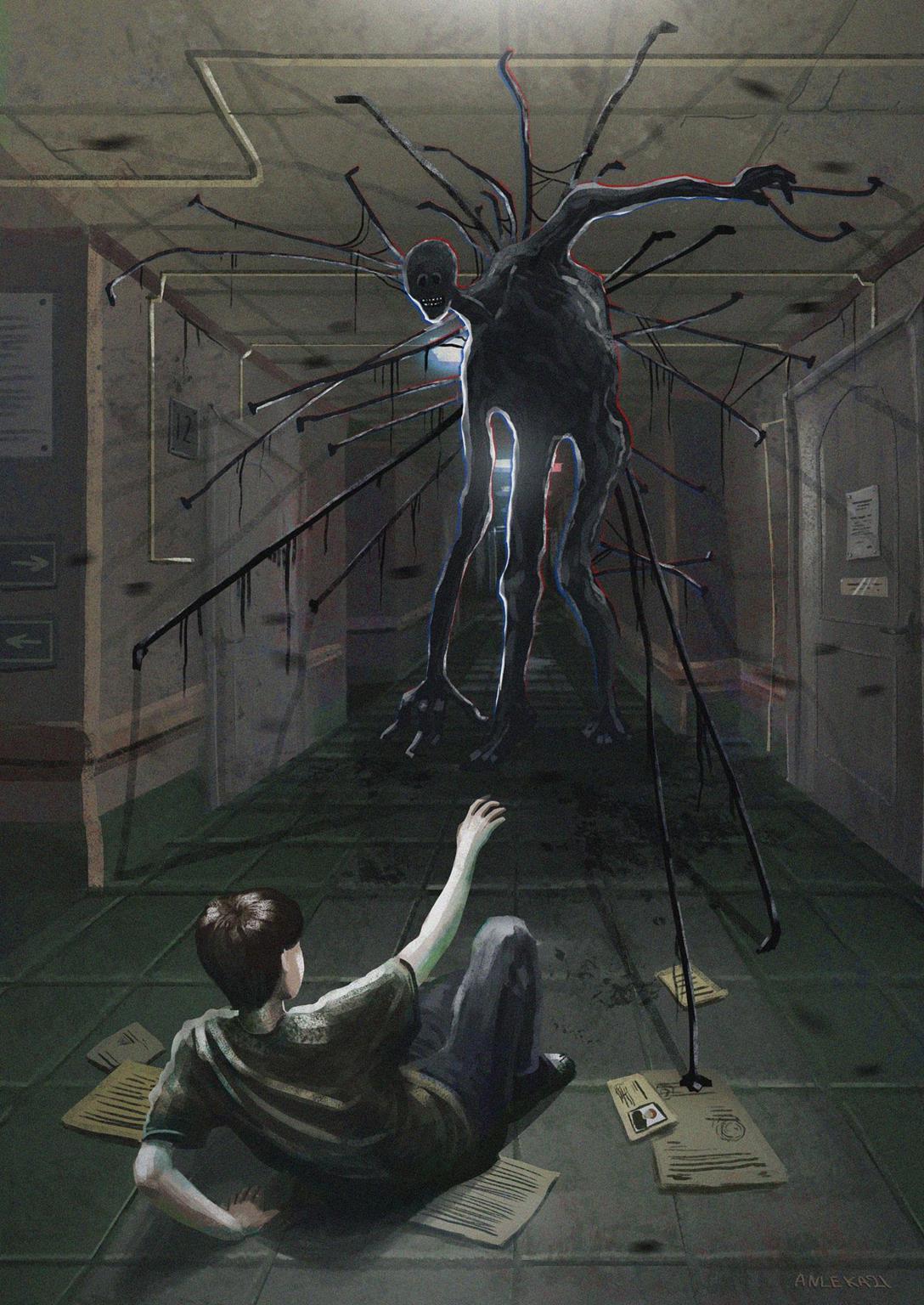
ARTWORK Anleka CANYON VOICES | SPRING 2023
Former Colleague | digital
The Boy Wakes the Man in the Middle of the Night
By Eric Eberwein
Characters:
Zander: Male, to play 16-18. A teen who gives off an adult maturity and intellect, even when silent.
Alex: Male, to play 25-40. Outwardly calm, but inwardly shaky, there is an edge to him in terms of his attire, personality, and personal style.
Sara: Female, to play 25-40. Candid, secure in herself, very goth in terms of personal style, wears a lot of black.
Time/Place/Setting: A small town in Oregon. The present. Two bedrooms. A series of onscreen communications between midnight and dawn.
Scene 1
(A view into a bedroom. Long after midnight. ALEX in bed, sleeping fitfully.)
(A smartphone alarm sounds. ALEX can’t find the phone. Instead, he finds ZANDER, who is holding it.)
(ZANDER cancels the alarm and awakens a nearby computer.)
(We see SARA, on another screen, in another bedroom. SARA seems to be waiting for a Zoom session that isn’t happening.)
(ZANDER looks expectantly at ALEX.)
(Disheveled and troubled, ALEX takes a seat on an office chair, his legs wrapped around the back of it. ZANDER squats on the other side of the chair, puts his hands on ALEX’s shoulders, and looks him in the eye.)
(ALEX lowers his head. ZANDER hugs him.)
(ZANDER looks longingly at the computer screen, and at SARA. Suddenly, SARA is gone.) (ZANDER hugs ALEX again.)
(Lights.)
SCRIPT | ERIC EBERWEIN CANYON VOICES
| SPRING 2023
Scene 2
(A view into the same bedroom. Long after midnight.)
(ZANDER enters and places a smartphone by the computer. An alarm sounds. ALEX awakens and makes his way to the computer. He clicks a couple of links, and then SARA appears in her bedroom.)
ALEX: Hey.
SARA: Hey.
ALEX: I didn’t expect this.
SARA: What?
ALEX: Well – your bedroom.
SARA: Um, two-thirty, where else am I doing this? What’s up?
ALEX: Okay, you know how I told you I was depressed for like – ten years?
SARA: Yes?
ALEX: I’m depressed. Again. Like – like I was back then.
SARA: So, like see-your-therapist-kind-of-depression?
ALEX: Yeah.
SARA: Where’s it coming from? Like, when does it hit you?
ALEX: Well … like, now. Now. I … I shouldn’t feel this way, and I don’t know what’s wrong with me.
(ZANDER is hugging ALEX, like a little brother hugs a big brother.)
SARA: It’s okay. It’s okay to be emotional. Take your time, okay? Take your time.
ALEX: Sometimes I feel like I haven’t really lived. Or been in love, or known what you’re supposed to know when you’re an adult, a fully realized person. I’m an old child, Sara. That’s all I am.
SARA: What the fuck are you talking about? Yeah, right – that wasn’t the reaction you expected. But honestly – where is this coming from? Oh. Ohhh. The move.
ALEX: It’s stupid. I shouldn’t be upset about you moving.
SCRIPT | ERIC EBERWEIN CANYON VOICES
| SPRING 2023
SARA: Well, I can’t just be a barista all my life, okay? Come on. Dude. If someday said to you, you will be a barista all your life – oh, what? – great? – you’d be down with that? No. Yes, I could stay and make coffee on Birch Street, and be twenty forever. I could also grow up, and study, you know, to make more, and actually earn a living, in a profession.
ALEX: Suctioning saliva?
SARA: Yes. Suctioning saliva out of people’s mouths, and putting things in and out of autoclaves. I want to finish what I started. Here? You think I can do it here?
ALEX: It’s just …
SARA: I get it. Don’t, I know what you’re gonna say. I’ll say it for you. Inconvenient. It’s inconvenient for you. Because … you … met me, and … okay. I know you want to be in a relationship with me. I do too, okay – I want to be in a relationship with you.
ALEX: And?
SARA: And if we both do, we can make this work, or if we can’t make it work, you know, it’s six months. And if we really want to be in a relationship with each other, that’ll still be there. So, look, why are you pleading with me? Because, that’s what you’re doing.
ALEX: Because I know how it ends.
(ZANDER retreats from ALEX.)
SARA: Alex. Fuck. Be more optimistic. Babe. Come on.
ALEX: The whole thing about … absence, and you grow fonder … no. It … with me, you know, it’s …
SARA: … Yeah … ? …
ALEX: … It just ends. It ends, you know, it just fades away … and, you know, I have … we have … a chance at something really good here, something great. It shouldn’t end.
SARA: Okay, so why do you think there’s a danger of that? Because I don’t. I mean – don’t you think it would be better, don’t you think I would be less frustrated, if I earned, you know, money? A good wage? And then, you know, if – if what we have just deepens, maybe – maybe we get to the point where … I don’t know … we can, you know, kind of strike out on our own?
ALEX: So … you’ve thought about that.
SARA: Alex. Yes, okay: I have. It’s also two-thirty in the morning. Alex. I really … Alex, I really … I care. Deeply. You know? I care about your health. How you are, mentally. Is my wanting something better for my life … a threat to you?
ALEX: No.
SCRIPT | ERIC EBERWEIN CANYON VOICES | SPRING 2023
SARA: Is it a threat to us?
ALEX: I just know it goes. You’ll go to Portland, you’ll meet someone; it happens. It happened when I was 20, and 25, and 28, and 30. Other … other women, other attempts at, relationships, years ago, eventually … it just ended. It’ll happen again.
SARA: It will not.
ALEX: What? You’ll be here on the weekends?
SARA: Yeah, well some weekends.
ALEX: That drive. Every other weekend.
SARA: Yes. You don’t believe me.
ALEX: I just know how it happens. And I know that there is this, this him –
SARA: – Alex –
ALEX: – This him that will come along – or her – I don’t know
SARA: – My God, don’t you have any – you have that little faith in me? Okay, so you can’t predict the future. Like, I can? We don’t know what we don’t know, you know? So we just have to – Alex, can you just believe in me?
ALEX: Sara, I believe in you so much, I think sometimes like – too much, or something. I think I’m so into you that I’m like, projecting stuff that isn’t real, and, and like sabotaging this whole thing. You’re just gonna remember me as this weight, this thing that got in the way of your life.
SARA: Oh my God, Alex – you are not some fucking thing. You are – you are a good man. Okay? And – you’re pissing me off with this – whole – degradation of yourself. I’m not even sure you know what you’re afraid of. I mean, clearly you’re afraid of something. You better be glad you’ve imagined this whole conversation. What?
ALEX: It’s 2:30 in the morning, and I can’t go back to sleep. Because I’m losing you. And I can’t live with that.
SARA: So when are you going to let me know that? Alex? Hey, Alex?
(ALEX slowly shuts his laptop. ZANDER exits, disappointed. Lights.)
Scene 3
(Another night. Long after midnight. ALEX’s bedroom. ALEX isn’t there, but ZANDER is.)
(A phone alarm sounds. ZANDER awakens. He goes to the computer, unlocks it from sleep, and SARA appears in her bedroom.)
SCRIPT | ERIC EBERWEIN CANYON VOICES | SPRING 2023
–
SARA: Hey. So you still haven’t bothered me to say what you want to say. When are you going to do that?
(ZANDER shrugs.)
SARA: Do you remember when all you had of me was this picture?
(SARA produces a portrait of herself. A picture off social media. Natural. No makeup. She is gorgeous.)
SARA: And we hadn’t seen each other for weeks, and you had a thing for me, and – you were just thinking I’d forget or something, that initial spark between us, it’d go away? It didn’t.
And every day, when you couldn’t see me, when you’d go to the coffeehouse and I wasn’t there, you would just look at this picture, on your phone. And cry. With a little sadness, but also happiness, and – maybe some feelings you couldn’t fully understand.
Right, you haven’t told me that.
You’re not gonna tell me why this picture means so much to you, are you? You don’t have the courage to do that yet.
SARA (cont.): I know you said something about how you used to live off Birch Street. And you tried to kill yourself. ‘Cause … you didn’t think you were capable of loving anyone. I think. That … that something happened, trauma or something, childhood … I think it’s still with you. I think … I think when you were a boy, you loved fully. You loved your mom or – other girls, I don’t know. And then, you put all your trust in someone and got burned, and the boy curled up in a little ball, or … ran home crying, or … and, and just gave way to this man. Who, I think, wants to love fully, but … can’t.
I think you sat there alone in that coffeehouse and looked at this picture of me and cried because … because you were falling in love with me.
And that scared the hell out of you.
Because you had told yourself for so many years not to love anyone.
Not to feel the way you did about love when you were a boy.
Not to feel free.
And now, I’m not gonna be on Birch Street for a long, long time. But not forever. And when I come back, I wanna hold and kiss that boy hidden inside the man.
Alex, what you don’t know is … I love you and the boy inside you very much.
(SARA and the gorgeous picture that she has presented disappear. ZANDER absorbs what she has said for a beat and goes back to bed. Lights.)
SCRIPT | ERIC EBERWEIN CANYON VOICES | SPRING 2023
Scene 4
(Another night. 2:30 a.m. ALEX’s bedroom. ALEX sleeping fitfully.)
(ZANDER enters. He walks over to the bed and tenderly strokes ALEX’s forehead, as a father might to a sleeping son. ALEX stirs and notices ZANDER. ZANDER puts his arm around ALEX and encourages him over to the computer. He sits with ALEX as ALEX unlocks the computer from sleep. SARA appears in her bedroom again.)
SARA: All right.
ALEX: All right what?
SARA: Isn’t this like – the big moment, when you actually Zoom me, and have the courage –
ALEX: – No, no. It’s still two-thirty. It’s another one of those two-thirties.
SARA: Where you rehearse. What’ll you say to me. Someday.
ALEX: Okay, I am rehearsing.
SARA: You’re dreaming again.
ALEX: I have this plan to call you, or – do this –
SARA:
The morning I leave.
ALEX: Yeah.
SARA: Okay, well – I’m guessing this goes one of two ways. You either like, text, call, Zoom, and say, I’m gonna miss you, swinging by your place for a kiss, gotta see you next weekend when you come home, can’t wait. Or. You have this – farewell thing planned out where you wish me luck, but you’re like, distant, just – a friend. Because …because you’ve told yourself that this was just a crush, a feeling – a little lust, little bit of intimacy, and … she’s going, and, it’s all going away, and – it was what it was. What’s it gonna be, Alex? Alex?
ALEX: I’m just gonna say goodbye to you.
SARA: Alex.
ALEX: I know how it ends.
SARA: Why are you like this? Are you afraid to be loved? Are you like – is there like, a feeling within you that tells you, you don’t deserve me? Anyone? Dude. You know what, if you actually say this to me, if you – if you actually … if you actually pull this shit on me, I will get angry. I will just sit here and stare at you and ask you, Alex – why aren’t you in therapy? Why aren’t you seeing someone? Because, you got some bad shit going on inside you. And – you know, it’s time for a giant dump. Okay? To get all that out of you. Do you think that’s a good thing, to tell me this on the morning I go to Portland, do you think it’s actually –
SCRIPT | ERIC EBERWEIN CANYON
VOICES | SPRING 2023
–
(ALEX slams the laptop shut. He retreats from the laptop.
ZANDER looks incredulously at ALEX. A charged beat.)
(ZANDER opens the laptop.
ZANDER begins to type.)
ALEX: Sara.
(pause)
I know it’s 2:30 in the morning.
(pause)
Sara, you’re going away and I hate it.
(pause)
Sara, I need to tell you how much you mean to me. And how … how I fell in love with you, even after … years of telling myself I shouldn’t love anyone anymore. You know on your Instagram, the tagged photos? The first time that you were away all those weeks, and I couldn’t see you? There’s a photo. And, and when I see it …
(ALEX has to walk away.)
(And now, ZANDER speaks.)
(And the gorgeous picture of SARA appears on SARA’s screen, perhaps within a coffeehouse or a street scene that represents “Birch Street.”)
ZANDER: There’s a portrait of your face.
In the depths of the Internet.
Only your face.
It has a hint of God,
And the mysteries,
The stars that beckon mortals.
All this, suddenly, incandescently – in you.
SCRIPT | ERIC EBERWEIN CANYON
VOICES | SPRING 2023
ZANDER (cont.): You engage the camera, No pretense, No makeup.
Simply your inherent grace.
This portrait, so present, immediate, This talisman reflective of better days, This will sustain me in the drifting and the dark. My chronicle of this old bleak street has changed.
Where once I cried and failed and felt like going home, Listless, twenty-four, Owned by doubt, scars, telling myself
That I would never even halfway be a human being, I forward to now,
And these abrupt and joyful tears welling up,
Saying yes – you see?
You can scratch away the past and believe again.
As I walk through this clearest year
And feel the first breeze of summer bless this world, the man I was dies.
I stand in the sun, overcome. All emotion, hope, and sweet release. This rumbling boulevard, this dissonance, This is the place where I tried to grow up, Where I stood naked, damaged, dumb, bereft of love. But as Heraclitus says, you will never stand in the same river twice.
ZANDER (cont.): I stand in this river.
I stand before you.
And I am new.
| SPRING
SCRIPT | ERIC EBERWEIN CANYON VOICES
2023
And the rush of your embrace will lift me out of myself. And I will transcend these encumbered, futile days, And my life will exceed my dreams. And you,
You who know the habits of my heart, You will be all I need.
(ALEX has returned and is holding ZANDER. Lights.)
Scene 5
(Morning. A phone alarm sounds. ALEX wakes and unlocks his computer from sleep. ZANDER edges into the action and watches. SARA appears in her bedroom again.)
SARA: Hey.
ALEX: Hey, um …
SARA: What did you get me up so early for? Are you okay?
ALEX: Sara? Sara, this is what I want to … Sara, I need you. Sara, I … I fucking love you, okay? I love you more than I have loved anyone. You’re going to go, it’s gonna break my heart. But I love you so much I’m not gonna let you go, and get away from me. I know you love me, we’re gonna make this work, okay?
SARA: Okay.
ALEX: We will. I love you.
SARA: I love you, too.
ALEX: I’m coming by your place. Before you go, okay?
SARA: Yeah. Or – or, we could meet on Birch Street. At the coffee house.
ALEX: I’d love that.
SARA: Have you been up all night?
ALEX: Yeah.
SCRIPT | ERIC EBERWEIN CANYON VOICES | SPRING 2023
SARA: Well, um – guess what. I’ve only gotten about an hour of sleep myself, so …
ALEX: What do you know.
SARA: Just … big day, big move. Emotions.
ALEX: Sara, you know what?
SARA: Yes?
ALEX: I found myself again.
(ZANDER hugs ALEX.)
SARA: You did, huh? Okay, well – over, you know, a cold brew and a scone, okay, you can tell me what that means.
ALEX: I’ll tell you more. I can’t wait.
(pause)
Sara – Sara, I’m not crazy.
SARA: I know you’re not.
ALEX: I’m just – I’m in love.
(The play ends.)
SCRIPT | ERIC EBERWEIN CANYON VOICES | SPRING 2023
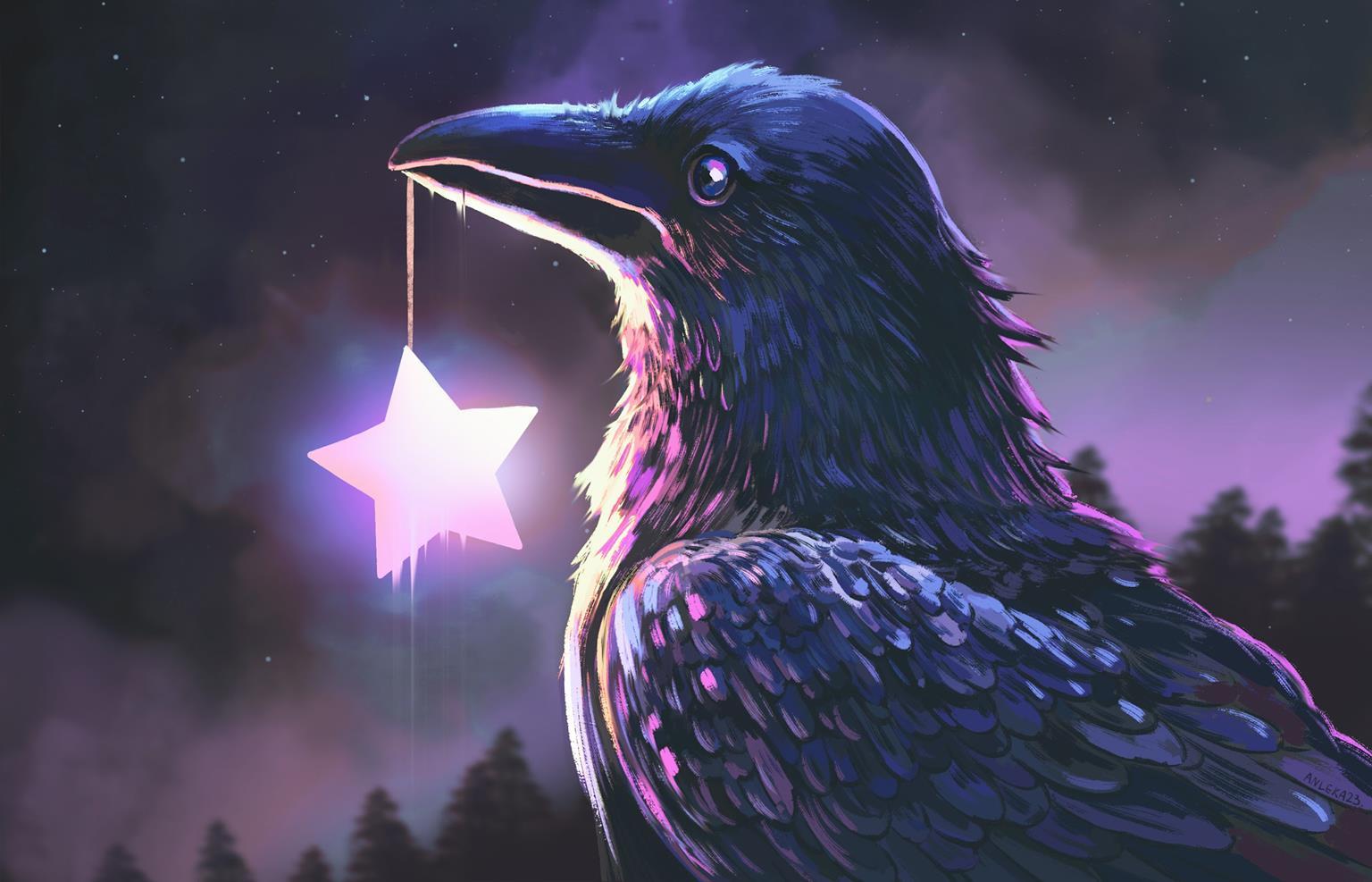
ARTWORK
CANYON VOICES | SPRING 2023
Anleka
Starcatcher | Digital
Poetry and Hope
With Pacella Chukwuma Eke
How long have you been writing poetry? What drew you to it in the first place?
I have been writing for roughly three years now. The thing that made me so curious and interested in poetry was my Creative Writing teacher’s flair for the art. He would go on and on telling us how beautiful the art was, how similar writing is to life, and how he’d love to see our works.
What factors in your life do you think contribute the most to your poetry?
Almost everything. Every emotion, every experience, everyday just finds a way of infusing itself to my work. I write about the things I see and the things I don’t. I write about the people around me, the things that are yet to happen to me, the ones I wish for, and the one I’m currently living.
What do you hope people get out of reading your poetry?
Hope. No matter how dark my work is, I want every reader to find a burning candle somewhere around the poem. I want to birth hope when it seems like everything is tearing down.
Do you have any poets or artists that you take inspiration from?
I do, I do! I read a lot of poems by African writers, Nigerians to be specific. I do get inspired by their words, their works, because we seem to have a connection, most times. The poems of Nigerian writers are so relatable. Probably because we are somehow going through similar experiences, similar “country issues” that affect our poetry almost in the same way.
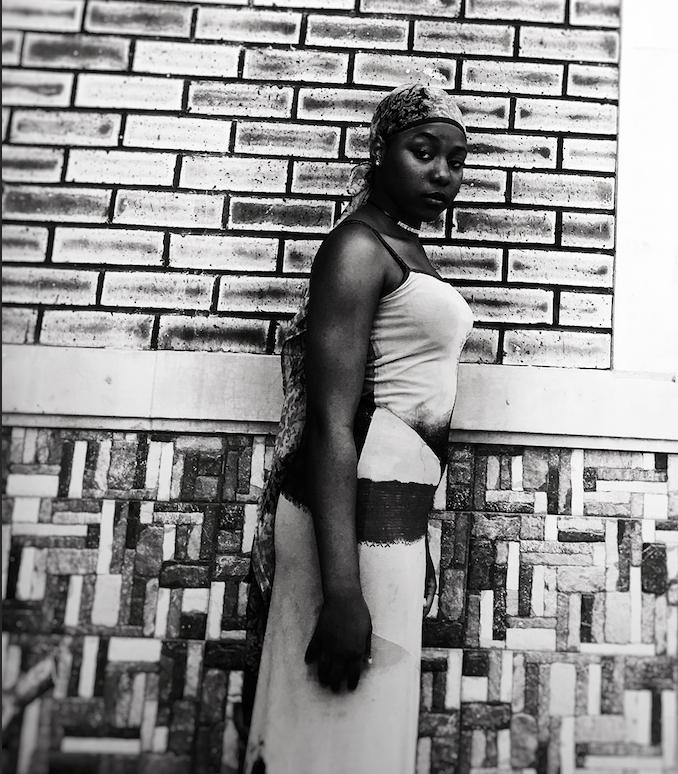
AUTHOR’S ALCOVE | PACELLA CHUKWUMA EKE CANYON VOICES | SPRING 2023
What would you like to say to young, up and coming poets?
Hey, little me. Avoid negative comparisons it can melt your talent. It would pull you down. Keep being positive about everything; celebrate your little wins, celebrate your failures too.
Share opportunities with fellow teen writers, join creative writing collectives, and just do you. Remember to read before and after writing. Also, edit you work thoroughly before sending them out. And lastly, pray to your chi for guidance.
To read Pacella Chukwuma-Eke’s work, visit “a litany of wet/ broken / empty bodies.”
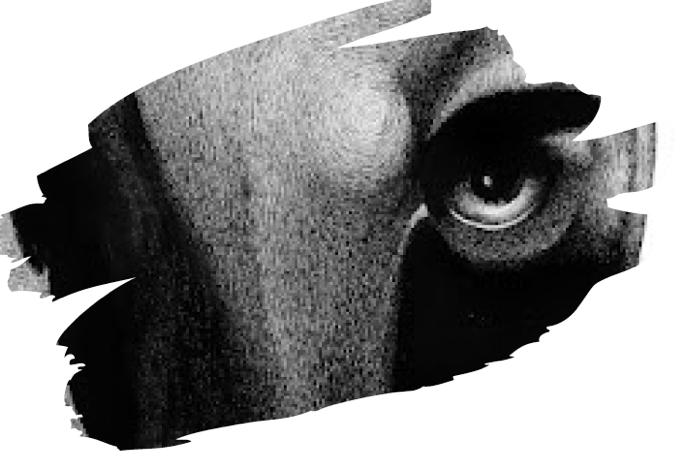
AUTHOR’S ALCOVE | PACELLA CHUKWUMA EKE CANYON VOICES | SPRING 2023
n n n
Scripts and Stage
With Brian James Polak

What made you want to make Protect and Serve into a film instead of a stage piece?
I wrote Protect and Serve first as a play. Several years ago, I was commissioned to write a short play for a theater company in Los Angeles called “Chalk Rep.” All the work Chalk Rep does is produced in a sight specific location. That means they don’t work in a traditional theater.
They asked me to write a play that could be staged in a meeting room inside a church. I was thinking a lot about the death of Tamir Rice at the time and decided to use the tragedy of his killing as inspiration for this play.
After the play was produced, the director and actors decided they wanted to adapt the play into a film. I helped with the screenplay and they all handled the production of the film. It turned out to be a pretty moving piece.
Was there any event in particular that inspired Fledglings? Where do you see that being performed?
Fledglings was inspired by my childhood growing up on a lake in New Hampshire. I had friends who lived nearby and they had a bunch of BB guns. We all went out with them one day and were shooting at all sorts of things. At one point we were inside boathouse with several bird nests in the rafters. It was something that traumatized me as a young person and I still
think about that day with a great deal of sadness and shame.
I first wrote the monologue for a play several years ago and had to cut it because it didn’t properly serve the story. It then found its way into another play, but I see it functioning well as a stand-alone piece. During the early months of COVID I produced it as an audio drama.
The story of Tamir Rice that inspired Protect and Serve is certainly not the same. There is no
AUTHOR’S ALCOVE | BRIAN JAMES POLAK CANYON VOICES | SPRING 2023
"How do you feel knowing the story of Protect and Serve can be interchangeable with the real-life events that inspired it?"
possible way I could ever know the thoughts and feelings of Tamir’s mother following his tragic death. But when I learned some facts about what occurred the day he was killed, I was astonished. The poor child was left on the ground for several minutes after being shot. Nobody attended to his wounds. I still can’t
believe the instinct of the police on the scene was to wait for paramedics instead of helping a young boy dying on the ground. That is why I invented a confrontation between the mother of the dead child in my play and a police officer who was on the scene.
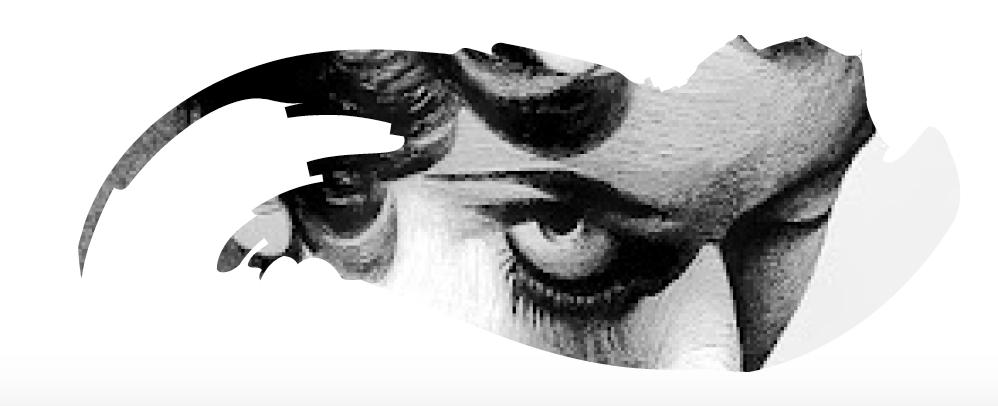
AUTHOR’S ALCOVE | BRIAN JAMES POLAK CANYON VOICES | SPRING 2023
n n n
To see Brian James Polak’s work, visit “Fledglings,” and “Protect and Serve.”
Sexuality and Emotion
With Svetlana Silva
What inspired you to be a writer?
I've been inspired to be a writer since I was a child. I adored reading my favorite book series was "A Series of Unfortunate Events" by Lemony Snicket and I knew I wanted to write my own stories. My English classes were always my favorite, but I didn't realize how fun writing could be until I was given a creative writing assignment in sixth grade. For once, I didn't have to stretch to meet the word count. I wrote well over the word count and could've written more if I was given the chance. I think that was the moment I really knew how much I loved creative writing.
How important is it that we have works of literature and art that discuss asexuality?
Literature and art that discusses asexuality is important because it's highly misunderstood. I'm pleased to see the world is more accepting of the LGBTQ+ community, but that doesn't mean the world or even those in the LGBTQ+ community understand. There are many spectrums of asexuality.
One person may feel no physical attraction at all for anyone, and not even wish to hug another person; while another person may feel sexual attraction only after creating an emotional connection with a partner. Asexuality, like many things, is a spectrum that can be confusing, but that shouldn't invalidate anyone who identifies as asexual.
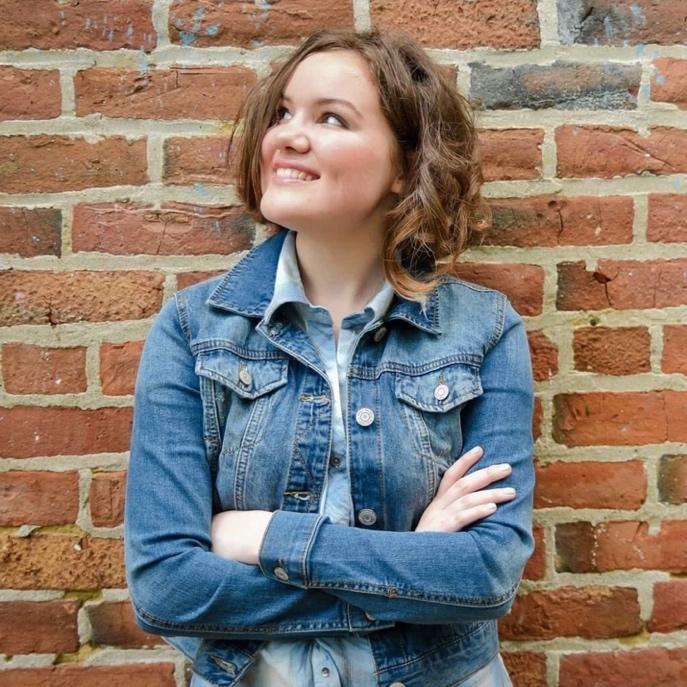
You mentioned when you submitted your work that it was inspired by a conversation with your friend who said something hurtful without meaning to. How has your friendship been since? Do they know they hurt you or do you plan to tell them? Why or why not?
Our friendship has been fine since. I didn't bring up this particular instance to them, but we did have a discussion about asexuality and how it differs for each individual, and just because I identify as asexual, it doesn't mean that I'm totally cut off from any physical interaction.
Was there anything particularly challenging about writing this story?
The most challenging thing about writing this story was expressing my emotions without the use of dialogue. For example, explaining how
AUTHOR’S ALCOVE | SVETLANA SILVA CANYON VOICES | SPRING 2023
hurt I felt after Julian said what he did, and showing my comfortableness with Akasha even though there was no dialogue in that section. It's often easy to tell the readers exactly how the narrator is feeling, but I feel it's more impactful to show it, usually through the senses.
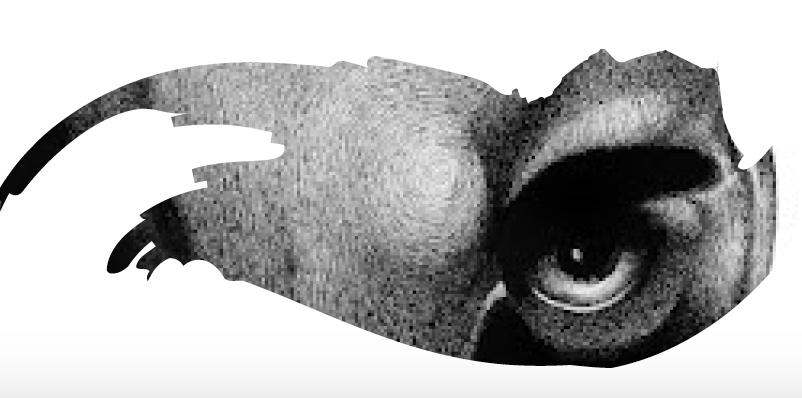
What do you want readers to take away from your story?
I hope readers will be more mindful when
speaking with their friends in the future. I know a lot of people have felt the way I felt in this story, where one sentence can really create an impact, for better or worse. You shouldn't have to tip-toe around friends, but you want to surround yourself with people who understand or take the time to understand what you're all about. I hope everyone can find a friend who they feel as comfortable and understood as I do with Akasha.
To see Svetlana Silva’s work, visit “Labels Like Bruises on Skin.”
AUTHOR’S ALCOVE | SVETLANA SILVA CANYON VOICES | SPRING 2023
n n n
Writing Fiction and Addiction
With Wade Sharp
What got you into writing in the first place?
I have maybe one memory of writing a story as a kid. It was a corny tale about how the first guitar was built and bestowed upon the human race. The main character’s name was Les Paul. I know. So trite. Sometimes I wish I was a more precocious kid. Joyce Carol Oats wrote her first stories when she was, like, prenatal, and when I look at a lot of other writers it felt like I had a lot of catching up to do. I’ve been a musician all my life. My love for the arts spawned there. I wrote lyrics obsessively as a kid. Mostly love songs. I was what they call a “sensitive kid.” When I got into literature, when I first decided I wanted to write, was when I was in jail. I got put into the hole (not for anything interesting) and it was right smack-dab in the middle of COVID. A ten-day sentence turned into two weeks. All there was to do was read. I was lucky enough to have brought two books, Tolstoy’s Anna Karenina and Eat, Pray, Love. The way they freed my mind from the confinement was something incredible. It was like a miracle. Literature is a miracle. I fell in love. Tolstoy writes his characters so that the reader can feel tenderness, if for just a moment, for even the biggest buttheads. There is something really special about that. It sounds conceited, but I felt like I had things to say; observations to make; ways to connect with people like that. I started writing then. I wrote a story on a tank order about a drug addict who manipulates his therapist into signing him out of treatment. I’ve been writing ever since! Now I’m studying English at ASU! Happy ending/beginning!
What was your inspiration for your stories? Were they based on your life experience/people in your life? Or totally imaginary?
I was addicted to heroin for about ten years and homeless for about five. It devoured my twenties. The experiences I write about in these stories are based on real experiences. Of course, things are dramatized, but they are about stories I’ve heard and the people I’ve encountered running around on the street for so long.
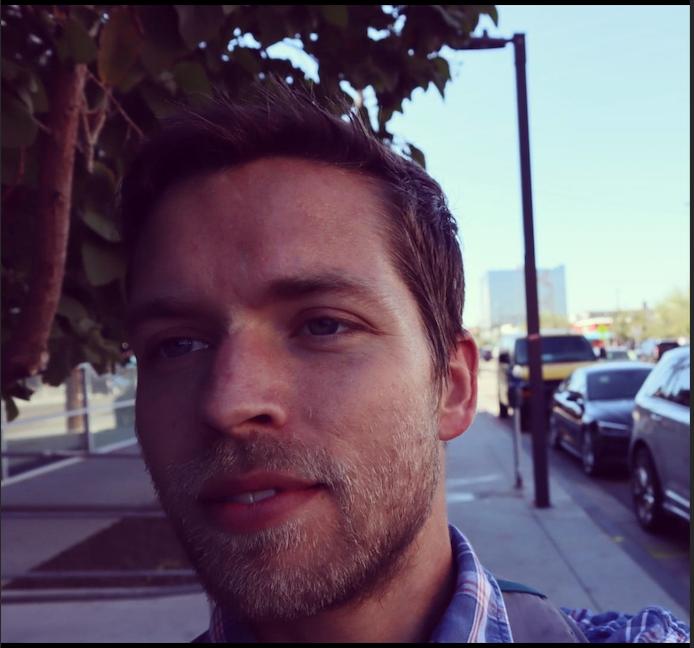
Why did you choose the endings that you did, especially for The Victory? What is your reasoning for having River overdose and die in the end?
Everybody in that story is in such desperate need for help. It was interesting to me that only in the most dire of circumstances she would
AUTHOR’S ALCOVE | WADE SHARP CANYON VOICES | SPRING 2023
even utter the words, “I need help.” I wanted to end it with her feeling some kind of relief for just getting the phrase out of her diaphragm, as though the words were poisoning her; like when you meditate and they tell you to “breathe out the bad.” Admitting that one needs help is the hardest stage of getting off drugs. Most addicts don’t get a chance to say it before they die or go to jail.
What challenges did you face writing this? Was there anything in particular that was difficult?
The hardest part of writing stories like these is putting myself in that place. I have to think about the drug preparation rituals, the needles, the tin foil, living on the street in DT Phoenix
(which could be pretty fun at times and was an addicting lifestyle in itself… think constant summer break, but heavily peppered with days of total horror). It’s been healthy for me to get everything out. It’s been therapeutic. The other hardest part is showing them to people. You guys have been really nice to me, but some people read them and I can just see the “ew” spilling across their faces.
What was your favorite scene to write?
The opening scenes are always the hardest part, but when I find a sentence I like, one that makes me laugh or especially when I look back and see that I’ve unconsciously used some technique I learned, those are always my favorite because I can see that I’m growing as a writer.
To read Wade Sharp’s work, visit “The Victory,” and “Desert Story.”

AUTHOR’S ALCOVE | WADE SHARP CANYON VOICES | SPRING 2023
n
n n
Mohammed Ahmad is a Palestinian American actor and writer currently based in Colorado. He is pursuing his M.A. in Professional Creative Writing and Poetry at the University of Denver When he's not writing or on camera, he spends his days reading, listening to music, or traveling. He is working on a poetry book he intends to publish this year.
Mohammed Ahmad | Poetry
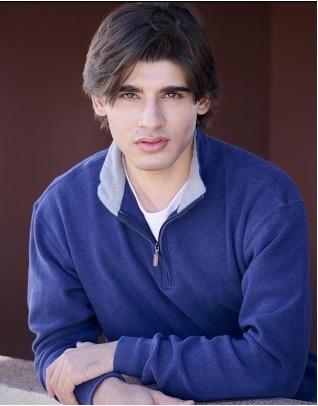
Anna Karpuleva is a graphic designer and artist living in Moscow. Her art is a combination of digital and traditional techniques. Fairy tales and myths have always fascinated her, and Anna says that she loves to explore these themes in her artworks. She makes dreams and fantasies come true by drawing intuitive plots and putting a part of her worldview into each of them. She believes that art should be open to interpretation, and the best works are those that evoke emotions and thoughts in the viewer She graduated from the Kosygin Russian State University and has a bachelor's degree in graphic design and visual communications. Anna’s goal is to give the audience inspiration, love and belief in miracles. She can be found on the internet under the pseudonym Anleka
Anna Karpuleva | Art

Samantha Barbosa is an Arizona State University senior graduating spring 2023 with a Bachelor of Arts in History and Social and Cultural Analysis with a concentration in Ethnicity, Race & Indigenous Studies She is also a student of Hermeneutics and participated in the International Institute of Hermeneutics 2022 Summer Conference.

Alexandria Berthoumieux is currently a junior at Arizona State University, studying marketing with a certificate in professional sales. Alexandria has always been fascinated by the creative side of marketing. She plans to pursue a career as a marketing manager or consultant for a fashion company. Although her passions lie in the field of business/fashion, she finds writing essential to express her ideas and thoughts.

CONTRIBUTOR BIOGRAPHIES
Samantha Barbosa | Essay
CANYON VOICES | SPRING 2023
Alexandria Berthoumieux | Essay
John P. Bray's plays include FRIENDLY’S FIRE (World Premiere: Barter Theatre; published by Next Stage Press), TRACKS (Semifinalist, O'Neill National Playwrights Conference; Semifinalist, Ashland New Play Festival), HOUND (Planet Connections Theatre Festivity), GOODNIGHT LOVIN’ TRAIL (produced in rep with Rising Sun Performance Co. NYC 2004-2014, published by Original Works Publishing), and the short GREEN SOUND (adapted into an audio drama by Ensemble Theatre of Chattanooga; also translated into Italian and performed in Milan). His screenplays include the co-written LINER NOTES (Woodstock Film Festival, feature length), BARFLIES (Horror Realm Con, short), and the forthcoming ESCAPISM (post-production). He has edited anthologies for Applause Theatre and Cinema Books. MFA, Playwriting: Actors Studio Drama School/The New School. PhD, Theatre: LSU. John teaches at UGA. http://www.johnpatrickbray.com/



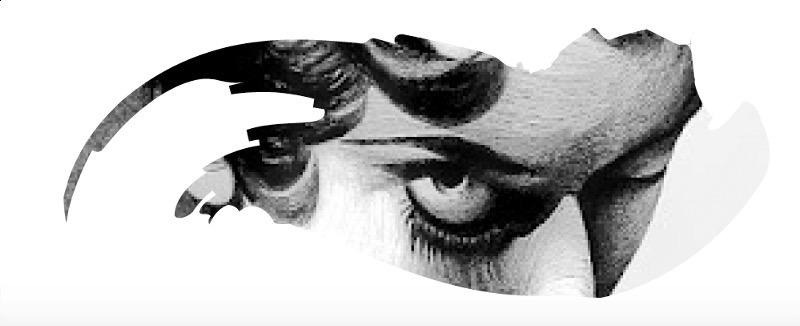
David Crespy is a professor of playwriting, acting and dramatic literature at the University of Missouri, and is the 2022-23 Fulbright Scholar to Spain and Greece. His Fulbright project is to develop six new plays about the Spanish roots of the Sephardic Jewish community of Thessaloniki, titled Mi Corazón Español Vive Ahora En Grecia. His play LA SUSONA is part of that project. Dr. Crespy received a previous Fulbright Fellowship to Greece in 2018 to write a trilogy of plays about the Jewish Community of Thessaloniki, Madre de Israel: Three Plays of Jewish Salonica, which is part of his family’s Greek and Spanish heritage in Europe. His new book, Dreamwrighting: Dreamwork for Dramatic Writing for Stage and Screen, will be published by Brill in 2024 You can learn more about Dr. Crespy at: https://theatre.missouri.edu/people/crespy.
Abi Diaz is a Chicago firefighter by day and a poet by night. With all the violence, racial tensions, war and generally terrible news given to you on a daily basis through news channels and social media, Diaz hopes that his poetry will take you away to a time when the world seemed a better place because of the way love affected you He has published a book of poetry, My Epic Poems: Of Love & Romance.
CANYON VOICES | SPRING 2023 CONTRIBUTOR BIOGRAPHIES
Scripts | John P. Bray
Scripts | David
No Photo Available
| Abi
Poetry
Diaz
Eric Eberwein’s plays include Great Western Wanderlust (winner, Las Vegas Little Theatre New Works Competition) and Peace Be With You (Garry Marshall Theatre New Works Festival, 2019). His short play The Return Engagement was a finalist in Actors Theatre of Louisville’s National TenMinute Play Contest. Eric’s work has been produced at Santa Cruz Actors Theatre, the Hunger Artists Theatre Company and STAGEStheatre (CA), Las Vegas Little Theatre, FUSION Theatre Company (NM), the Coastal Empire New Plays Festival (GA) and WNEP Theater (Chicago) Selected works are in print via Original Works Publishing and Smith & Kraus. In addition, Eric directs the Orange County Playwrights Alliance and serves as co-producer and associate artistic director of OC-centric: Orange County’s New Play Festival, held annually at Chapman University
Eric Eberwein | Scripts
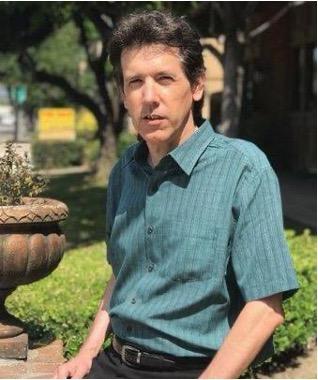
Pacella Chukwuma-Eke, NGP Xv, is a multiple award-winning Nigerian writer. She is the author of the chapbook, Love in its Bliss and Sins, and has some of her works published or forthcoming in literary journals like the Eunoia Review, Brittle Paper, Strange Horizons, and elsewhere. Pacella is a member of the Hilltop Creative Arts Foundation. Say “hi” on Instagram @pacellachukwumaeke or Twitter @dancing_poet.
Pacella Chukwuma-Eke | Poetry

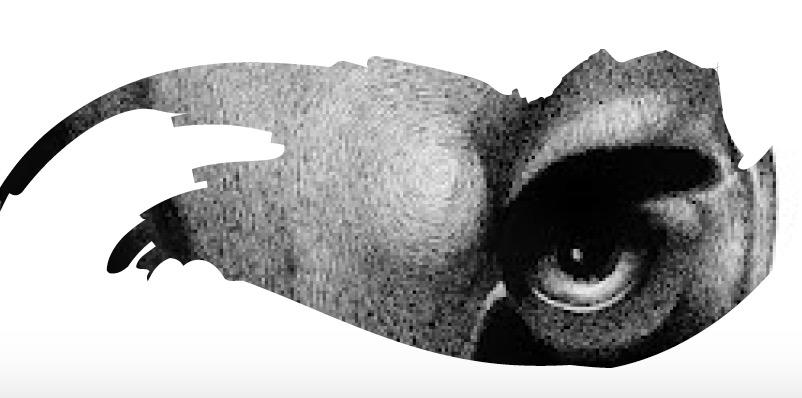
Lauren Elise Fisher is a theatre artist and writer based out of Connecticut She holds a Bachelor’s in Theatre Studies from the University of Connecticut where she studied stage management, performance and puppetry When it comes to writing, Lauren prefers to write plays and poetry. Keep up with Lauren on Instagram: @AllFishSwim.
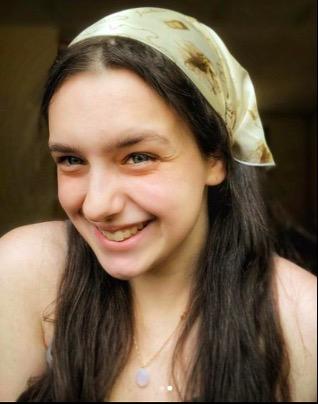
CONTRIBUTOR BIOGRAPHIES
CANYON VOICES | SPRING 2023
Lauren Elise Fisher | Poetry
Veronica Gonzales (she/her) is a recent graduate from Arizona State University, where she earned her degrees in Political Science and English. She was previously the Interview Editor at Superstition Review and the Associate Literary Editor at Lux Creative Undergraduate Review. Her work can be seen in Superstition Review, Girls Right the World and WhimsicalPoet.
Creative Nonfiction|Veronica Gonzales
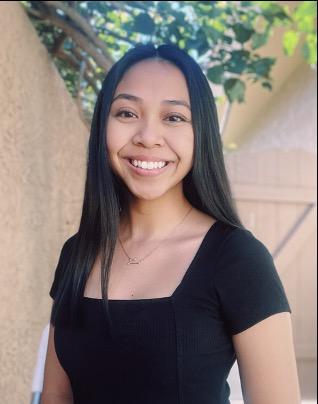
Chris Hall is native to Phoenix, Arizona. He has lived in the Phoenix Metro area for over 40 years. He currently lives in Mesa with his wife where they raised three beautiful children together. Chris loves the natural beauty that the southwest has to offer in its landscapes and wildlife. He loves to travel and explore other areas of the country; Maui holds a special place in his heart. Chris's day job is a shop foreman and specialty automotive technician at Vintage Iron and Restoration in Scottsdale. Much of his free time is devoted to exploring this great state and looking for beautiful landscapes and wildlife to feature in his photography. He loves to share his passion for photography and is grateful to be featured. You can find more of his work on Instagram at chrismhallstudios or https://www.chrismhallstudios.com
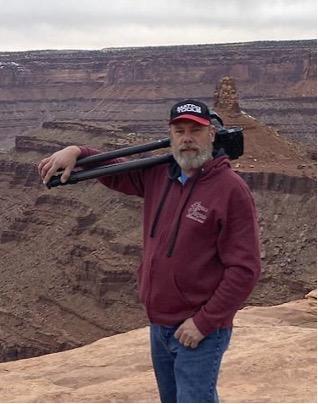
Munchbud Ink is a freelance digital illustrator who graduated from High Point University with a B.A. in Design Studies concentrating in Graphic Design in 2021. Since graduation, they’ve been pursuing a career as a freelance illustrator and created their own company, Munchbud Ink. They enjoy expressing creativity through eye catching, striking, and unique visuals while experimenting with a variety of shapes and colors. They are a digital artist who enjoys using their imagination in creating characters and creatures with psychedelic, surreal, horrific, fantasy-like and decorative themes.
Website: http://www.munchbudink.com/ Socials: linktr.ee/MunchbudInk
CreativeNonfiction

CANYON VOICES | SPRING 2023 CONTRIBUTOR BIOGRAPHIES
Art
Art | Chris Hall
Art | Munchbud Ink
Alenka Koželj was born in 1980 in Ljubljana, the capital of Slovenia. She attended elementary school in Spodnja Idrija, and in 1995, enrolled in the Poljane Grammar School in Ljubljana, from which she graduated with honors in 1999. The same year, she matriculated at the Faculty of Arts of the University of Ljubljana to study French Language and Literature as well as Comparative Literature and Literary Theory. She graduated in 2005. She obtained her M.A. in French Literature in 2011 and her Ph.D. in 2019 (both at the Faculty of Arts in Ljubljana). From 2018 onwards, she has been working as a freelance writer and translator from (and to) French and English languages. She has published short stories in all the relevant Slovenian literary magazines. Her collection of short stories Lovilci sanj (Dreamcatchers; Ljubljana: Mladinska knjiga, 2019) was nominated for the best first book award in Slovenia. In 2018, she was honored to give a lecture at Barrett, The Honors College at the invitation of Prof. Dr. Ramsey Eric Ramsey. She lives and works in Ljubljana.
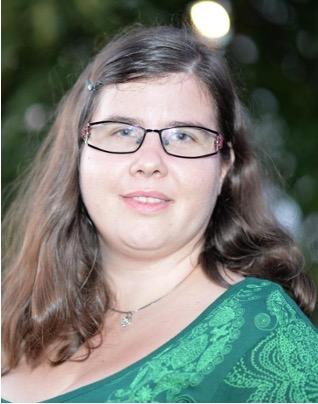
Alenka Koželj | Essay Translation
Siv Limary is a part-time, continuing student studying Art Studio at the University of New Mexico. He enjoys photography, printmaking, and painting. His current interest includes experimenting with digital photography and light painting through long exposure.

Rosalinda Pacheco is an artist from Albuquerque, New Mexico. Her work represents the emotional configurations that memories create. She utilizes acrylic paint as a medium to overlap elements of spontaneity. She received her B.F.A. in art studio with an emphasis in painting and drawing. Rosalinda currently studies at the University of New Mexico.
Rosalinda Pacheco | Art
Brian James Polak is an award-winning playwright born and raised in New Hampshire. His plays have been presented at venues and schools around the country, and have been published by Smith & Kraus, Talon Review, Commonplace Books, NoPassport Press, Next Stage Press, and Canyon Voices When not writing plays, he can be found working as the producer and host of American Theatre magazine's "The Subtext," a podcast about what makes playwrights tick. He received his MFA in Dramatic Writing from the University of Southern California, School of Dramatic Arts. You can learn more about him at BrianJamesPolak.com.
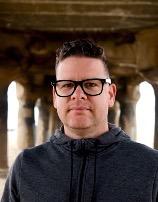
Polak
Scripts

CONTRIBUTOR
BIOGRAPHIES
CANYON VOICES | SPRING 2023
No Photo Available
|
Pradhumn Pradeep is a high school class of ‘23 graduate. He focuses on music composition/performance along with his secondary education, and frequently works at hospitals in preparation for medical school. Through his art, Pradeep tries not to portray the profound, but rather the opposite: how instances from daily life can be beautiful.

I was born in 1964 in Rome where I live today with my family. As the first of two children, my childhood was restricted by an overprotective mother who perhaps imprinted me the sense of insecurity and estrangement from reality that has so often influenced both my life and work. My artistic attitude was revealed at an early age. In an attempt to foster my abilities, my mother made me a point to religiously attend at all of the main contemporary art exhibitions that passed through Rome during the mid-1970’s By age 12 I was also studying painting under the tutelage of an illustrator at the local college were I later graduate from. I graduated in 1984 from the Mary Mount College in Rome; the institution’s pedagogic method, characterized by a humanistic philosophy on religion, gave me a prominent role to the spiritual nourishment of my creativity. Since then I was been actively attending exhibitions all around Rome
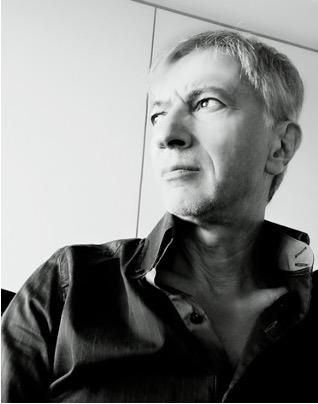
Wade was born here in Phoenix, Az. Growing up, he was never a great student and always preferred staying home to writing and making music over going to parties. He graduated high school by the skin of his teeth and slowly chipped away at community college credits until he finally got into Arizona State University to study creative writing. Around that time, he was introduced to heroin and addiction devoured everything he had. For seven years, he lived on the streets of Central Phoenix, stuck in a hazy tirade of selfish decay. He slept on nothing but cement, constantly in and out of jail. The last time he got picked up, he did a year in county jail where he spent his time reading books from Tolstoy, and Mark D. Danielewski’s House of Leaves. He started writing poetry, and creative non-fiction, and that has evolved into short fiction. Slowly, over the past two years, I have been piecing my life back together. I was able to get back into university and, once again, I am chipping away at my degree from Grand Canyon University. I write something every single day, and my dream is to make my living from it.
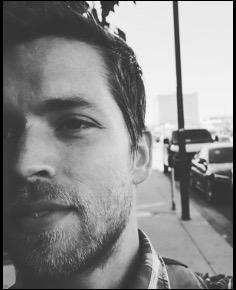
Creative Nonfiction | Pradhumn Pradeep Creative

CANYON VOICES | SPRING 2023 CONTRIBUTOR BIOGRAPHIES
Nonfiction
Art | Red Twenty
Fiction | Wade Sharp
Svetlana Silva is currently a junior undergraduate student studying creative writing, professional writing with a focus on editing and publishing–,as well as history at Purdue University, where she also maintains the university’s humanities library and archives and special collections. When she isn’t surrounding herself by books, she enjoys sharing meals with friends and talking their ears off about retro video games Svetlana is also having a short fiction story being published in Purdue University’s literary magazine, The Bell Tower, this spring.
Svetlana Silva | Creative Nonfiction
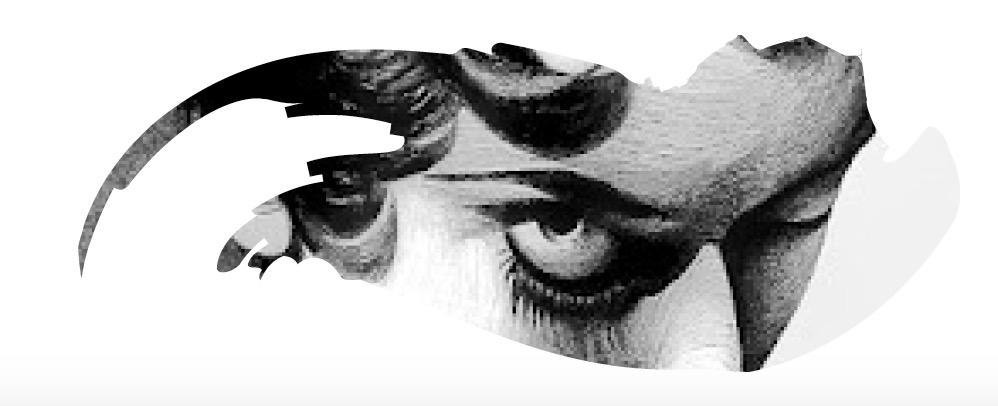
My name is Brooklyn Smith, and I am a 17-year-old high school junior who enjoys reading, writing, and exploring the world through the lens of literature. I do my best work when I know my wonderful English teacher, Ms. Maxwell, is counting on me to turn in my assignments before the Canvas submission closes. While I do despise school most days, I have her to thank for my continued appreciation for writing prose and my growth as an author. As a third-generation Arizonan, I take a lot of inspiration from my upbringing as well as from my two older siblings, my loving parents, and our herd of dogs and cats. While I am still unsure what I want to study in college, I know I will always pursue and practice my writing, in whatever form, whenever I can; it is a vital part of who I am as a person and has greatly shaped my desires and ambitions.

Brooklyn Smith | Creative Nonfiction
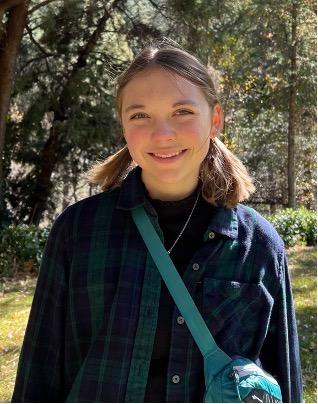
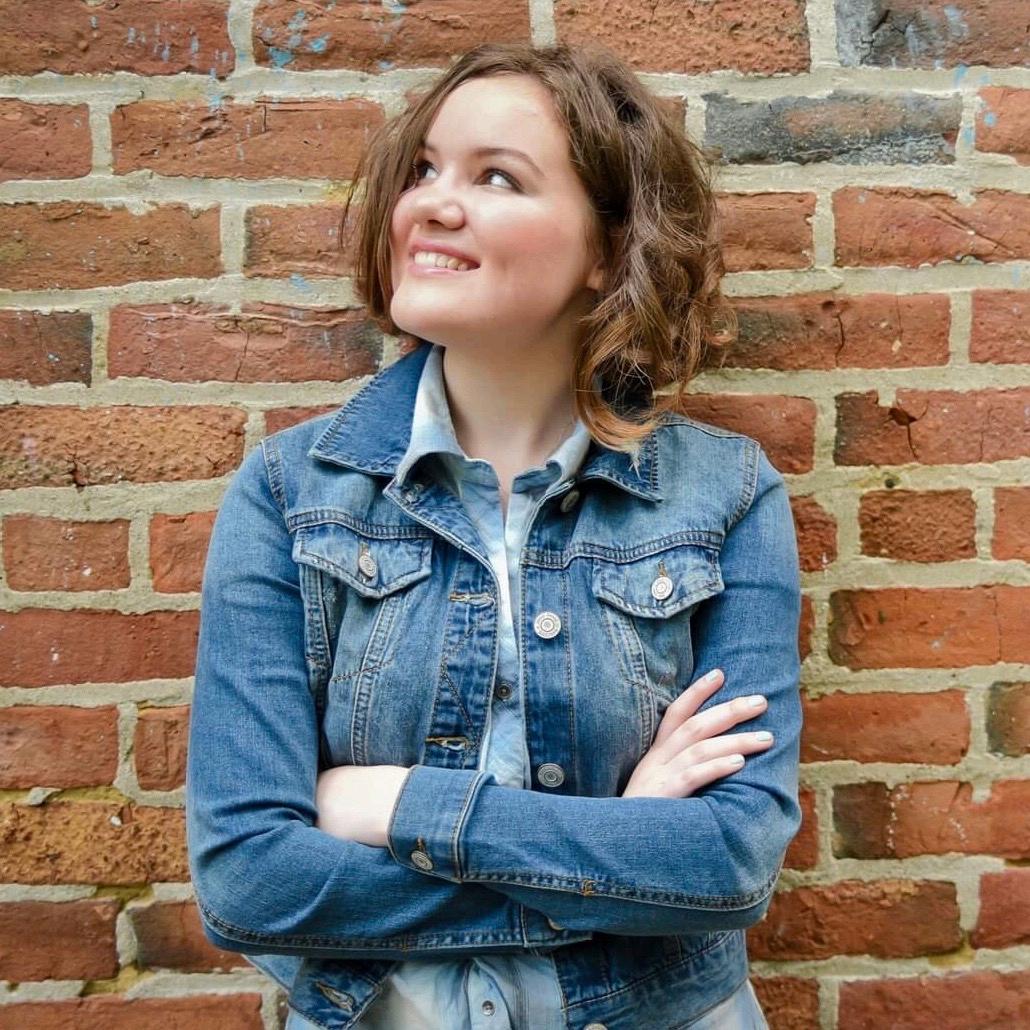
CONTRIBUTOR BIOGRAPHIES
CANYON VOICES | SPRING 2023
Anna Louise Steig | Creative Nonfiction
Anna Louise Steig is a young writer from the Appalachian hills of western Maryland. She will be attending Shepherd University as an English major in fall 2023.
Natallia has been a digital artist for many years. For several years she restored old photographs of American baseball players for a US client. This client then began to encourage Natallia to paint American baseball players in watercolor. She resisted for a long time, because a watercolor portrait is really a very difficult thing. But then she agreed to try. These were some of the most difficult months of her life Natallia was much disappointed, but again continued to fight. She was able to make her first watercolor portrait after several months of hard work. After making hundreds of watercolor portraits of American athletes, Natalia began to look for her own style and experiment with personal paintings. Her paintings are full of the sun, small children, pets and vegetation.

Christopher R. Vaughan’s poems have appeared in numerous journals, including The Cincinnati Review, Hawai’i Pacific Review, Off the Coast, and Del Sol Review. He was a winner of the 2020 Princemere Poetry Prize and has received support from the Community of Writers, Martha’s Vineyard Institute of Creative Writing, Indiana University Writers’ Conference, and Minnesota Northwoods Writers Conference He is currently a Fellow in the Loft Mentor Series in Poetry and Creative Prose. He lives in Minneapolis.

Julia Woodward is 16 years old and currently enrolled at Mountain Ridge High School . Art is a very important part of her life, and she has been seriously drawing since she was 7 and has always appreciated it. She is experimenting with a few different types of art, her favorite mediums are digital and alcohol-based markers. She also dabbles in photography. She drew this piece because she feels like there is a lot of beauty in death and people don’t think of that often. Most of her art captures things people may not consider or appreciate.
ZDX is a guy who likes to do stuff. Born in Peru in 2003, he does drawings, paintings, collages, and other stuff about things he is interested in Currently studying Graphic design in college, wants to learn, improve more on his work, and ultimately live from doing this. He's very thankful to have the chance to post in this magazine, with other people and their amazing works, and hopes you readers like what he does! Check more of his work here:

Instagram: @some_normal_stuff/

Deviantart: https://www deviantart com/zdxstuff
Contact: zdxstuff@gmail.com
CANYON VOICES | SPRING 2023 CONTRIBUTOR BIOGRAPHIES
Art
Poetry | Christopher Vaughan
Art | ZDX
|
Art
Juli
|
Art
Natallia Valiukevich
Available
No Photo
ABOUT US
CANYON VOICES LITERARY & ART MAGAZINE is dedicated to shedding light on the works of emerging and established writers and artists. Founded in the spring of 2010 at Arizona State University’s West campus by one professor, Julie Amparano Garcia, and six students, this journal strives to bring the creativity of writers and artists to light within the community and beyond. Supported by the students and faculty of the School of Humanities, Arts and Cultural Studies at ASU’s New College of Interdisciplinary Arts and Sciences, CANYON VOICES accepts writing and artwork from writers and artists from all corners of our planet and from all walks of life. The work of maintaining and producing this magazine is entirely student driven. Since its formation, CANYON VOICES has expanded into a full credit, hands-on class. Students build a full literary journal each semester, heading every aspect of production, including soliciting submissions, editing, marketing, design and layout, and publication. We strive to bring you an eclectic range of voices each semester.
OUR MISSION CONTACT US
At CANYON VOICES our mission is to provide an online environment to highlight emerging and established voices in the artistic community.

By publishing works that engender thought, Canyon Voices seeks to enrich the scope of language, style, culture, and gender.
Questions, comments, feedback? We would love to hear from you.
Contact us via email at:
CanyonVoicesLitMag@gmail.com
You can also visit us on Facebook: www.facebook.com/asucanyonvoices
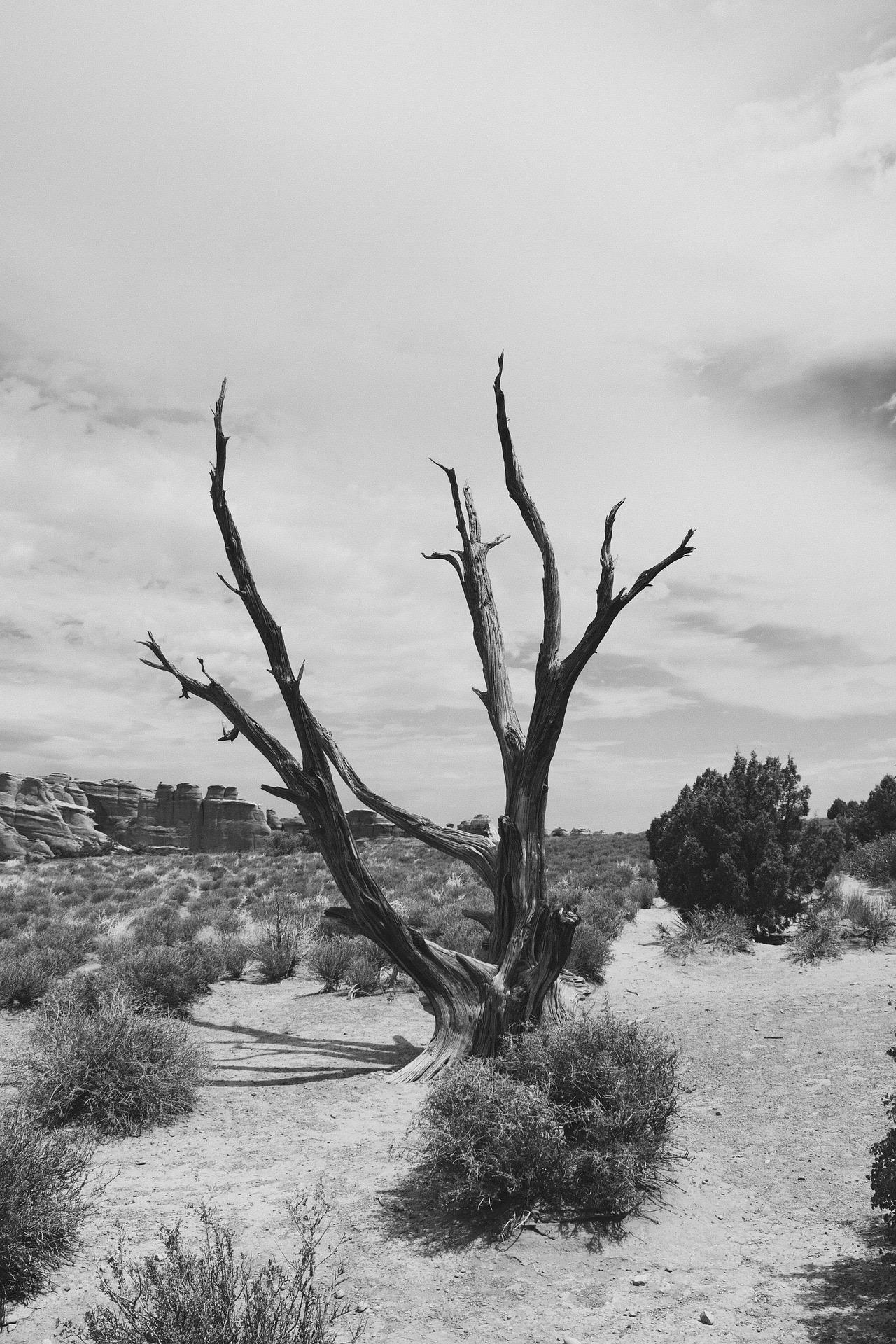
CANYONVOICES FALL 2021
To submit your work, please send it to CanyonVoicesLitMag@gmail.com. Be sure to attach all the work you wish to submit to the email. You may include an author biography and a photo, which will be included in the magazine should your work be chosen for publication. We are affiliated with Arizona State University, and we uphold academic standards. If your work is accepted, we reserve the right to make changes. You will be contacted should your work require more extensive edits. We accept simultaneous submissions.
All documents submitted should be double spaced with a 12 point font, in either Times New Roman or Arial. Poetry may be single spaced. All written documents must be submitted in (.doc) or (.rtf) format. Artwork may be in JPEG format. All work submitted must have a title.
FICTION
Up to two stories may be submitted per issue. Each story may be 20 pages or fewer.
POETRY
Up to six poems may be submitted (no longer than two pages each) per issue.

CNF
Up to four stories per issue. Two pieces may be 20 pages.
EXPLICIT MATERIALS
Because this is a university magazine, submissions containing sexually explicit material and explicit language will be reviewed and determined eligible for publishing depending on the context of the material in the work. Material deemed inappropriate or gratuitous will be rejected.
SCRIPTS
Up to two scripts may be submitted per issue. Script maximum 15 pages.
ART
Up to ten pieces, with at least 300 dpi or JPEG format (<1 MB). Include detail on medium.
READING PERIOD
Our editors read submissions in August, September, and through October 1st for the fall issue. The reading period re-opens in January, February, and through March 1st for the spring.
CANYONVOICES FALL 2021
Julie Amparano García is the founder and publisher of CANYON VOICES literary and art magazine. Serving in the School of Humanity Arts and Cultural Studies at ASU’s New College of Interdisciplinary Arts and Sciences, Amparano García oversees the school's Writing Certificate Program and teaches a variety of writing courses that include scriptwriting, cross-cultural writing, fiction, persuasive writing, and the Canyon Voices course She received her M F A in Creative Writing from Antioch University in Los Angeles in 2006 and is working on a collection of short stories and a play about children and war.

Brandon Blue is a black, queer poet, educator and MFA candidate at Arizona State University from Washington, DC He is an assistant editor for Storm Cellar Magazine and his work has or will appear in Barzakh, the Saints and Sinners Literary Festival Poetry Anthology, [PANK], and more. His work is also featured in the Capital Pride Poem-a-Day event. His chapbook, Snap.Shot, is forthcoming from Finishing Line Press.
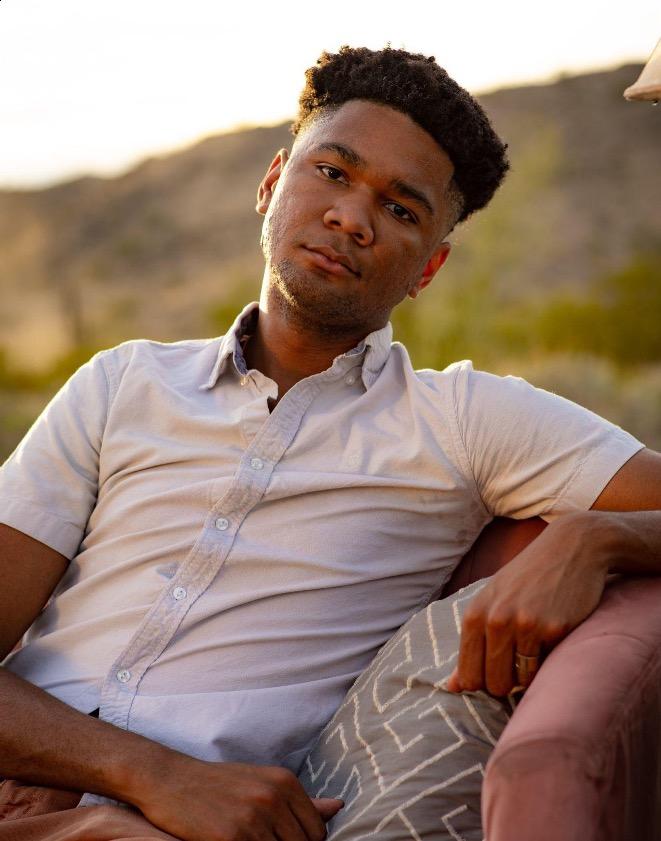
Bailey Blundell is a queer poet earning a B.A. in Forensic Psychology and a Certificate in Writing. When she graduates, she plans on taking a gap year to work as a case manager before going to graduate school for clinical psychology. She has loved overseeing the poetry section for Canyon Voices this year, and she looks forward to pursuing literary pursuits in the future.
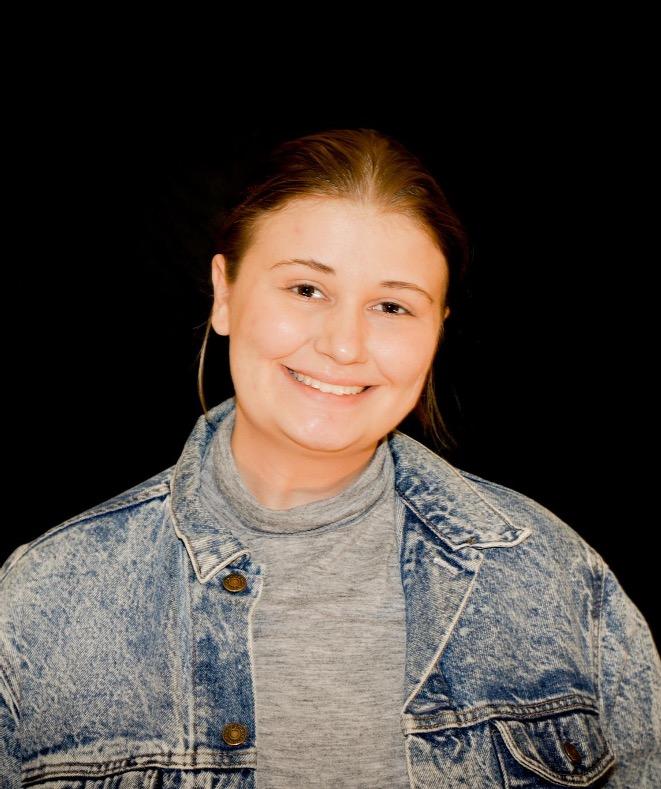
STAFF PAGES
Bailey Blundell Editor
Julie Amparano García Publisher
CANYON VOICES | SPRING 2023
Brandon Blue Editor at Large
Born in Austin, Texas but grew up here in Arizona, Matthew Chesser is finishing his BA in the College of Integrated Sciences and Arts at ASU. This is his third year working with Canyon Voices. He comes from a military family. His father is a retired Colonel in the USAF, an Assistant Professor at the University of Arizona, and an internal medicine doctor for the Phoenix VA Hospital. In his free time, Matthew spends time playing his favorite video games, watching the English Premier League, and helping out on their ranch. He looks forward to eventually submitting his own work to Canyon Voices in future issues.
Having been raised by hippies and witches, Sharon Enck finds the exceptional in the unconventional. A published writer, Sharon spends her days crafting marketing copy, but by night injects a wicked sense of humor into her memoirs and personal essays Currently working on a master’s degree in narrative studies at ASU, Sharon’s husband and daughter support (sometimes grudgingly) her bohemian sensibilities, wild endeavors, and the ever-present threat of moving to Paris.
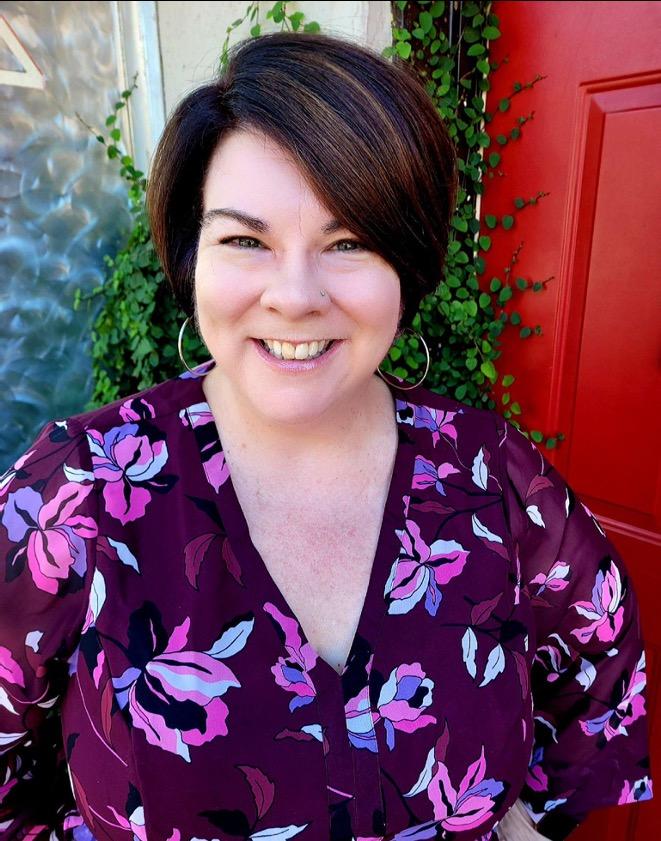
Mark Enriquez is a graduate student at ASU and a Senior Editor of Canyon Voices magazine. His favorite poet is Robert Frost and he enjoys studying Medieval Literature and Pedagogy Theory Mark received his Bachelor’s in English from ASU in May 2019 and is now on track to receive a Masters this coming fall of 2023.
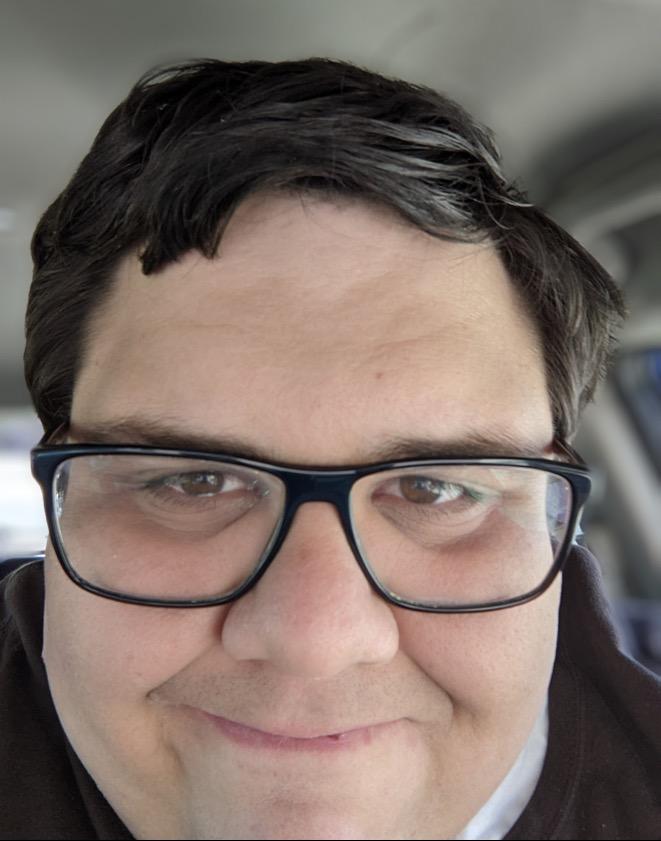

CANYON VOICES | SPRING 2023 STAFF PAGES
Editor Matthew Chesser
Sharon Enck
Editor at Large
Mark Enriquez
Editor at Large
Emily Lopez is a first generation Mexican-American graduate student and Senior Editor for Canyon Voices pursuing a Master of Arts in English at Arizona State University She has led a student committee responsible for organizing the symposium “Ni Una Más: Preventing Violence Against Women, Lessons from Mexico” which was based off of her Barrett, the Honors College thesis titled “Mexico’s History of Femicide, Media Awareness, and Lack of Legal Protection for Women”. Additionally, she has completed research under the New College Undergraduate Inquiry and Research Experiences (NCUIRE) program. Aside from her research, Emily loves writing and reading stories within horror, magical realism, fantasy, and science fiction genres She enjoys the escapist and whimsical nature that these types of stories offer Authors such as Silvia Moreno-Garcia, Gabriel Garcia Marquez, and Isabel Allende have inspired her reconnection and research in Mexico’s history and folklore while also serving as reminders to explore the boundaries and capabilities of storytelling. Emily plans on attending law school in order to expand her knowledge on the inner workings of institutions.
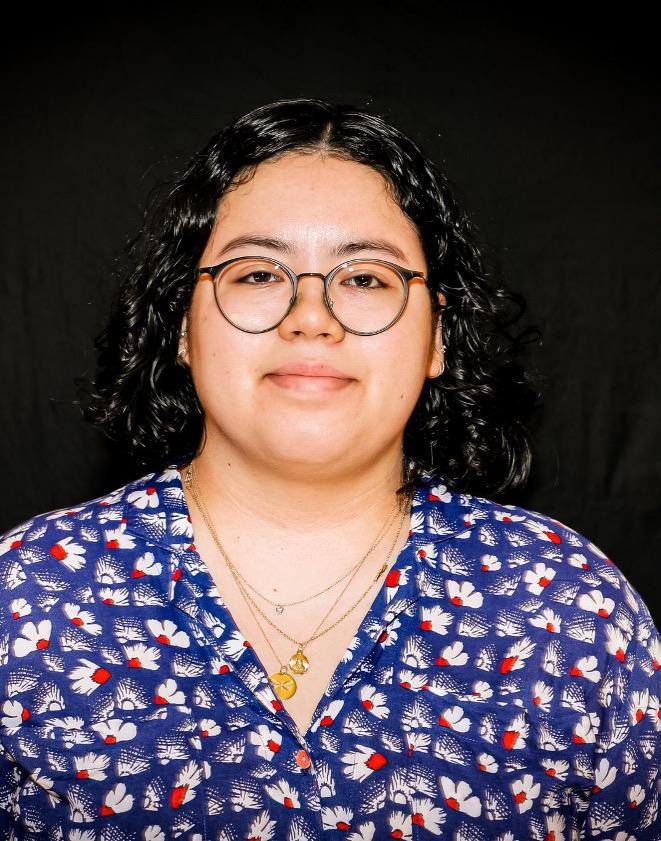
Laura Matala-Tala is an Arizona State University student studying Political Science and English. She was born in San Antonio, Texas, though she truly comes from Los Alamitos, California. Working with Canyon Voices, Laura has unpolished dormant editorial skills, and has grown confident in her analytical abilities as a writer. She enjoys reading and writing at every opportunity, with a collection of her own unpublished works. She spends most of her time working, and surrounded by her friends and family. In the future ahead, she intends to become a paralegal and, perhaps, a (New York Times best-seller) lawyer. Whether or not these wishes come true, she’ll spend the rest of her days beneath the sun, happily.
Madesyn Mathews is an aspiring video game narrative designer currently studying Interdisciplinary Arts and Performance at Arizona State University with a focus on Arts and Humanities and Games. She is thrilled to have the opportunity to work as an editor at Canyon Voices. Currently, Madesyn is a writer of video game scripts and short fiction and has 10 years of experience in theater. She excited to see where the experience at Canyon Voices takes her in the future.
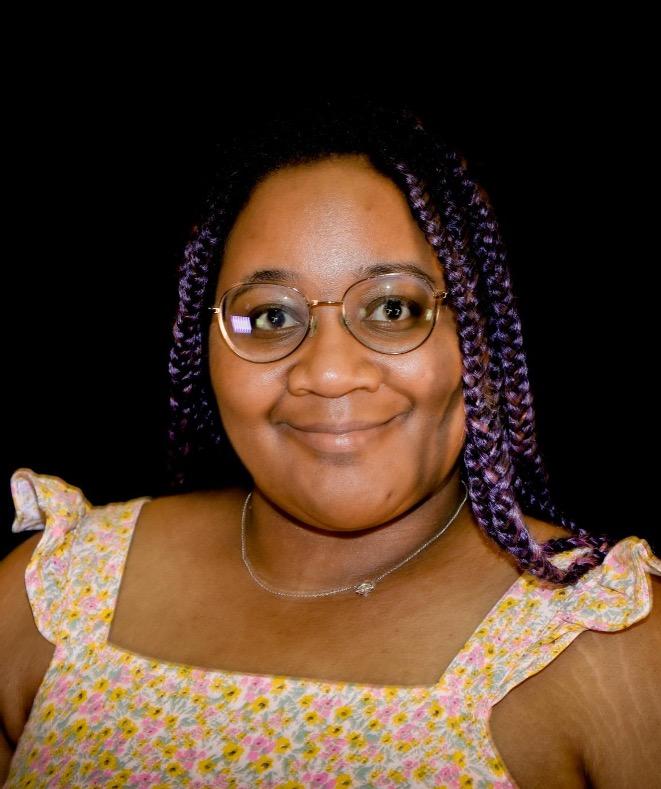
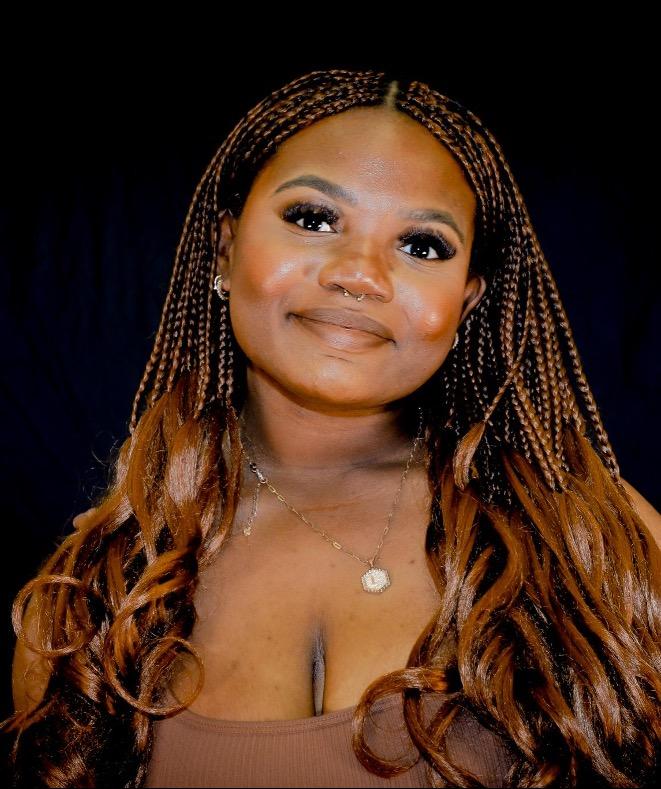
STAFF PAGES
Madesyn Mathews Editor
Emily Lopez Editor at Large
CANYON VOICES | SPRING 2023
Laura Matala-Tala Editor
Nysaa Mejia is currently a sophomore at ASU and is pursuing a B.S. in Environmental Science. Outside of school, she works for ASU’s tutoring center and is a Starbucks barista. She also enjoys reading fantasy, science fiction, and contemporary romance novels. Her favorite book being Vicious by V.E. Schwab which she swears by.
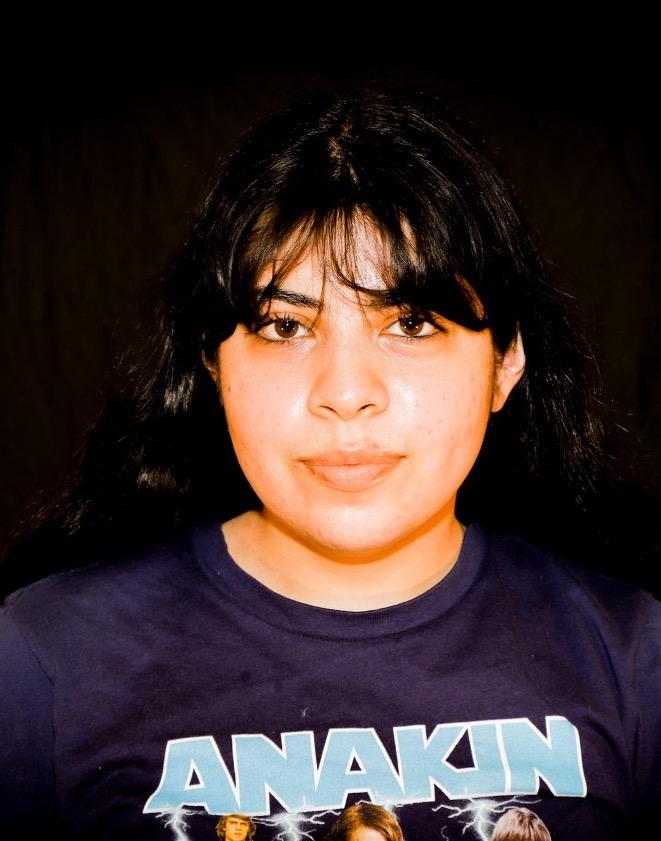
Kody Misinco is a graduate student at Arizona State University, working towards a Master of Arts degree in English Rhetoric, while managing a full time job. Kody is a the first in his immediate family to go to complete high school and go to university. Kody has a passion for literature, and has been inspired by authors such as Bill Konigsberg, Augustine Burrows, Stephen King, and Waldo Ralph Emerson.

Cera Monson is an ASU student graduating in Spring 2023 with a bachelor’s degree in Computer Science and certificate in Writing Outside her career aspirations as a software engineer, she is a writer with a passion for fiction and fantasy writing and is inspired by authors Maggie Stiefvater and R F Kuang She has recently completed her year-long senior project, a fantasy novel entitled Regicide, with plans to pursue its publication after graduation.
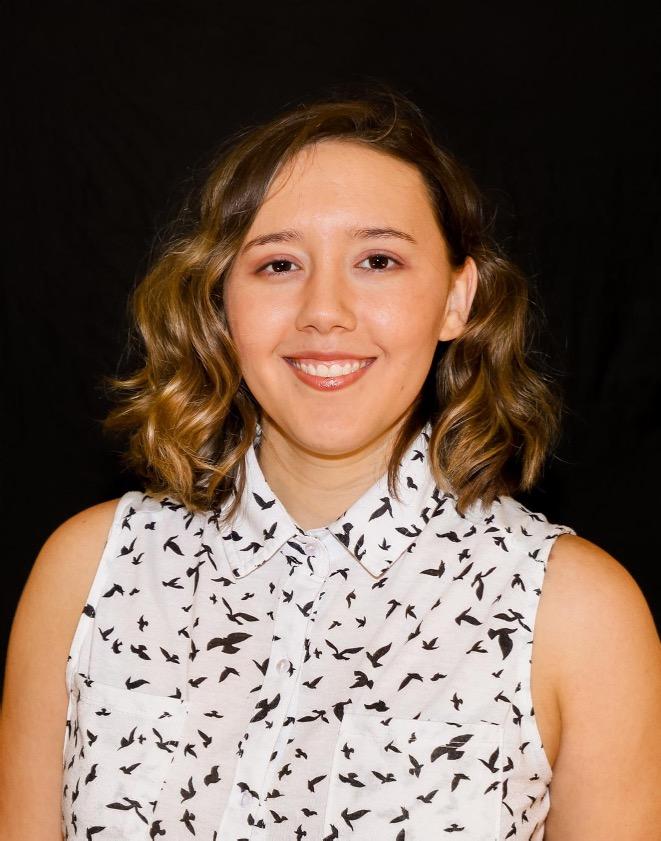
CANYON VOICES | SPRING 2023 STAFF PAGES
Editor
Nysaa Meija
Kody Misinco Editor at Large
Cera Monson Editor
Jared Rusnak is a Senior at Arizona State University obtaining a bachelors of science in Environmental Science and a Creative Writing certificate. Working from within the sciences and humanities, he has a diverse background. Through his work in the sciences he has presented two separate independent research projects at the CAP-LTER and the Soil Ecology Society conferences, worked as a former NCUIRE research fellow, and has participated in the IRES ASU-UNAM-NUST research project. Through his work in the humanities he has been thankful to receive the position as an assistant editor for Analecta Hermeneutica, the official journal for the International Institute of Hermeneutics (IIH), he presented at the 2022 IIH Summer Conference, and will be presenting at the 2023 IIH Summer Symposium. Rusnak hopes to illustrate how equally necessary the sciences and humanities are towards arriving at new ways of addressing contemporary issues through his writings and studies, with a primary focus onenvironmentalissues.

Annie Schwab is a published author and graduate student of English at Arizona State University for a Master’s in English English Literature was always a passion for her and only grew in her higher educational studies in Medieval and Shakespearean Literature. Annie is an avid reader and GoodReads commenter prepared to take the world by page or prose She hopes to continue her education to receive her PhD in Medieval or Shakespearean Literature and wishes to keep editing and publishing for magazines, book companies, and her own website. Off the page, she is a yoga instructor, coffee enthusiast, and dog announcer from the streets (example: “Look, a dog!”).

Jada Smith is a student at ASU West graduating this year with a bachelor’s in English. After graduation, she plans on working in the library system for a couple years before returning to school to pursue a master’s in Library Science. Jada also enjoys writing fiction and has a novel in the works that she hopes to get published when it is complete

STAFF PAGES
Jada Smith Editor
Jared Rusnak Editor in Chief
CANYON VOICES | SPRING 2023
Annie Schwab Editor at Large
Shyla Tanquary is an Arizona native, ASU student working on her BA in English Literature with a Certificate in Writing and a Minor in Data Science. She is a first time editor of Canyon Voices for the Spring 2023 issue. She loves to read contemporary and young adult fiction, her favorite novel is The Magic Strings of Frankie Presto, by Mitch Albom who inspired her educational studies in English Literature She is currently working on writings in fiction and poetry that discuss the notions of family and idea of self discovery. After graduation set in 2025 she hopes to work for a literary publication. She currently works for a financial company as a Funding Specialist in the automotive industry.
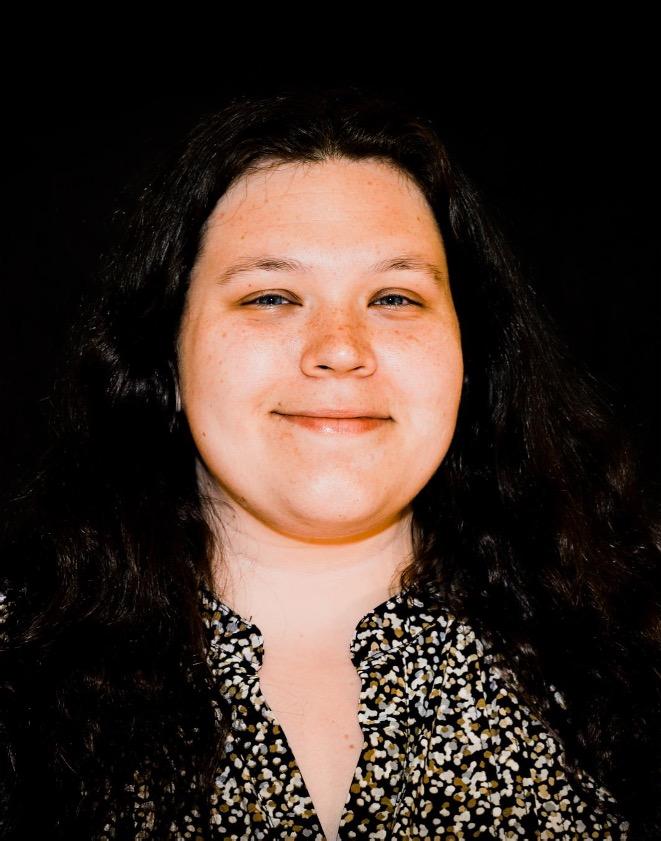
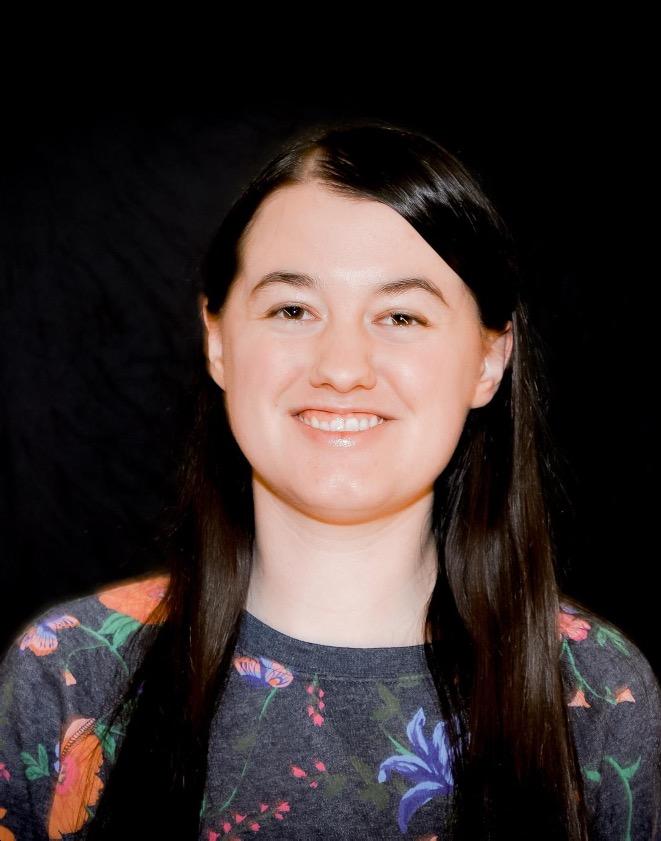
William Webb, a native of Frankfort, Illinois, is a passionate English major pursuing a master’s degree in English at Arizona State University. William graduated his four year degree with the honors of Magna Cum Laude, a 3.65 GPA, in English from ASU on May 9th , 2022. His love for literature and writing began at an early age and has only grown stronger over the years. This passion led him to enroll in the English 598 Topic: Literary Magazine Publishing Canyon Voices course, where he hopes to gain hands-on experience in literary magazine publishing William is particularly interested in the editorial process of literary magazines, from selecting submissions to designing the final product. He hopes to learn how to produce high-quality publications that showcase the best of contemporary literature. Outside of his academic pursuits, William is an avid reader and writer, with a particular interest in science fiction and fantasy. One of his favorite pastimes is to listen to music and go for a nice walk while the cool air breezes past his face It is within these few moments of peace that allow him to gather his thoughts and strive for greatness
Whitney Whitlock is an undergraduate student at the Walter Cronkite School of Journalism and Mass Communication, receiving a B.A. in Journalism and Mass Communication in May 2023 She is an alumnus of the New Media Innovation and Entrepreneurship Lab (NMIEL) and will continue to work with immersive media technologies as a project manager post-graduation. As a lead editor for art and creative nonfiction, she has enjoyed the opportunity to experience the publishing process and help curate a volume of creative works from many talented and emerging creators. She hopes to stay within the editing field in her career, whether that be as a copyeditor or as a contributing author herself

CANYON VOICES | SPRING 2023 STAFF PAGES
Editor Shyla Tanquary
William Webb
Editor at Large
Whitney Whitlock Editor
Avery Woodward is currently enrolled at Arizona State University as a Creative Writing major pursuing both fiction and poetry. She had so much fun being a team lead for poetry, a role she eagerly volunteered for Her time spent on the Canyon Voices team is a source of great pride and accomplishment Avery is the eldest of three siblings and is proudly biracial. And bisexual. Her mother, Michelle Salcido is a published poet that she has learned from and edited for. In her free time, Avery can be found working on her own writing, reading a book, watching anime or playing Dungeons and Dragons. She is always eager to read and write and learn more about stories Avery’s goal is to use her passion for writing professionally and inspire others the way she was inspired by all her favorite authors. Avery believes in the power of art and its ability to influence the world. Even if it only makes a rainy day feel warmer. Avery began writing from a young age and plans to do so for the rest of her life, in the meantime she is proud to have helped other aspiring writers achieve publication. Please enjoy this Spring 2023 issue!
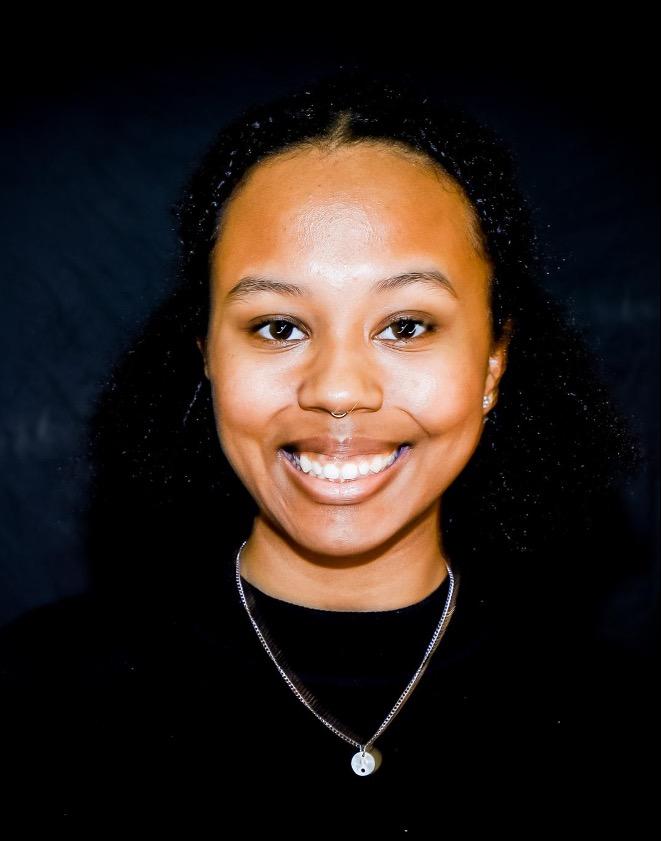
Maya Young is an ASU student in the Barrett Honors College pursuing an English major with a minor in Media Analysis. Born and raised in California, her favorite place to read is on the beach early in the morning. With the sun barely over the clouds, an empty beach, and only the waves to keep you company. Arguably the best setting to dive into a new book. In completing her first year at Canyon Voices, Maya loved reading all the wonderful submissions from the talented artist If she is not in the library with a new book, she spends her free time at the movies or painting. Maya balances her studies by working two jobs and spending time with friends. As an aspiring writer, she was eager to join the scripts section at Canyon Voices. Maya plans to continue her passion for reading by pursuing a career in publishing as an editor

STAFF PAGES
Avery Woodward Editor
CANYON VOICES | SPRING 2023
Maya Young Editor

